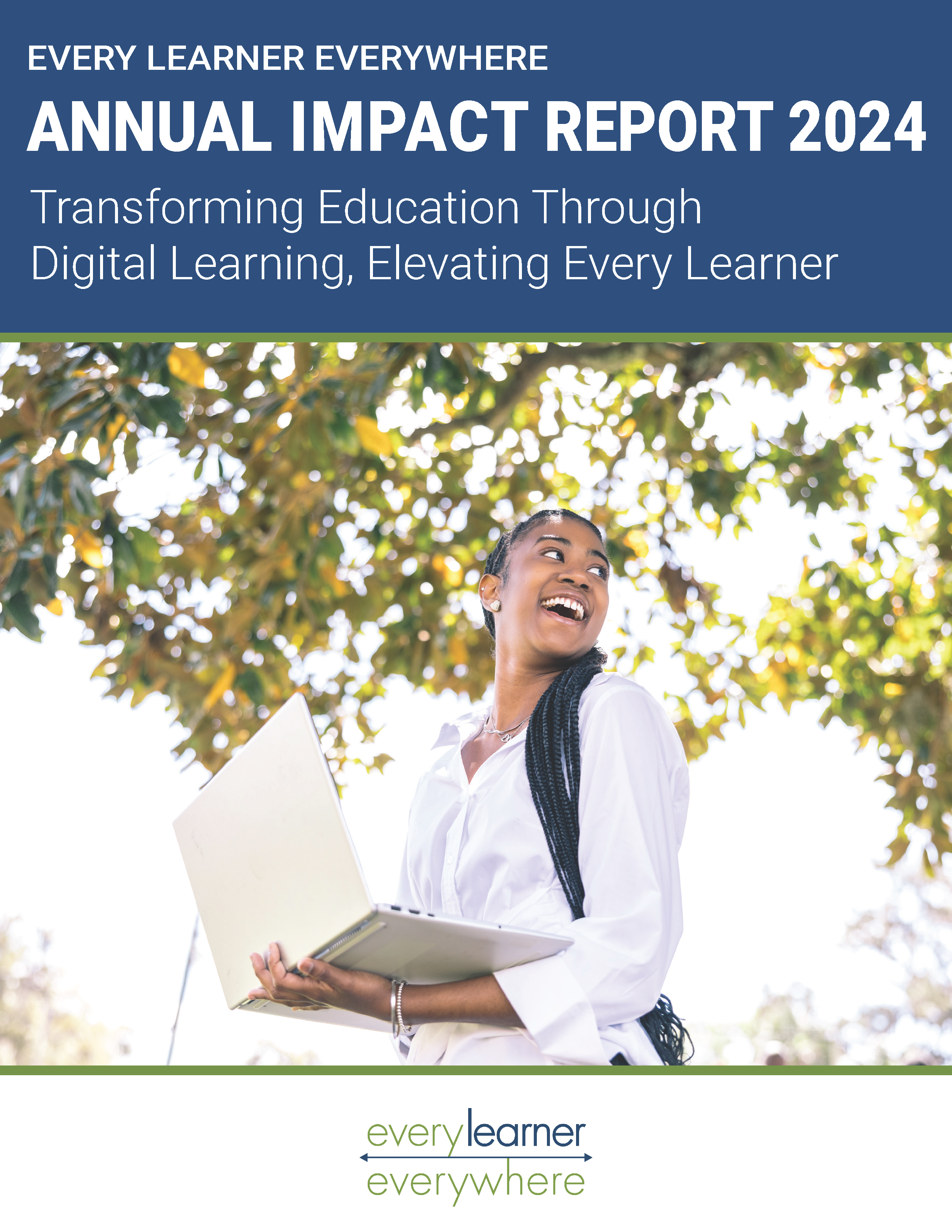
In this annual impact report, read about the network’s impact in areas of the services we provide institutions, our thought leadership in the field, and engagements with students. In addition, we recap our 2024 network convening, spotlight institutional services, feature our student interns, and give readers a preview of what’s next for the network in 2025.

In this report, we present survey results focused on use of culturally relevant instructional practices and culturally relevant course materials. Exploring the implications for practice and future research on culturally relevant content in postsecondary education and gateway courses.
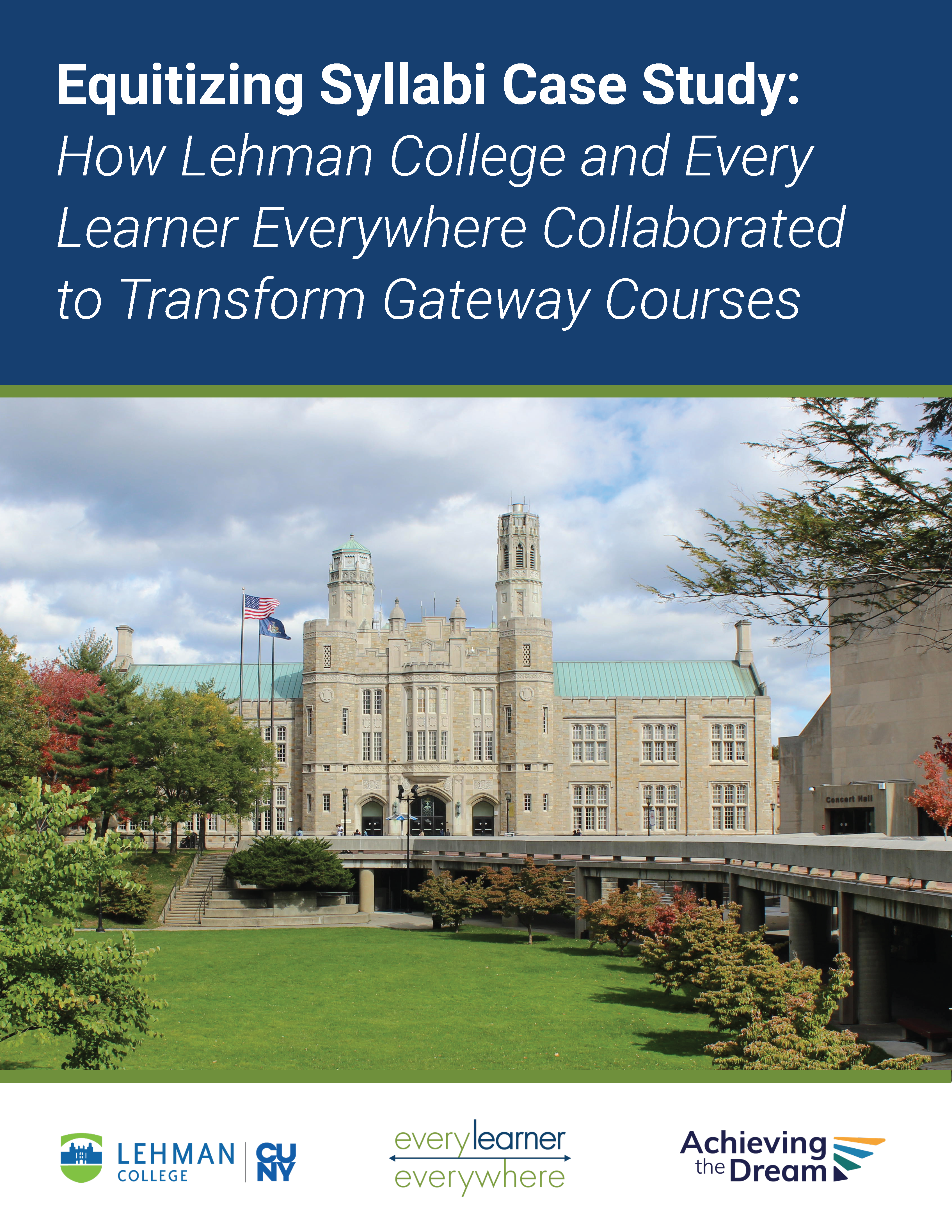
Faculty at New York City’s Lehman College participating in an intensive professional development project radically rewrote their syllabi and, indirectly, transformed their course design and teaching practices to put students at the center of learning.
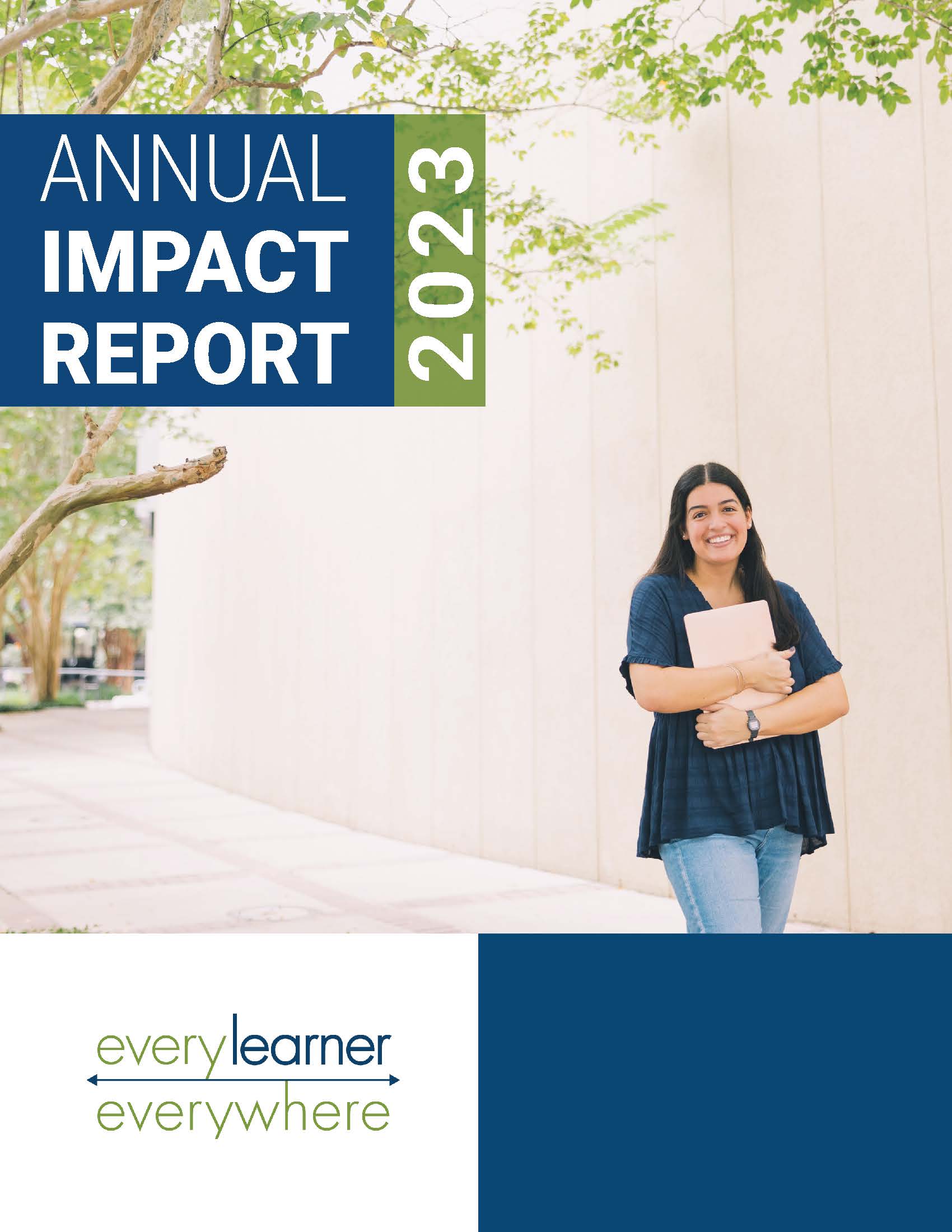
In this report, you can read about the network’s impact in the areas of services, thought leadership, and student engagement. In addition, we recap our 2023 network convening, introduce our new Equity First Organization partners, feature some of our student interns, and give readers a preview of what’s ahead for the network in 2024.
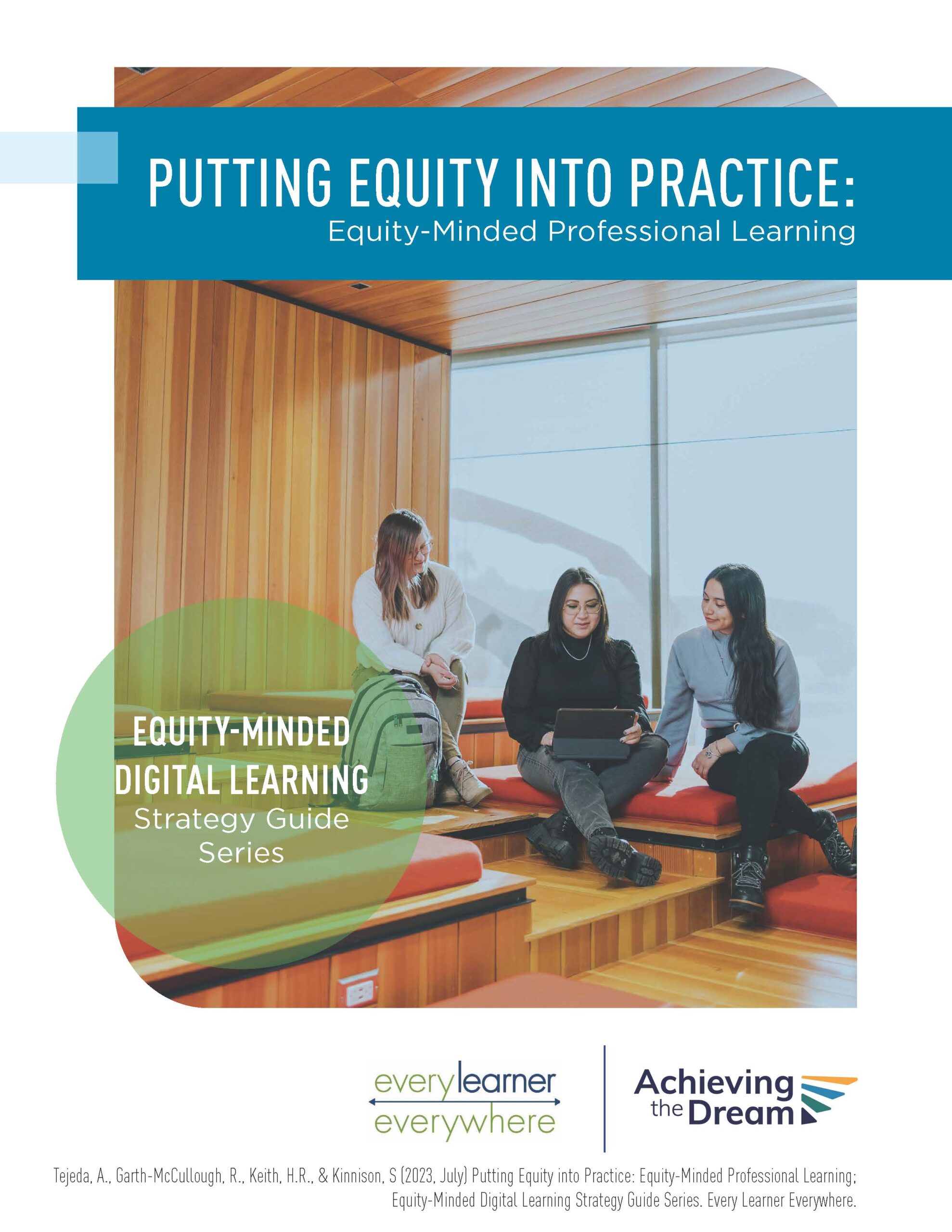
Through professional learning, faculty can develop their capacity to be change agents both inside and outside of the classroom. This guide clarifies what it means to create opportunities for professional learning that are explicitly equity-minded.
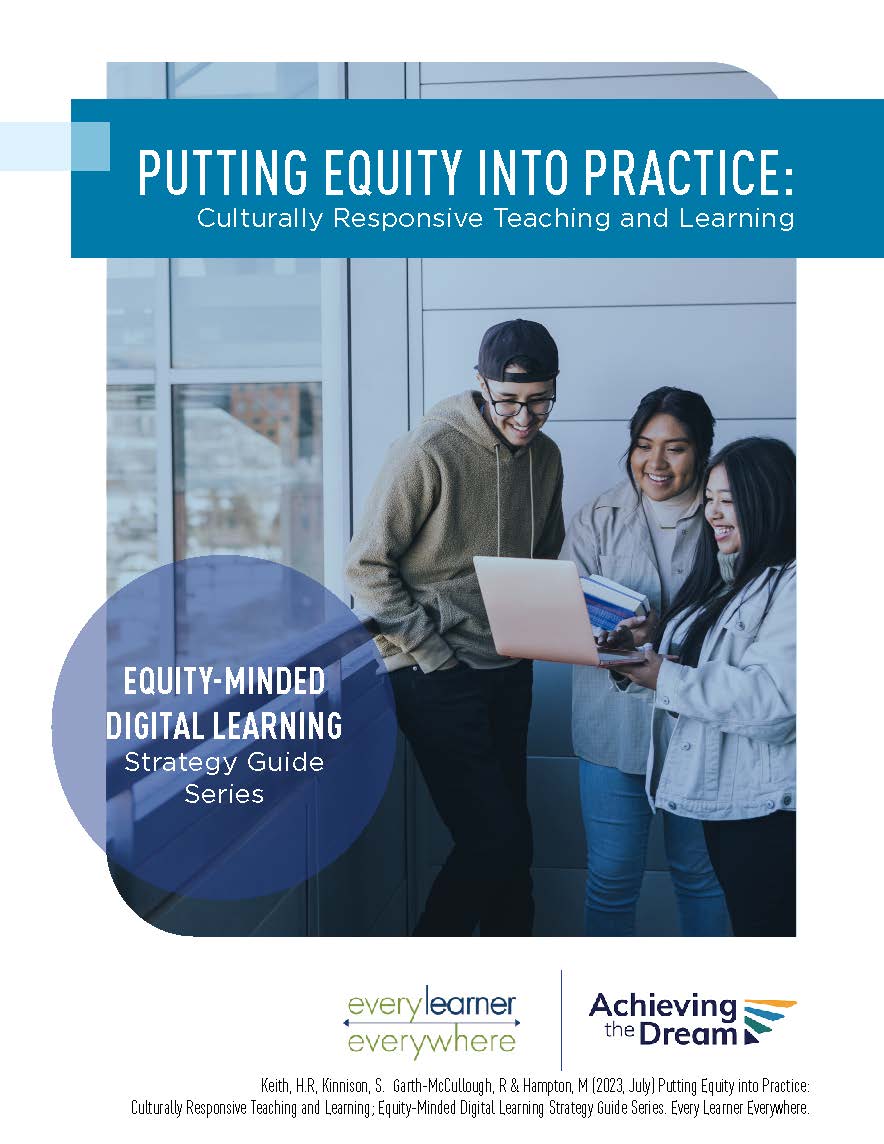
Culturally responsive pedagogy is a framework that is inclusive of culturally responsive and relevant teaching, and culturally affirming and sustaining instructional methodologies that validate and engage students’ cultural identities. These practical instructional strategies and practices guide the implementation of culturally responsive teaching and learning into educational spaces.
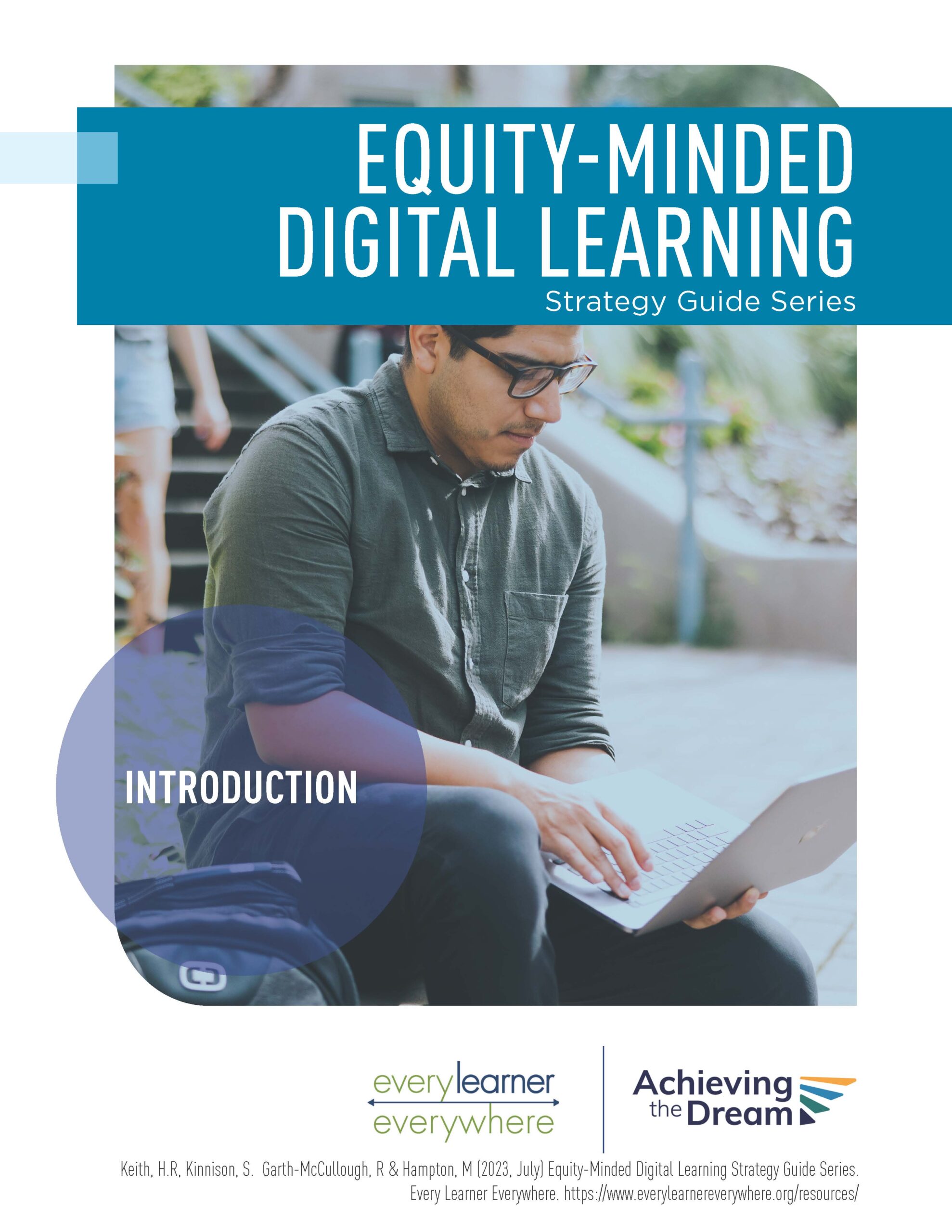
The Equity-Minded Digital Learning Strategy Guides help faculty intentionally and authentically affirm, uplift, and liberate students. As higher education continues to address eliminating inequitable outcomes in teaching and learning, these guides will help institutions embed equity, culturally responsive teaching, social justice education, and open pedagogy through evidence-based teaching practices.
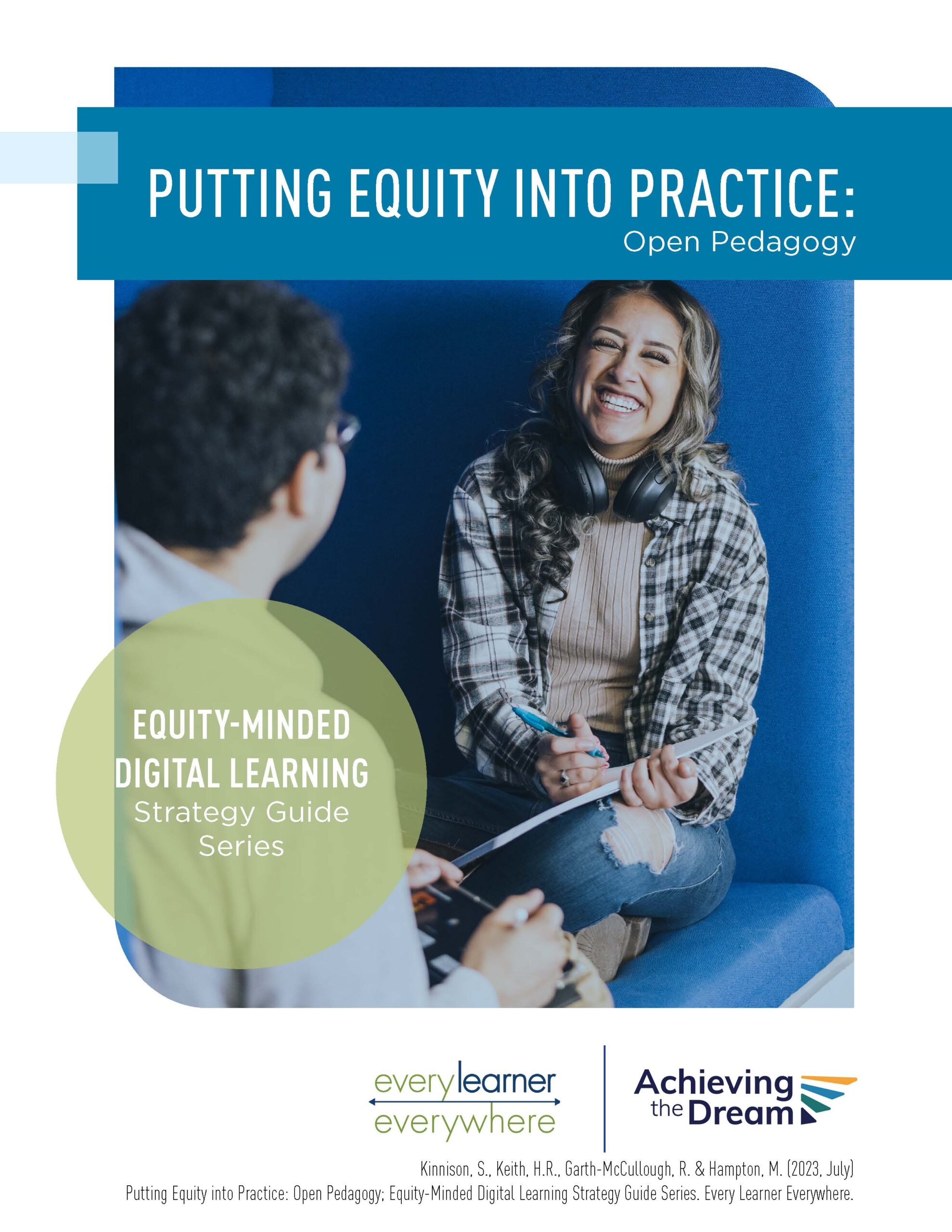
Being able to choose course design, content, assignments, assessments, and instructional approaches based on the context of the learners and the current events of the times allows students to relate all areas of the course to their lives and equitizes their experiences and outcomes. This guide is designed to support faculty with operationalizing open pedagogy through a culturally responsive lens.
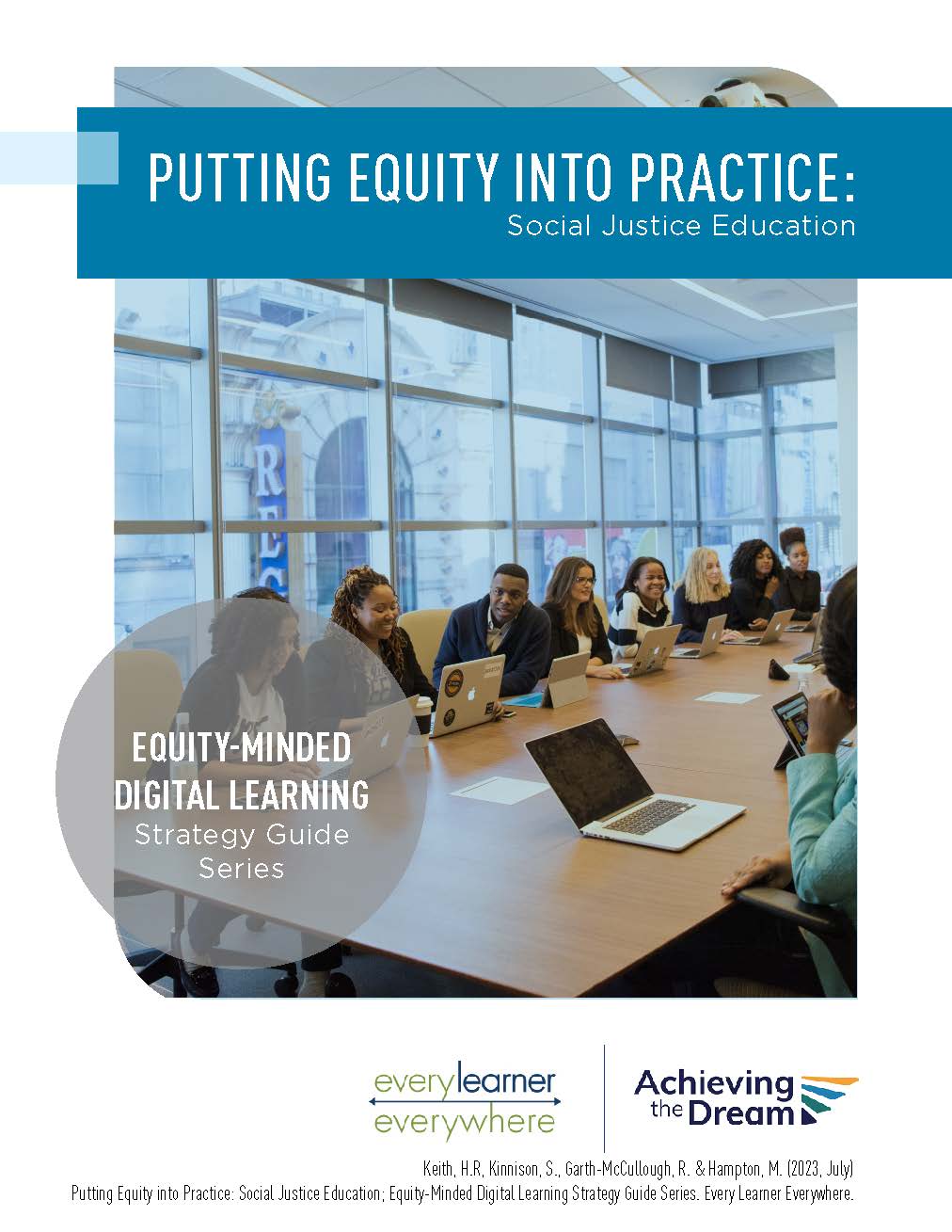
Advancing social justice in education requires establishing educational spaces that foster students’ critical consciousness and ability to analyze systems, policies, and practices that lead to inequitable and unjust experiences and outcomes. A social justice approach to education involves two strategies that will be featured in this guide: anti-racist teaching and abolitionist teaching.
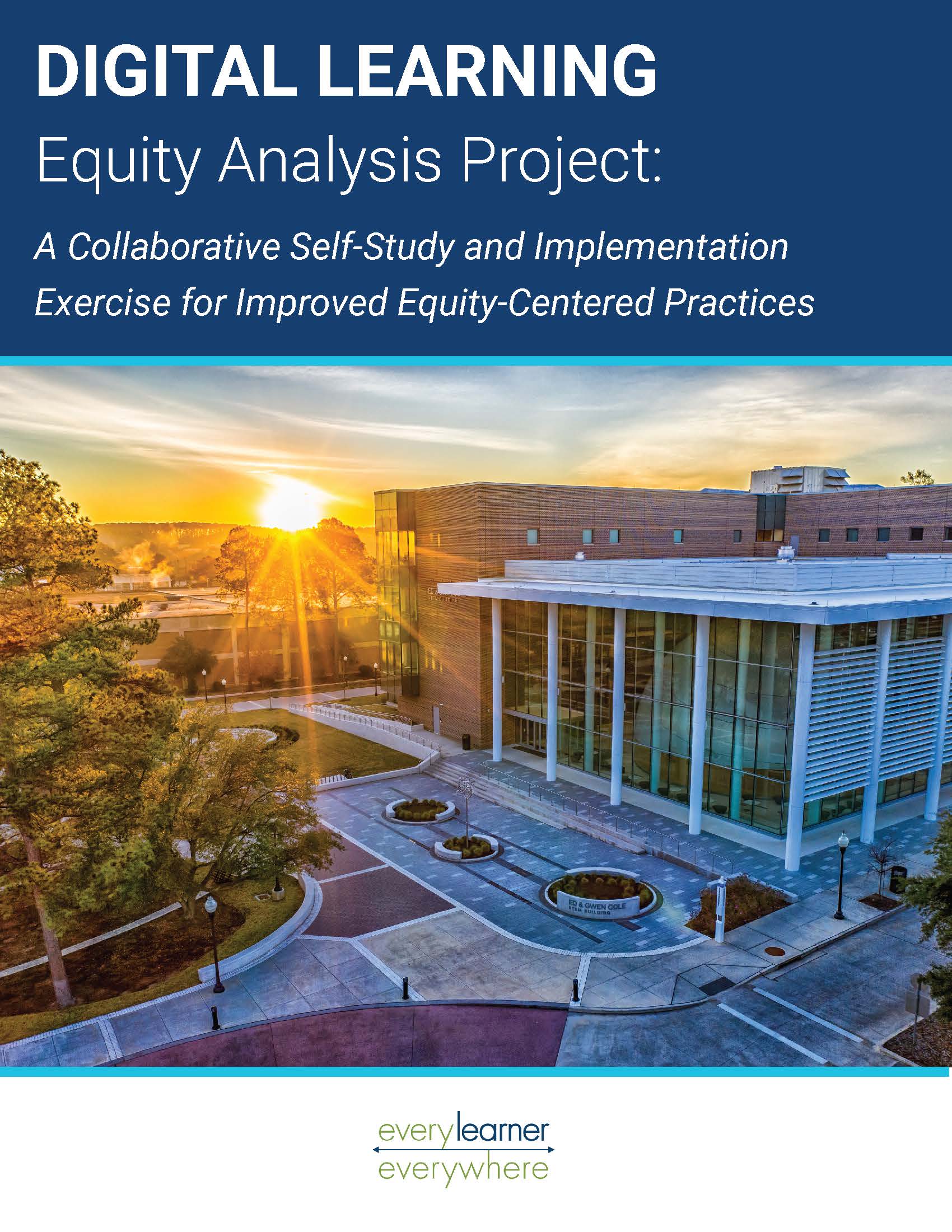
This paper describes the outcomes of a Digital Learning Equity Analysis project undertaken by two award-winning educators, Sarah Straub and Rachel Jumper, who sought to implement suggestions from the microcredential training hosted by Every Learner Everywhere. This training focused on promoting equity in digital learning and provided a structured protocol for conducting reviews of online courses.
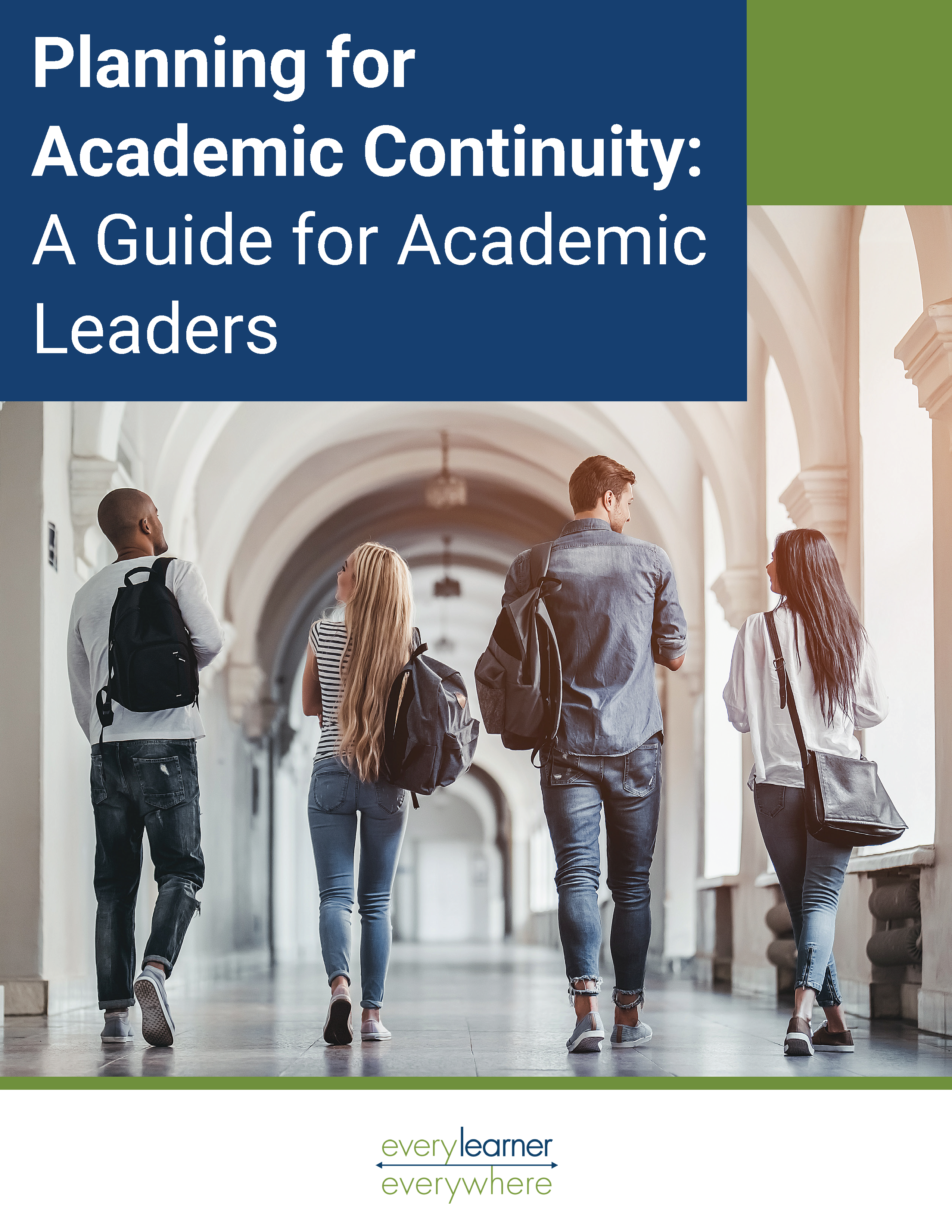
This guide presents results from an analysis of 100 academic continuity plans at U.S. colleges and universities. The results form the basis for recommended academic continuity plan best practices, tools, and templates academic leaders can use to maintain a plan that can be used in both short-term and long-term circumstances.
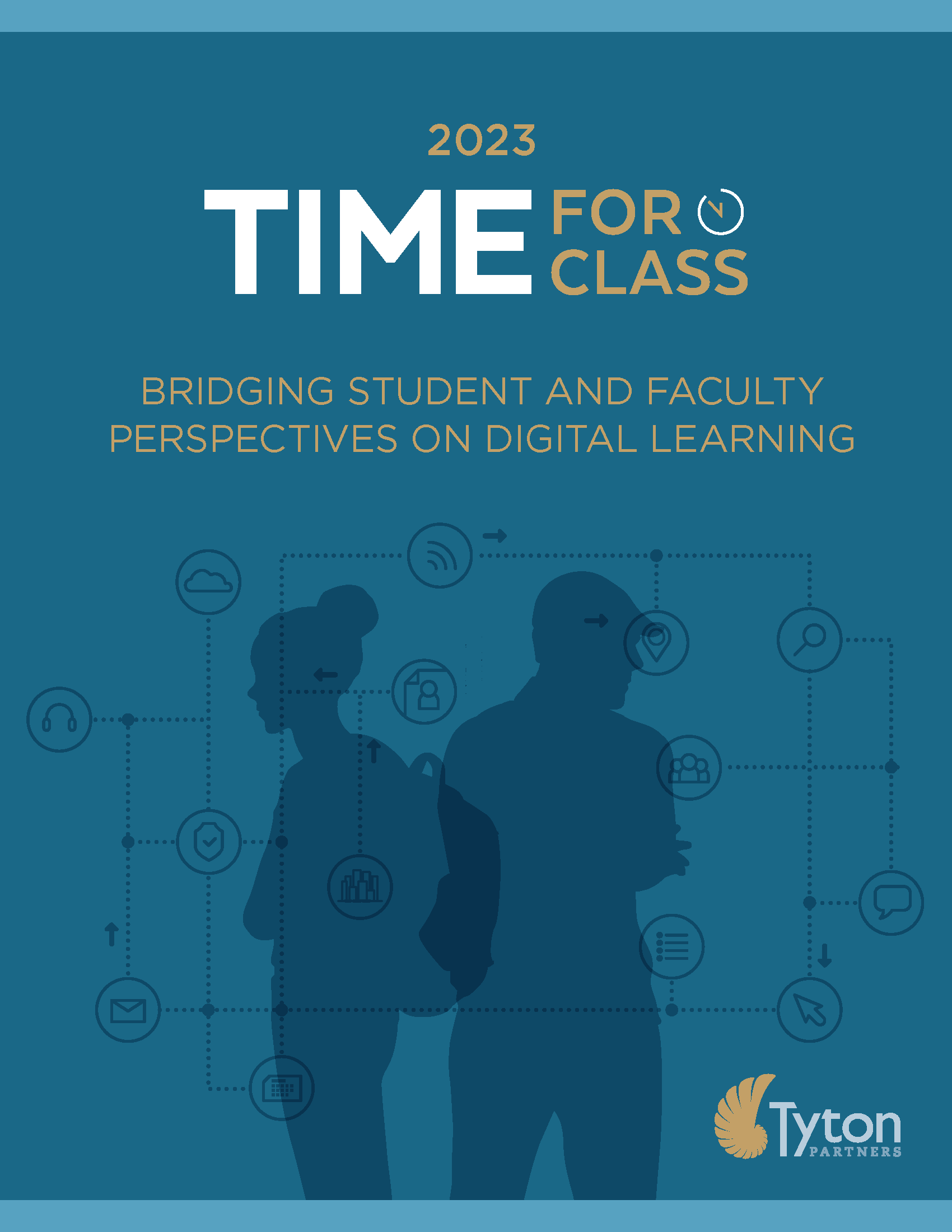
This 2023 study – the largest and longest running study monitoring digital learning in higher education – aims to identify the differences between student and institutional stakeholder experiences and preferences to suggest ways institutions and solution providers can address these differences.
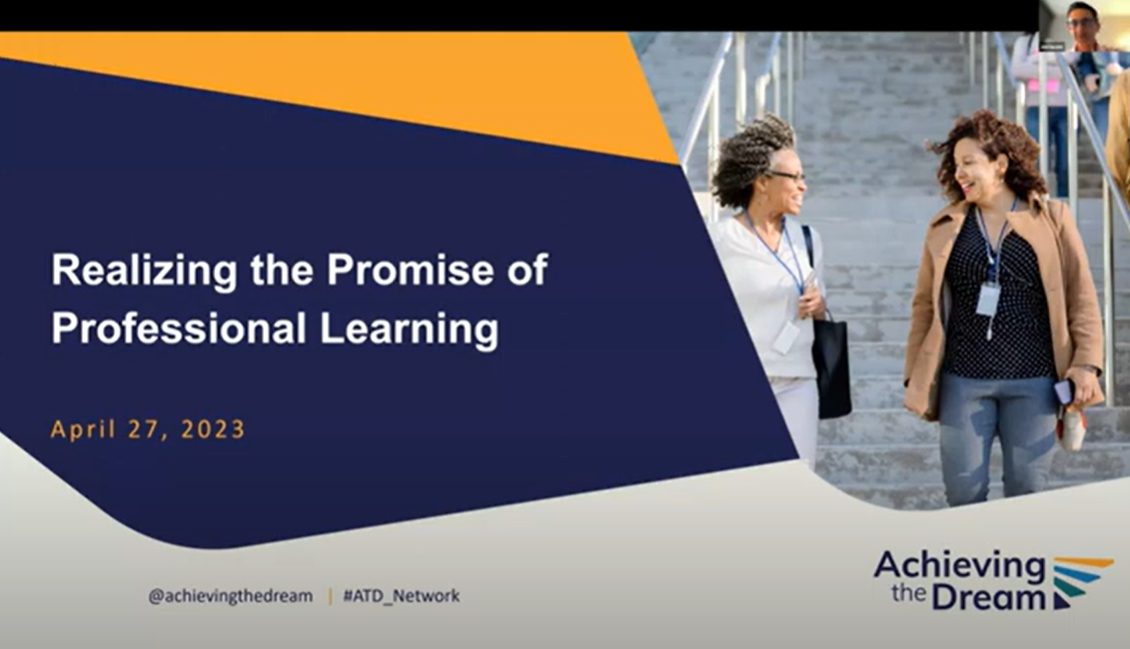
Professional learning, also called Faculty development, in higher education supports student success at the course level.
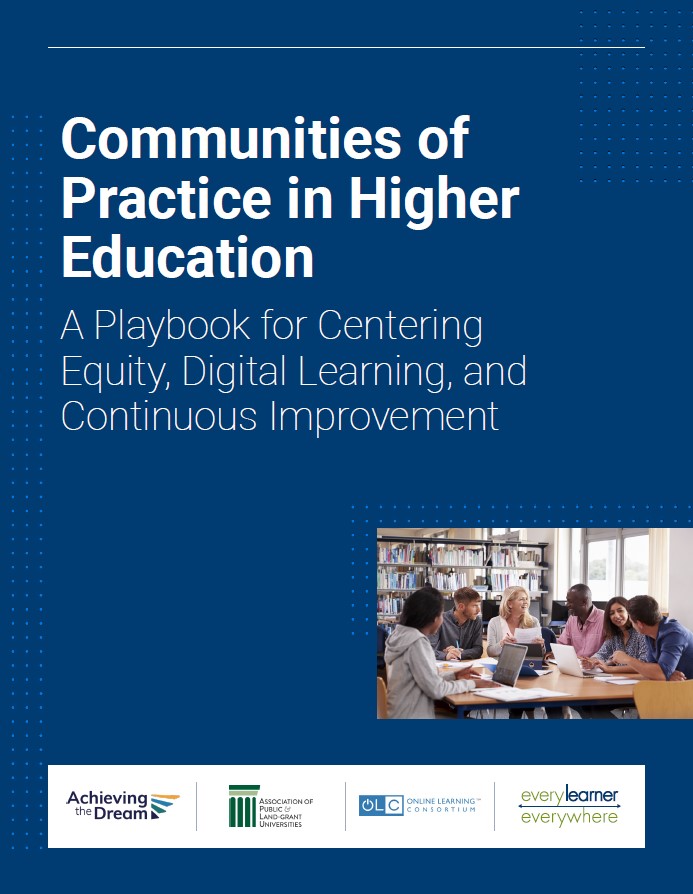
This playbook provides guidance on how to envision, design, facilitate, evaluate, and sustain faculty communities of practice.
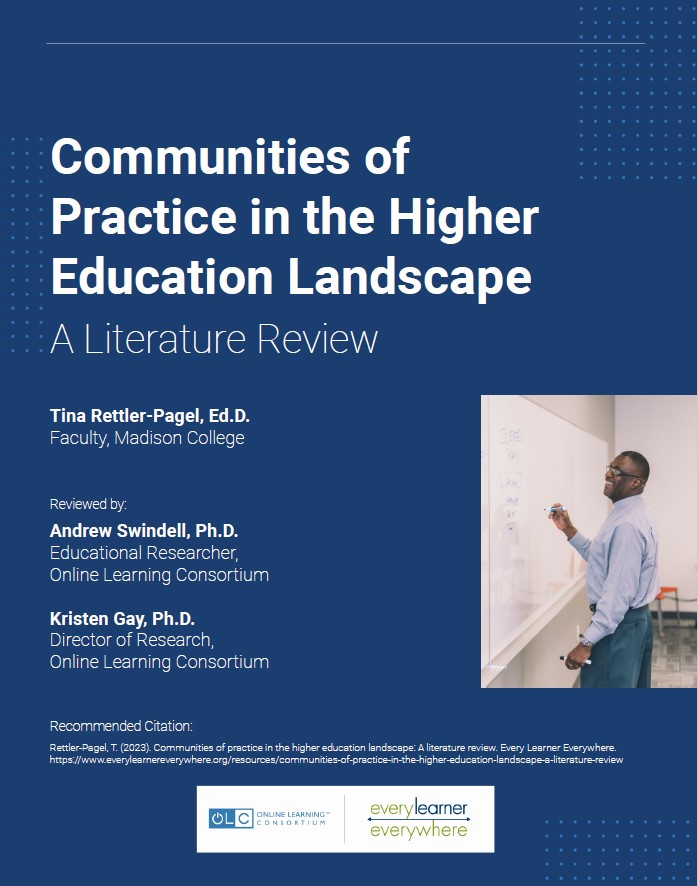
This literature review examines research concerning communities of practice serving as professional development for teaching faculty.
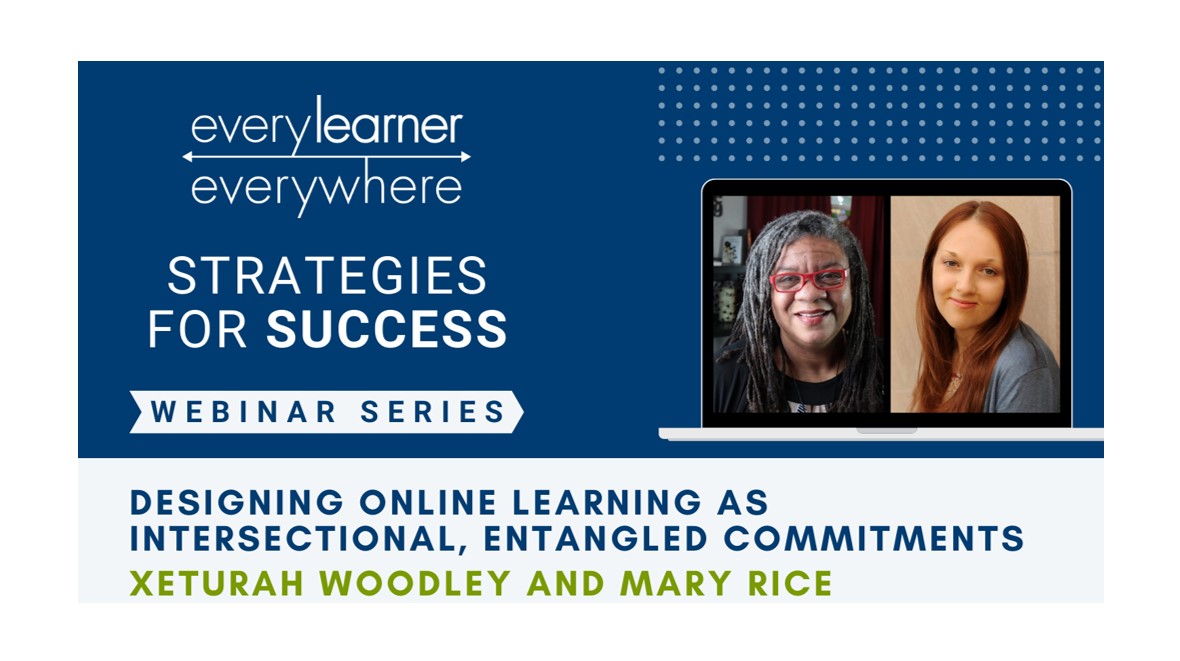
Dr. Mary Rice and Dr. Xeturah Woodley engage in a conversation about the renewal that emerges alongside intersectional online course design.
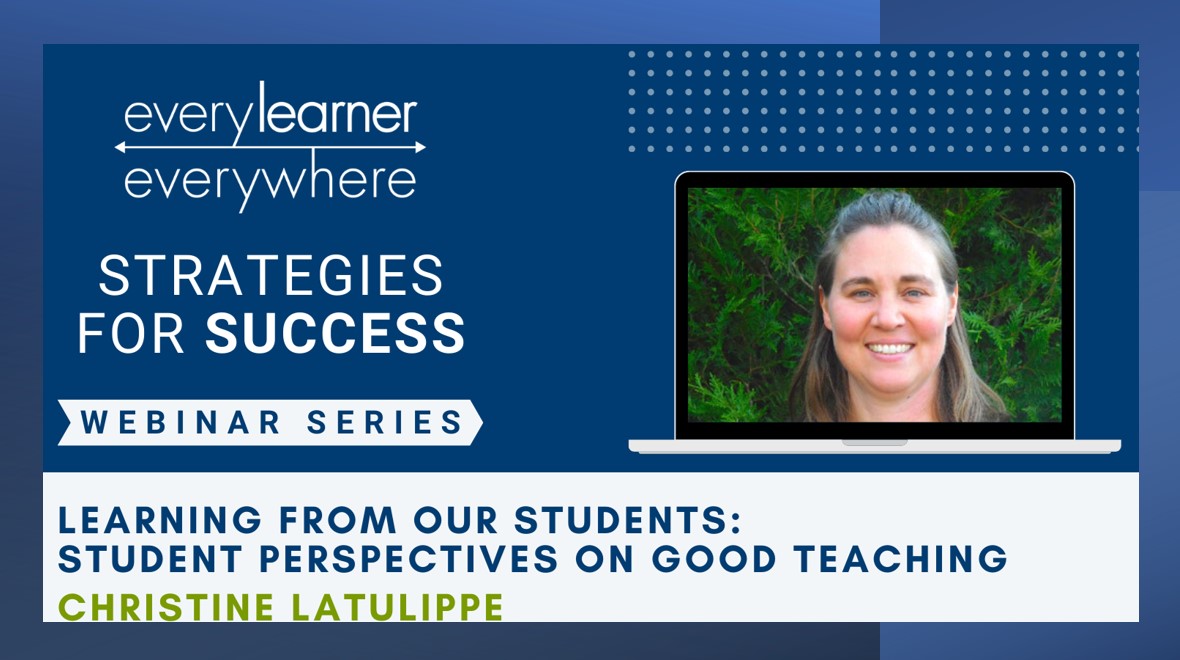
Dr. Christine Latulippe shares her findings from student stories about what good teaching looks like and feels like to them.
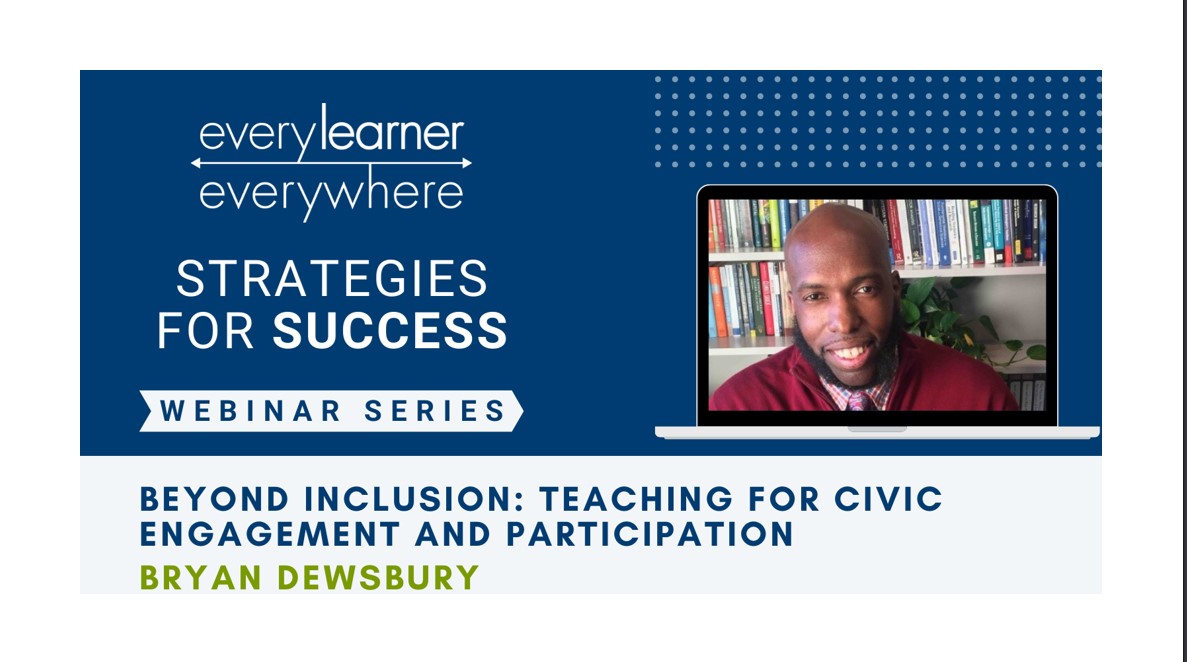
Dr. Bryan Dewsbury discusses reconnecting classroom practice with the values, behaviors and mindsets needed for a socially just society.
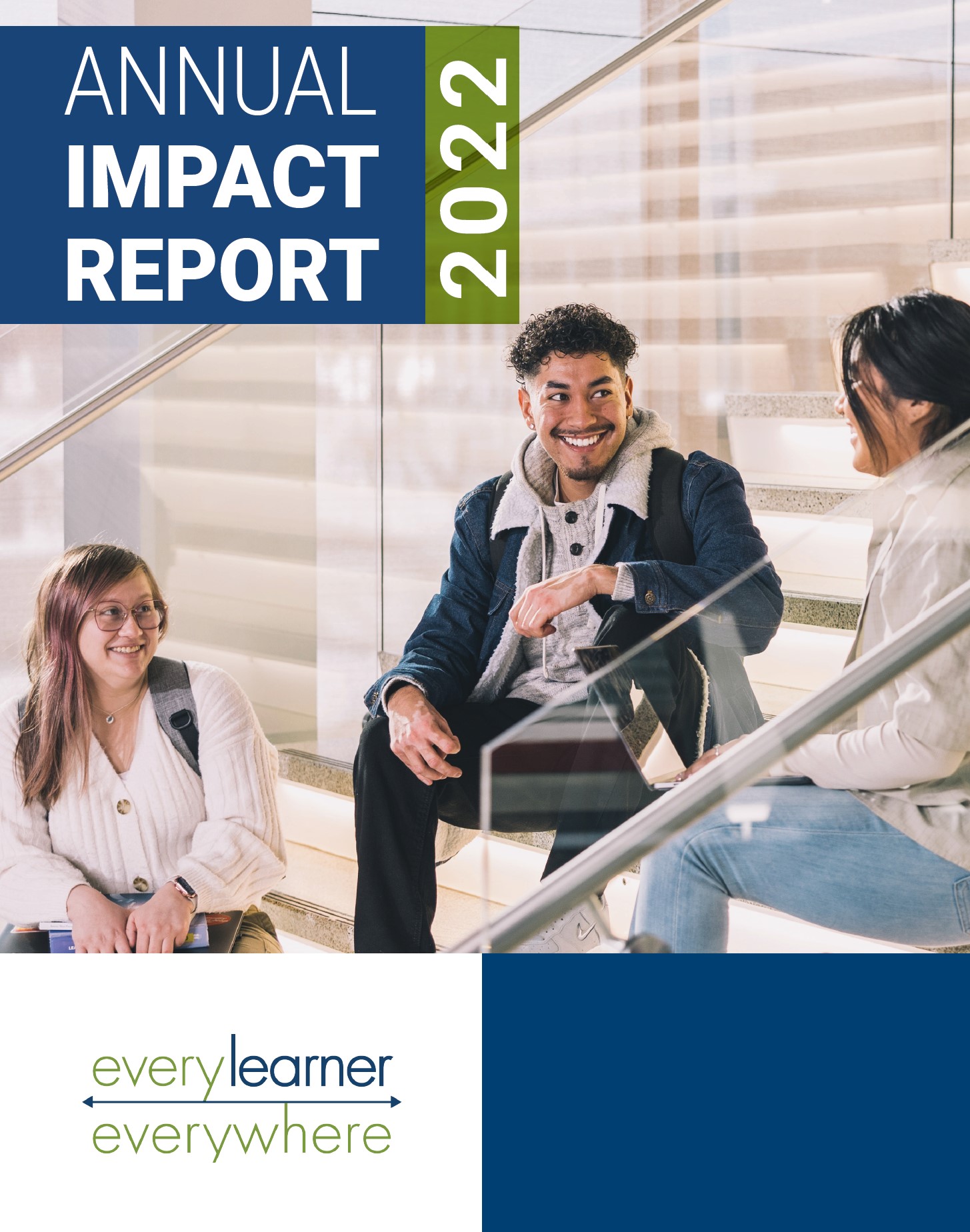
Every Learner Everywhere’s second annual impact report highlighting accomplishments in 2022 and setting goals for 2023.
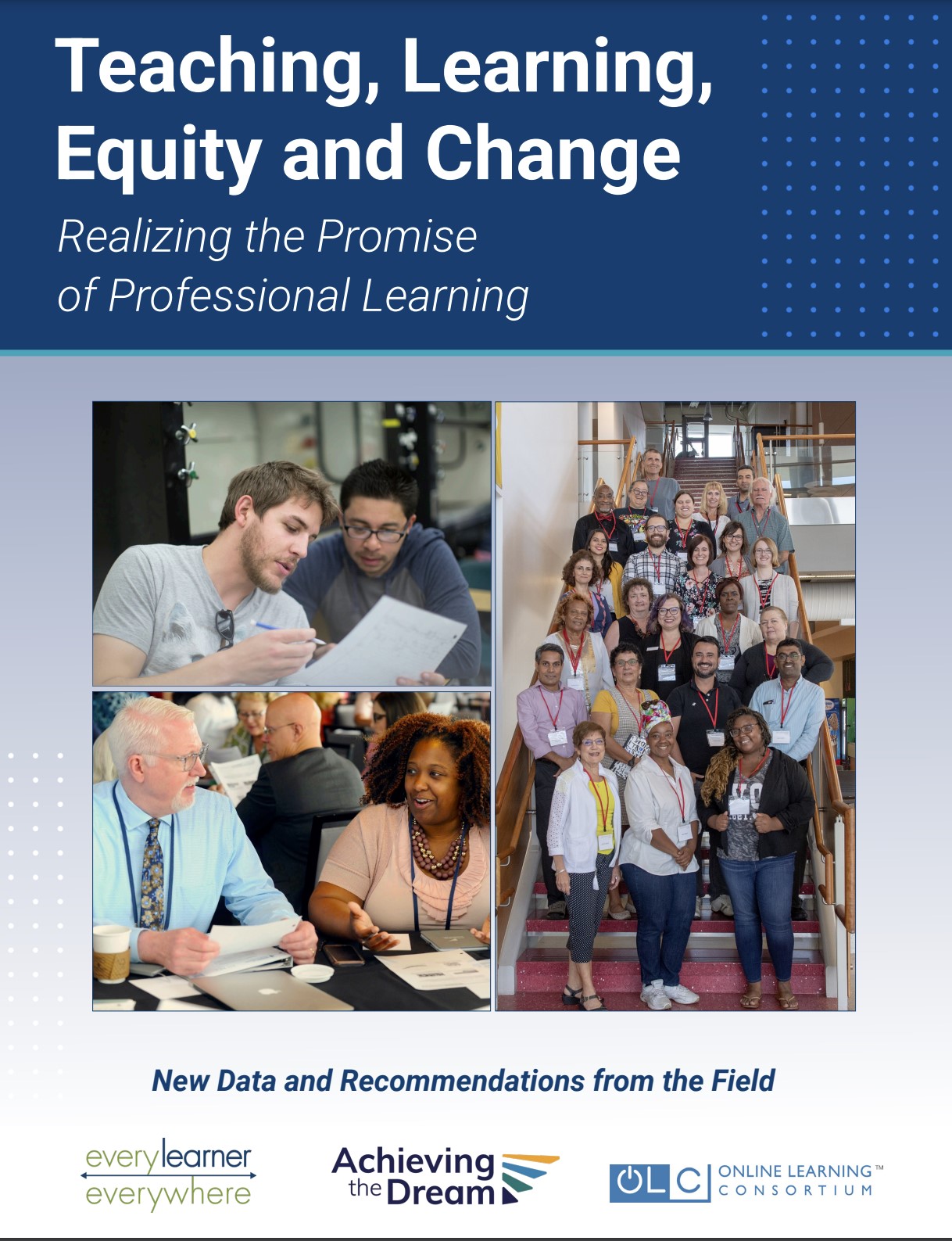
This report informs the strategic action needed to realize the promise of professional learning at our nation’s equity-focused campuses.
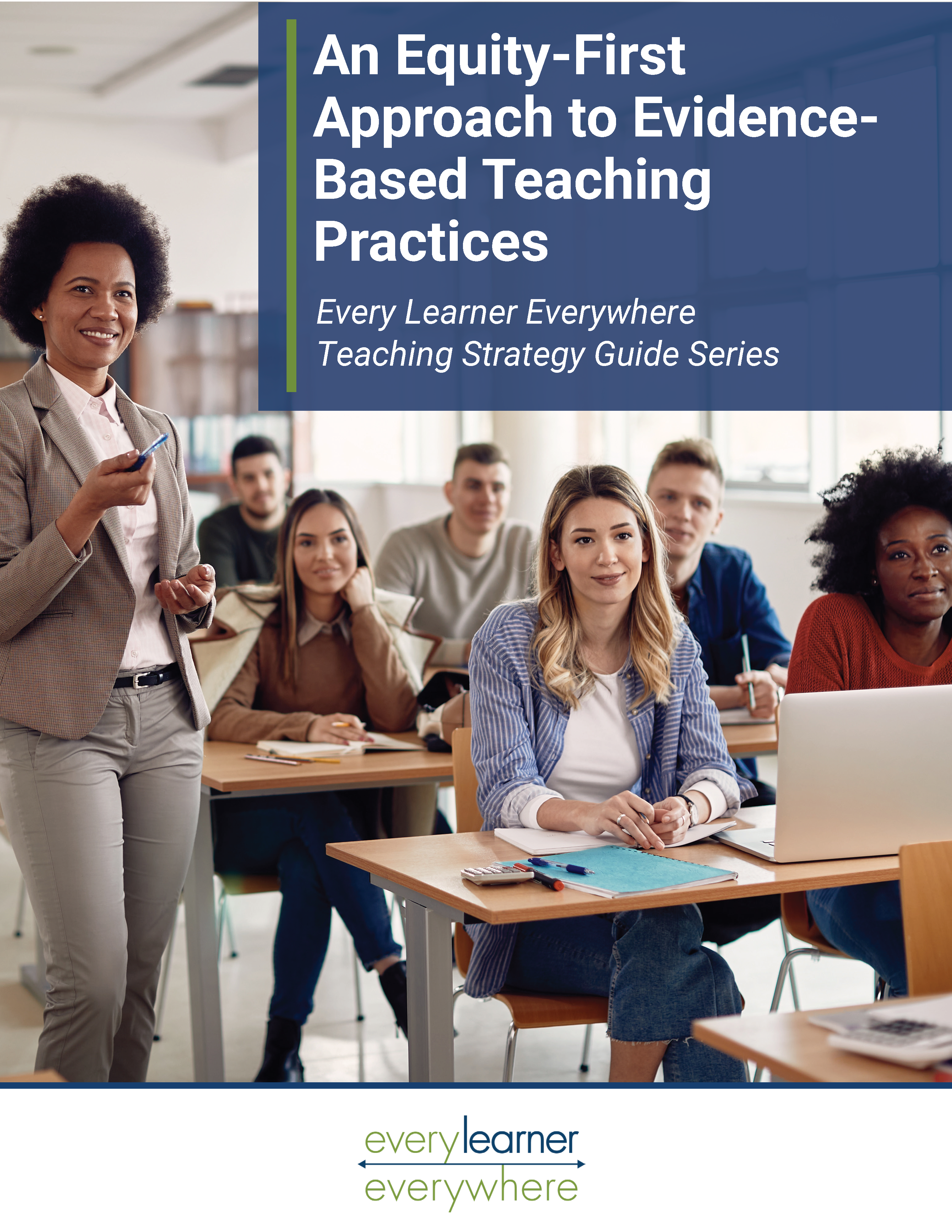
This guide reviews evidence-based teaching practices that benefit minoritized students.
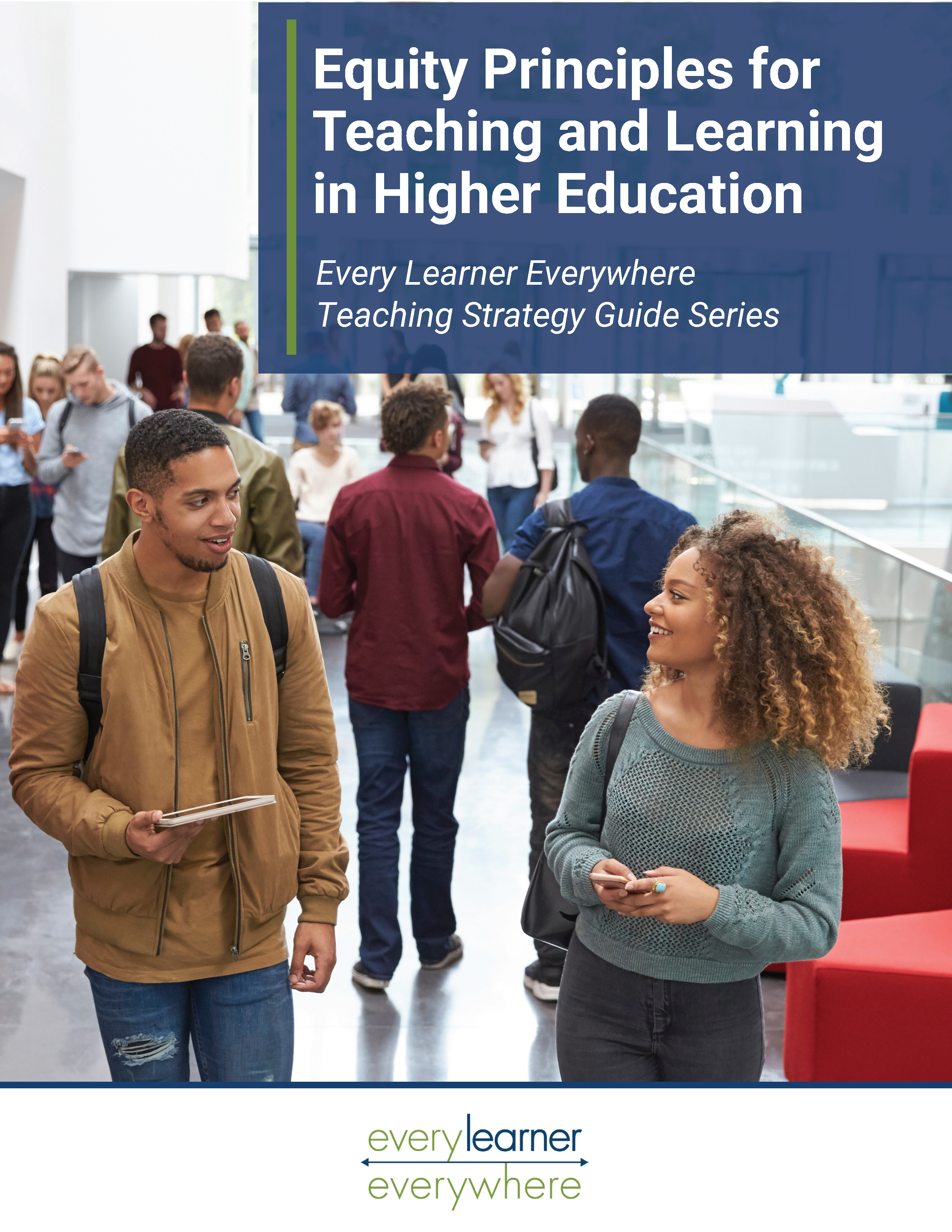
This Every Learner Everywhere strategy guide details our eight equity principles for teaching and learning in higher education.
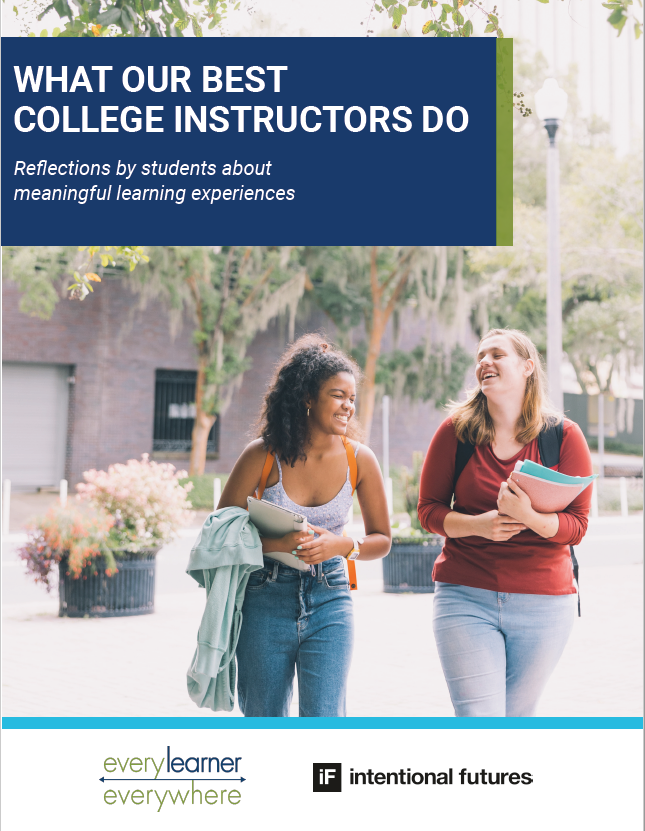
A resource about meaningful learning experiences written by college students for faculty.
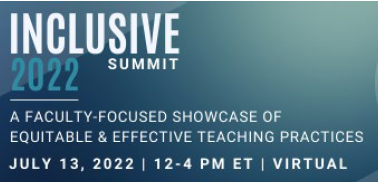
discuss strategies for getting to know our students and using this knowledge to inform our teaching choices, assessment types, and communication throughout the course.

In this webinar, join your peers in deep discussions about the pedagogical challenges facing faculty who are teaching within the sciences.

In this webinar, join your peers in deep discussions about the pedagogical challenges facing faculty who are teaching writing.

In this webinar, join your peers in deep discussions about the pedagogical challenges facing faculty who are teaching mathematics.
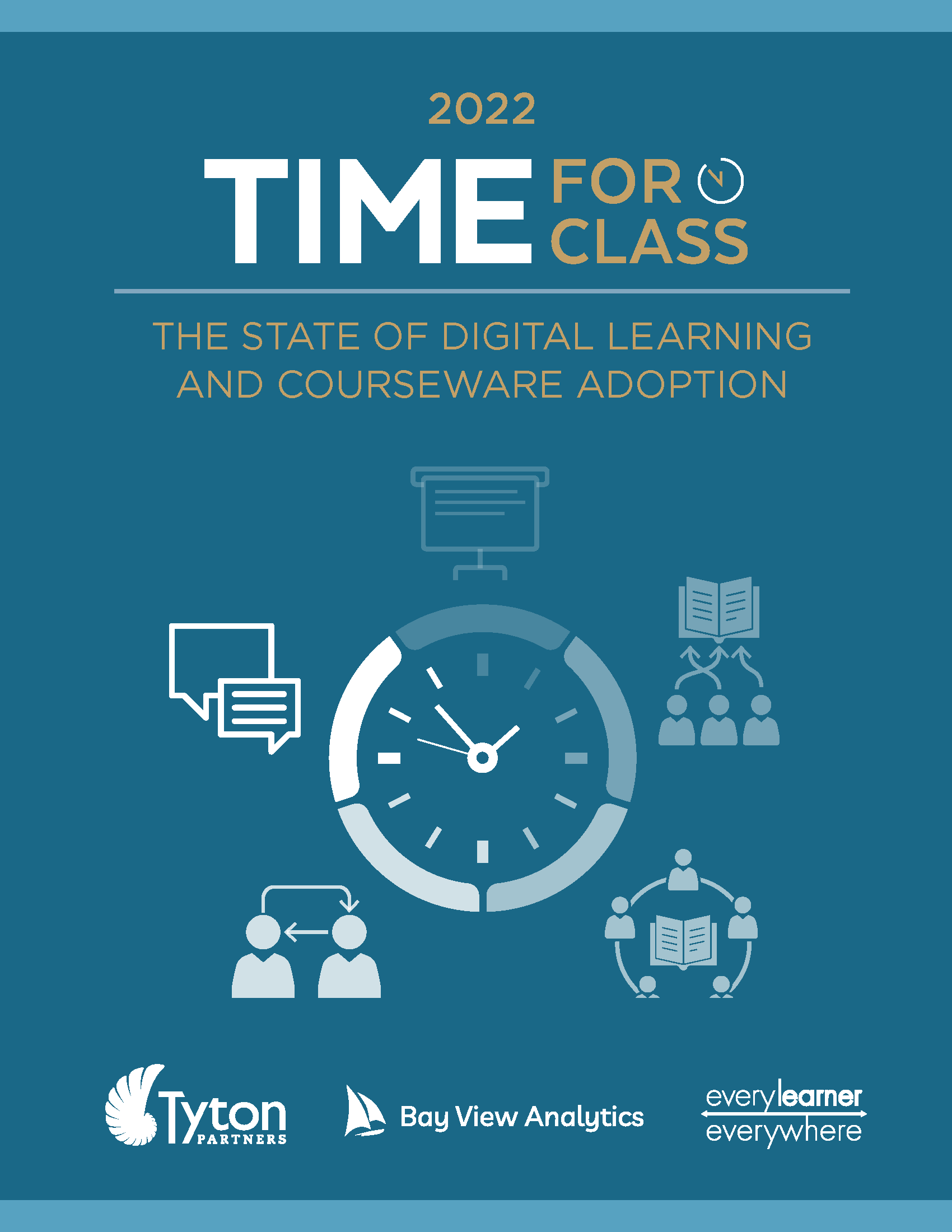
Time for Class 2022 examines how faculty and institutional leaders are using instructional materials to implement teaching practices that can improve student learning and outcomes, especially for students historically underserved by higher education. This report reviews how digital learning in high-enrollment introductory courses can enable instructors to incorporate evidence-based teaching practices and work to close equity gaps in courses.
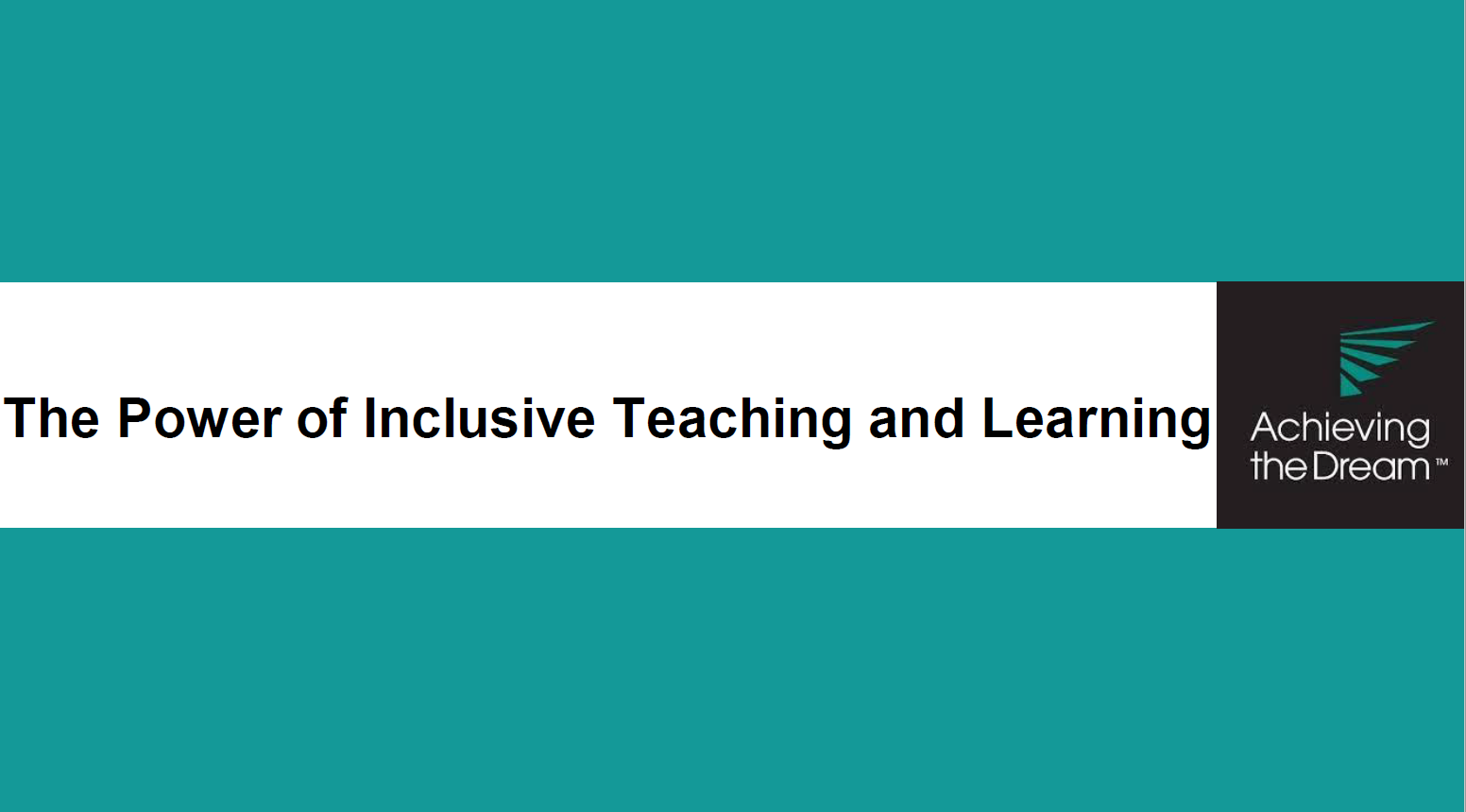
Teaching specialists from Achieving the Dream share strategies for Culturally responsive teaching, Anti-racist teaching, Abolitionist teaching, and Open Pedagogy.
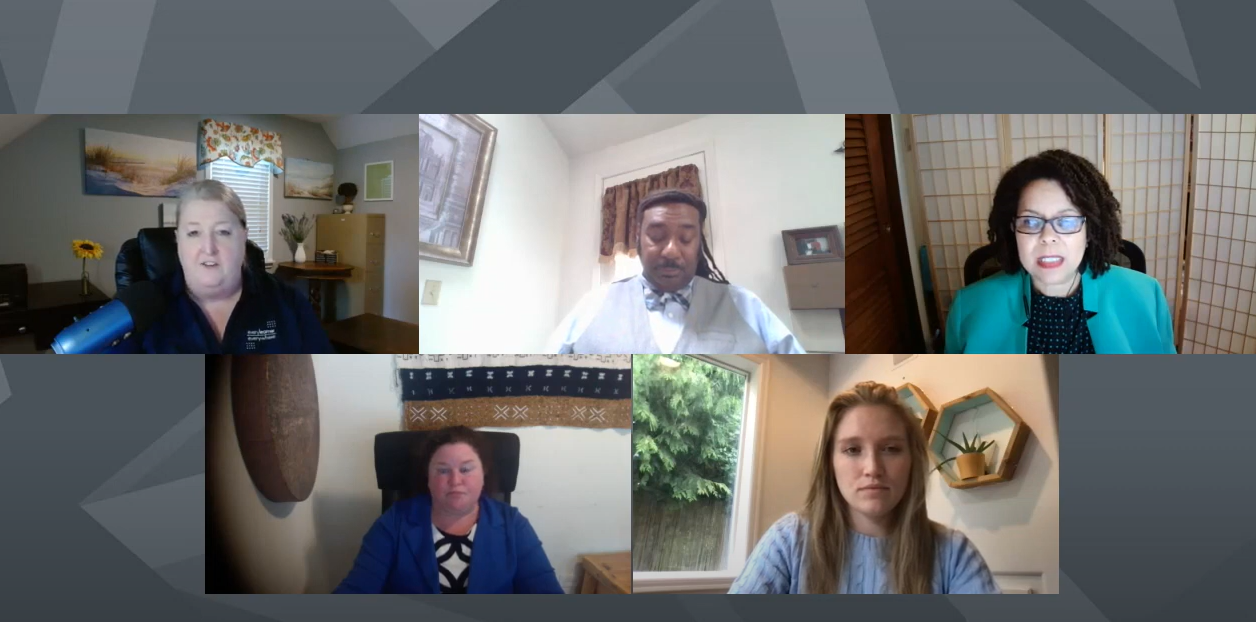
Specialists and practitioners of inclusive teaching answer your questions about strategies and approaches to creating an inclusive learning environment for all students.
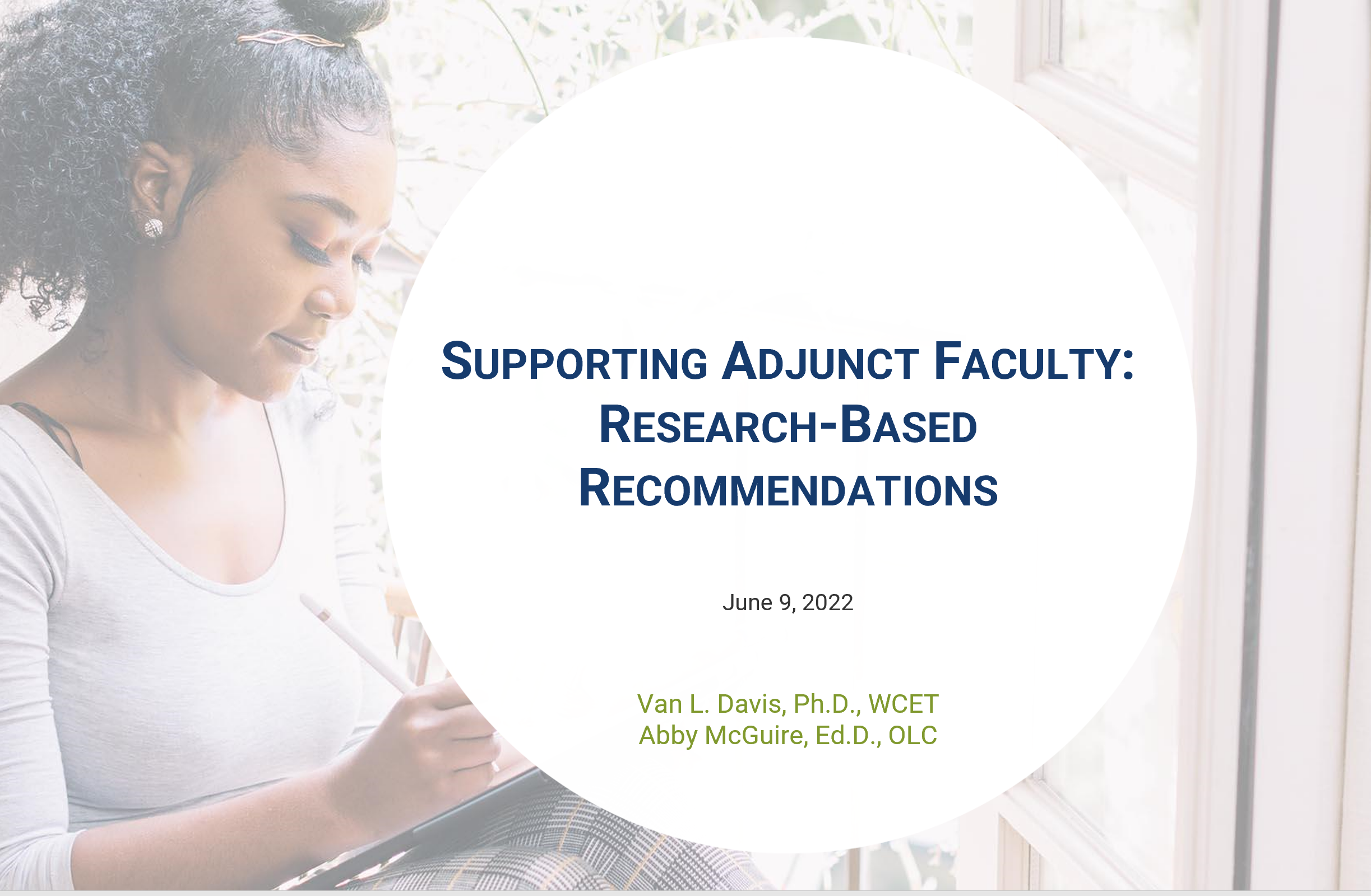
Learn about how institutions can adjust their infrastructure to support online adjunct faculty.
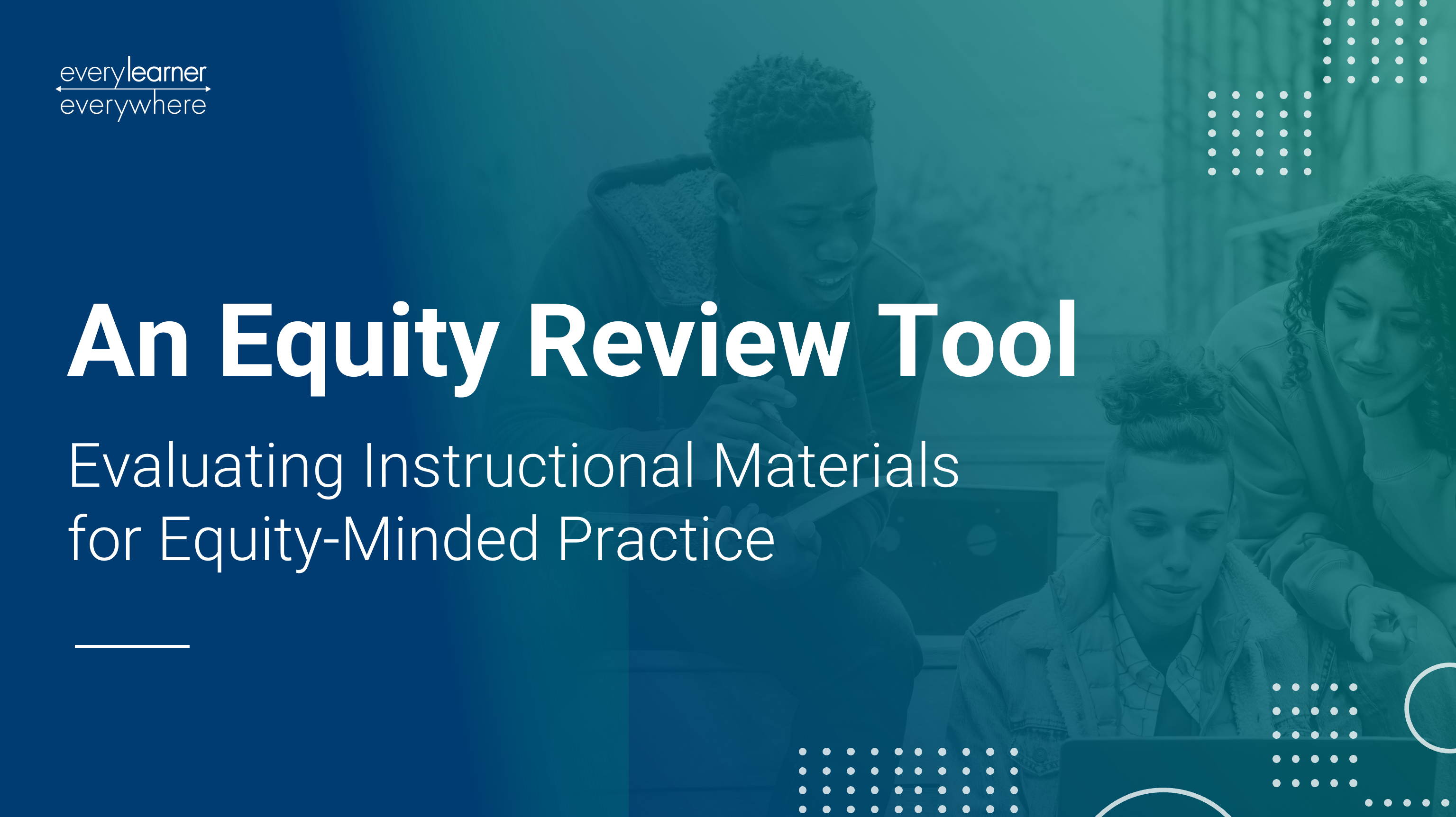
Developers of the Equity Evaluation Tool walk through the evaluation process to show how you can use it to make your course content equity-centered.
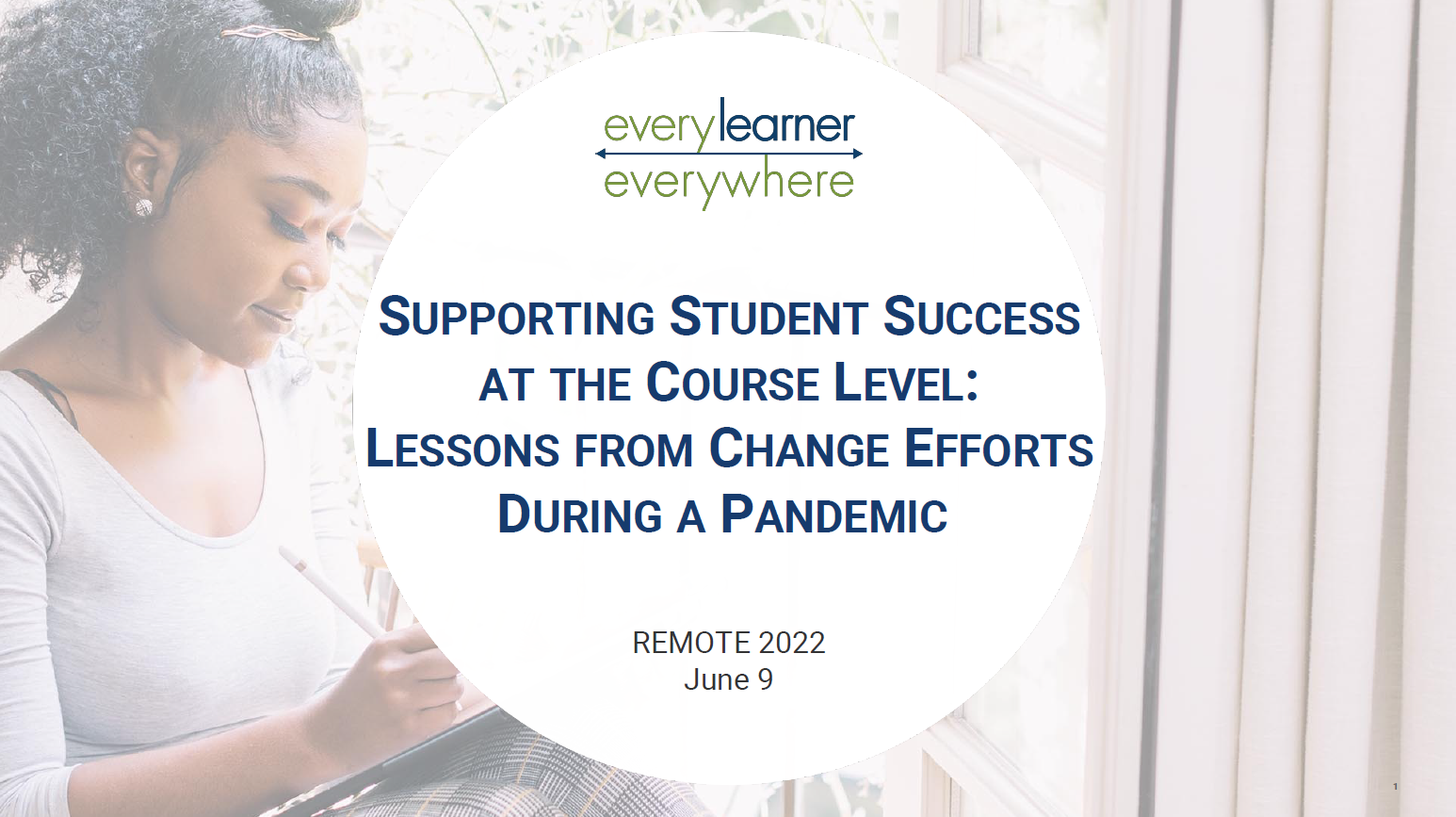
Learn how digital learning tools can give both faculty and students an edge in a time of academic upheaval.
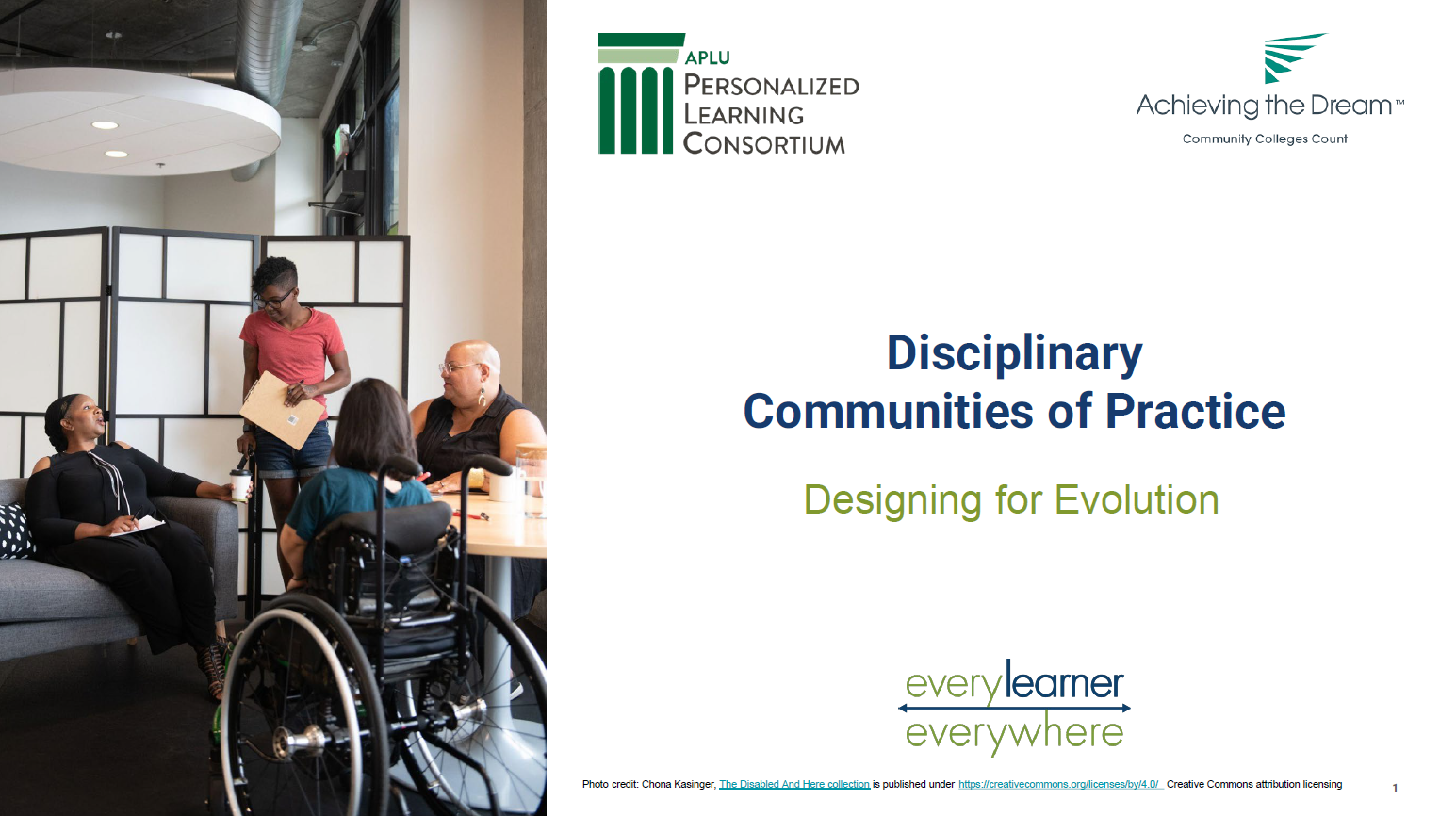
Leaders of various faculty communities of practice discuss what works and what doesn’t.
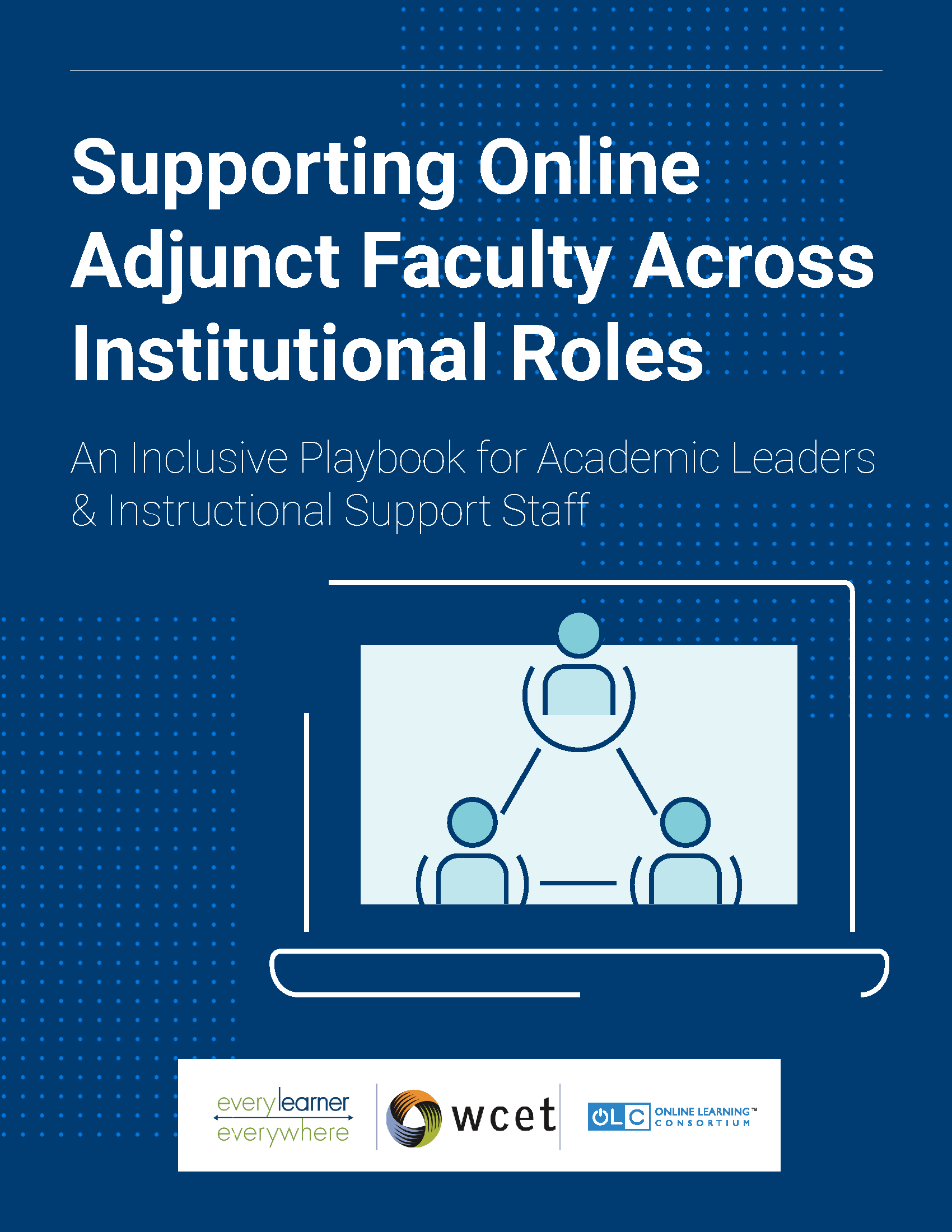
This playbook presents six concrete strategies for academic leaders, college-level leaders, and instructional design staff to adopt now to better support their online adjunct faculty and the community of students and learners in their classrooms.
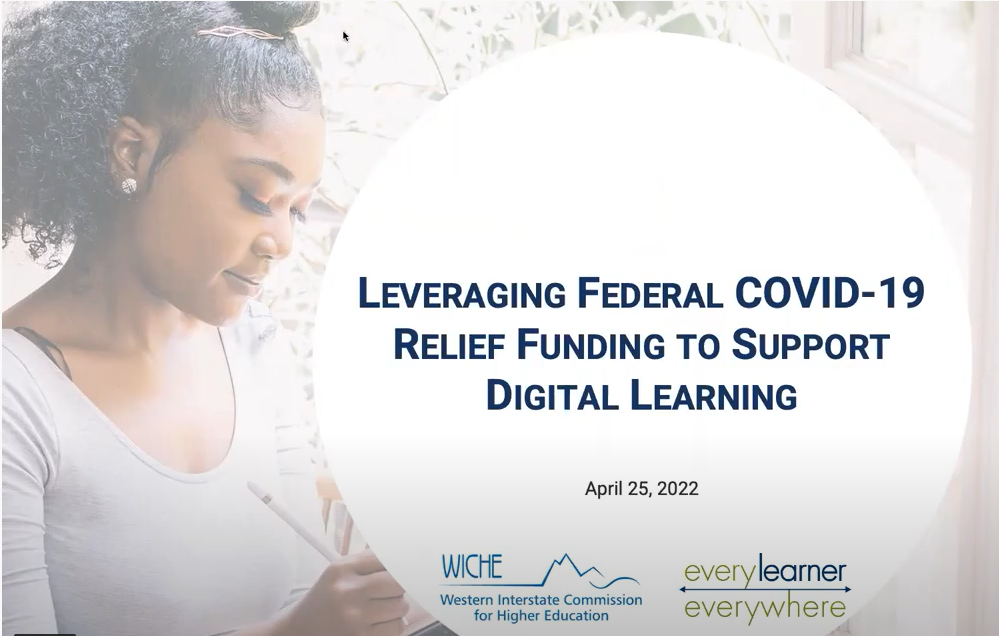
Experts on federal policy and digital learning, and institutional representatives discuss the opportunities afforded by federal Covid resources.
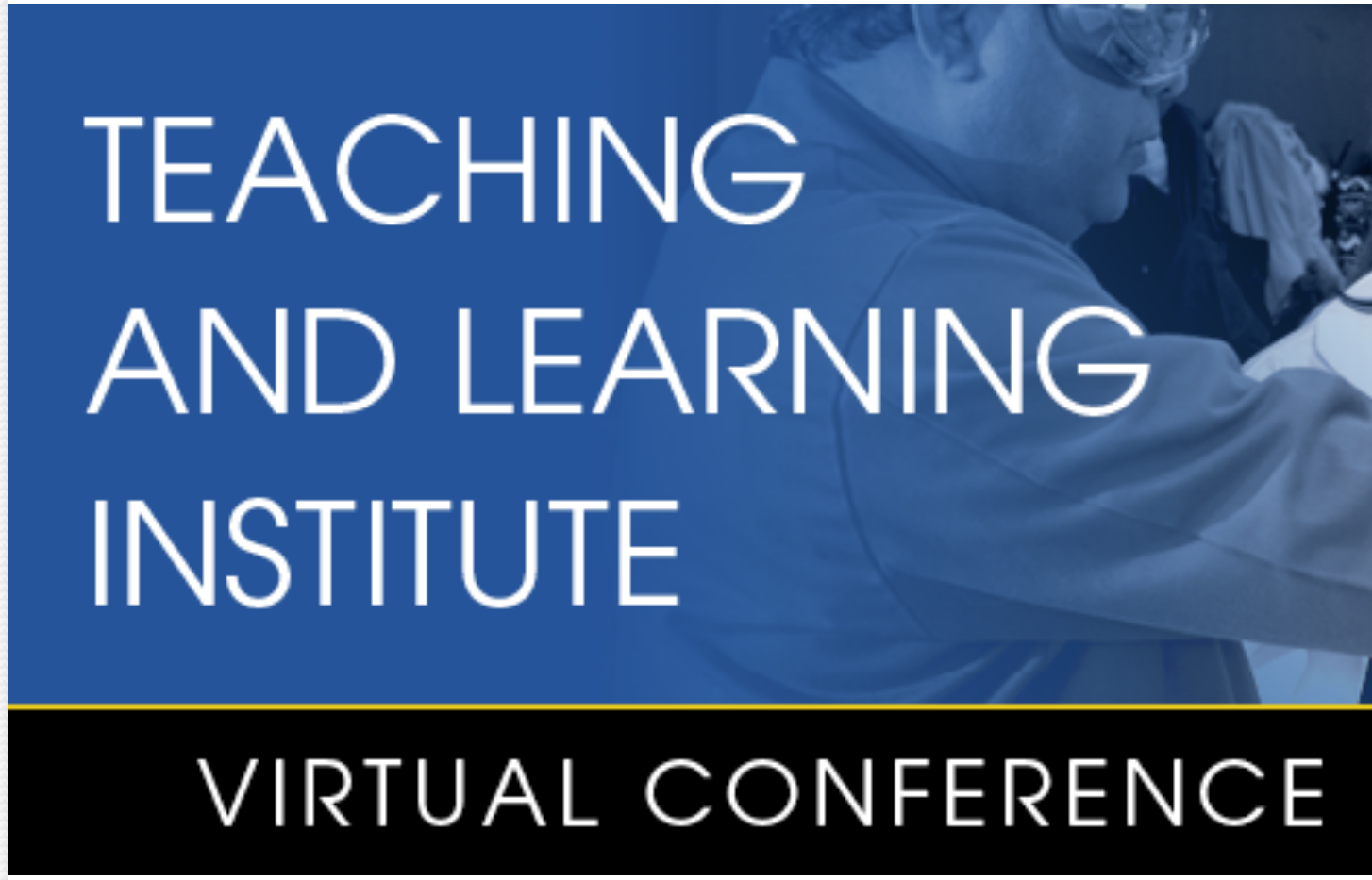
Faculty development leaders share their strategies for shifting the framework in ways that advance equitable student learning experiences.

Presenters share their experiences in developing course curriculum, assignments, and content that validate, affirm, and embrace the diverse perspectives, lived experiences and cultures of the student they serve.

This workshop provides examples of successful innovative and digital assessment approaches that center students and allow for authentic and culturally responsive measurement of student learning.
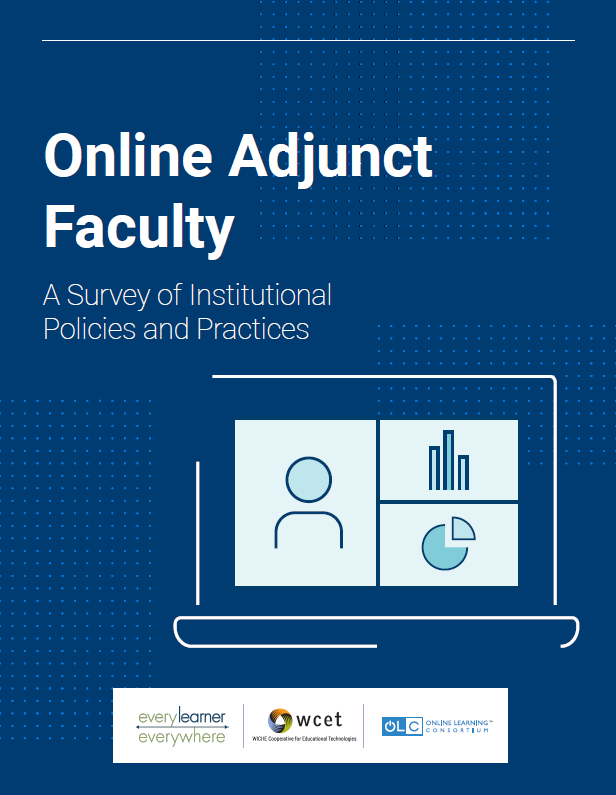
This document reports the findings of a 2021 survey of administrators about policies and practices that impact online adjunct faculty, equity, access, and quality.
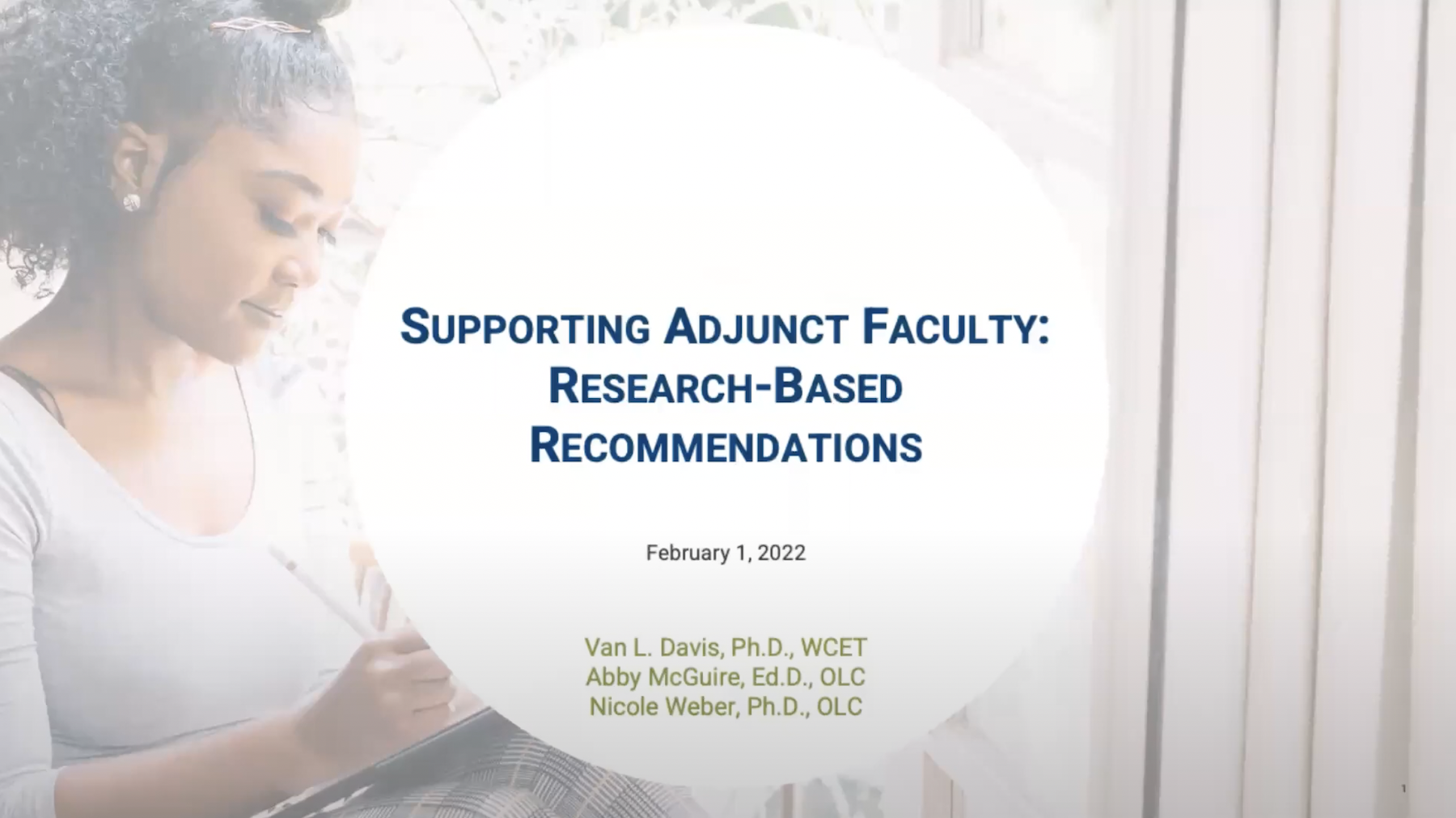
This webinar will highlight the findings of the WCET and OLC Adjunct Faculty Survey and provide research-based recommendations for supporting institutional leaders, support staff who work with adjunct faculty, and adjunct faculty members themselves.
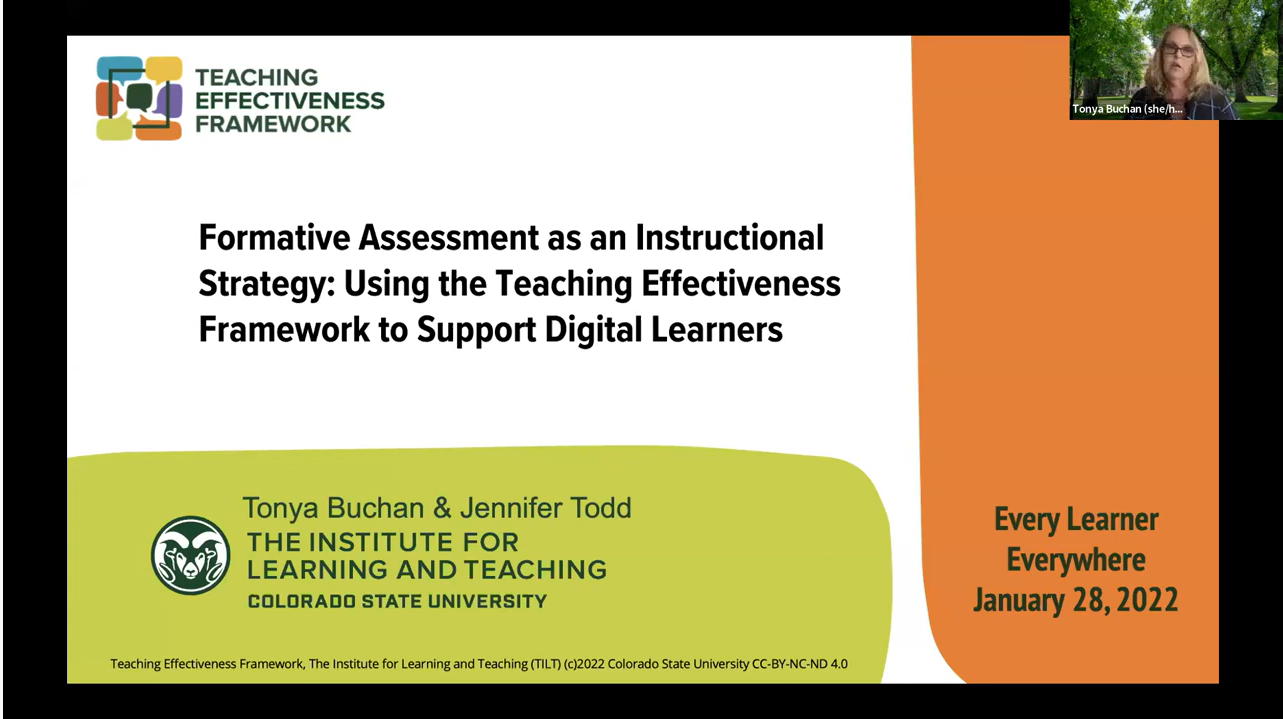
Presenters discuss the intersection of the Feedback & Assessment and Instructional Strategies domains of the CSU Teaching Effectiveness Framework.
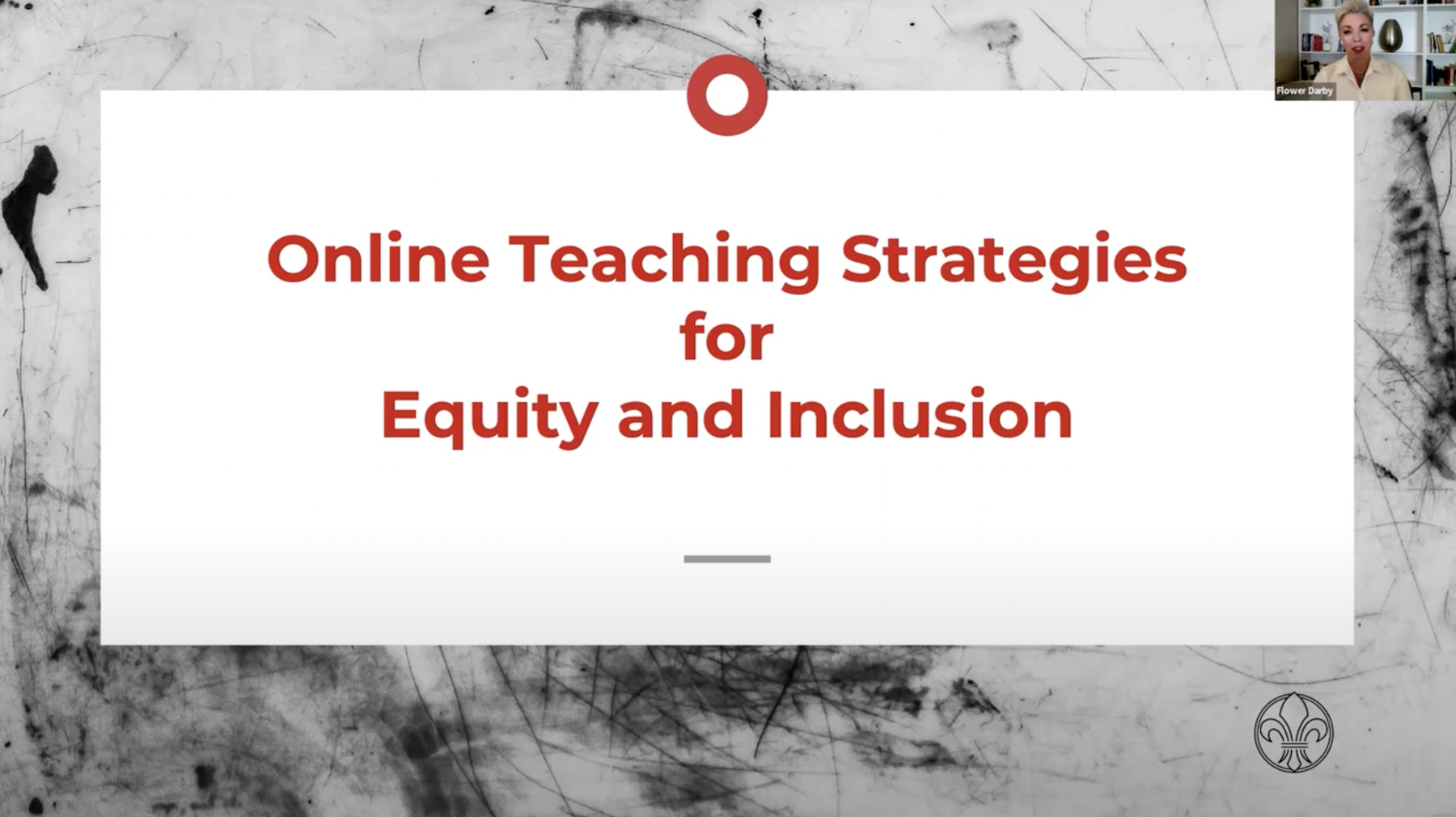
Evidence-based frameworks to welcome and support all students, regardless of their background, abilities, identities, needs, or preferences.
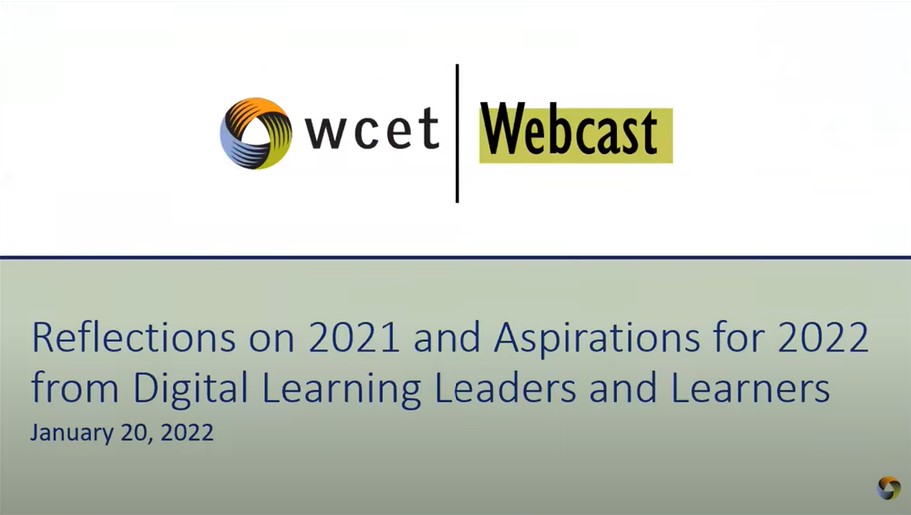
In this webcast, our passionate and inspiring conversationalists shared hopes and aspirations for what’s to come for Higher Education in 2022.
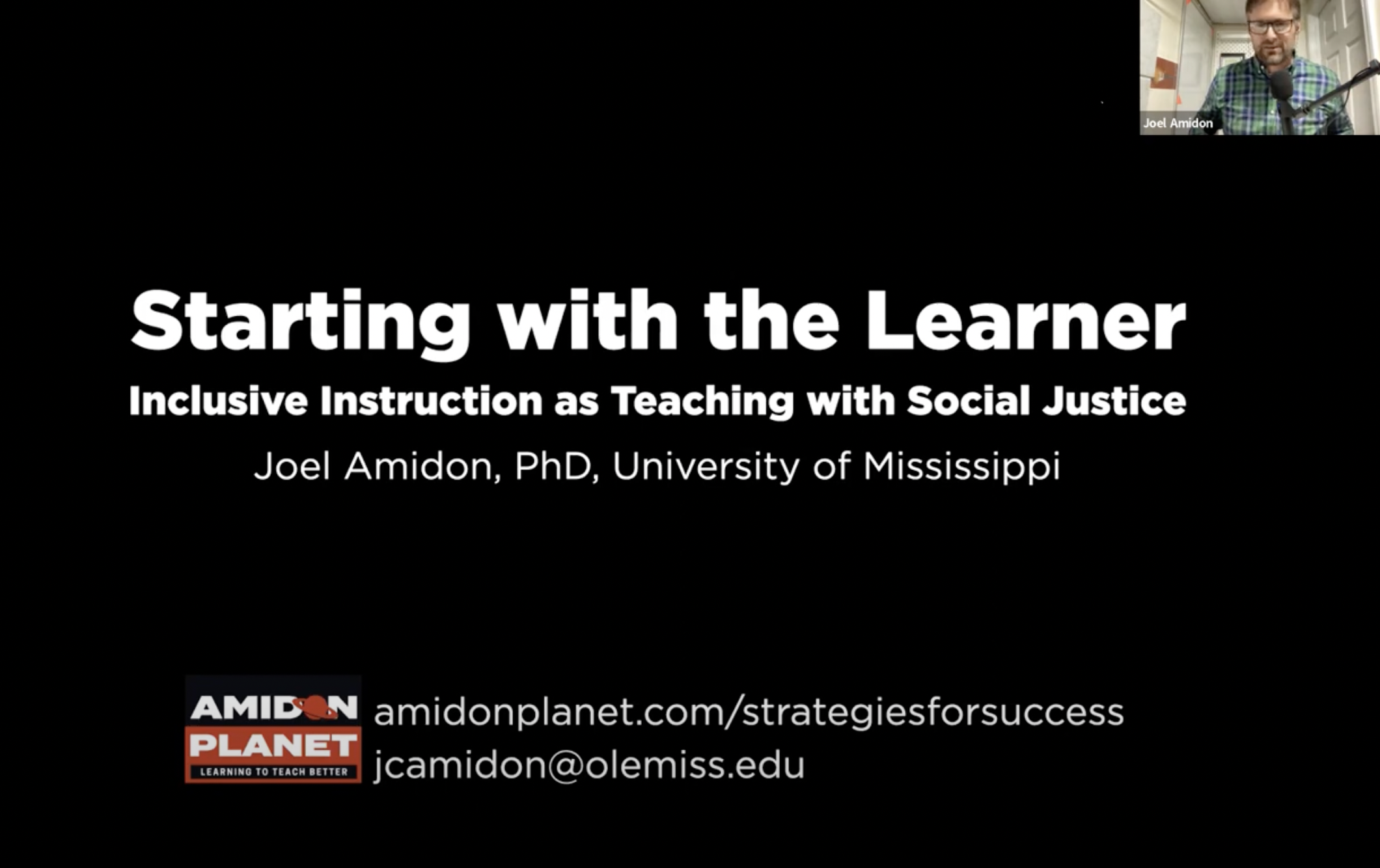
Participants consider how to make instructional design decisions that provide an inclusive learning environment.
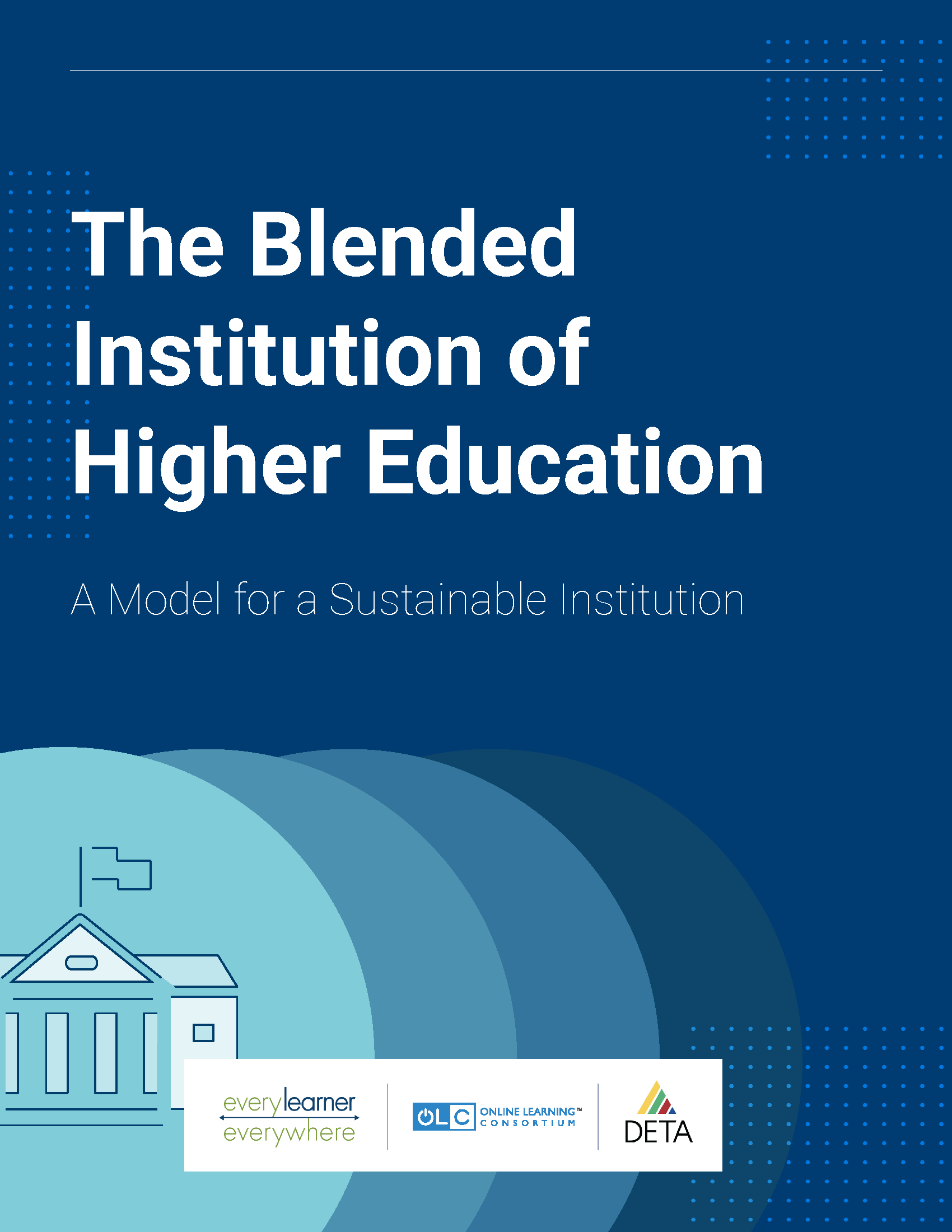
This guide is meant to support leaders as they transition from managing reactively to leading strategically and offers leaders a sustainable institutional model that centers on student equity and success.
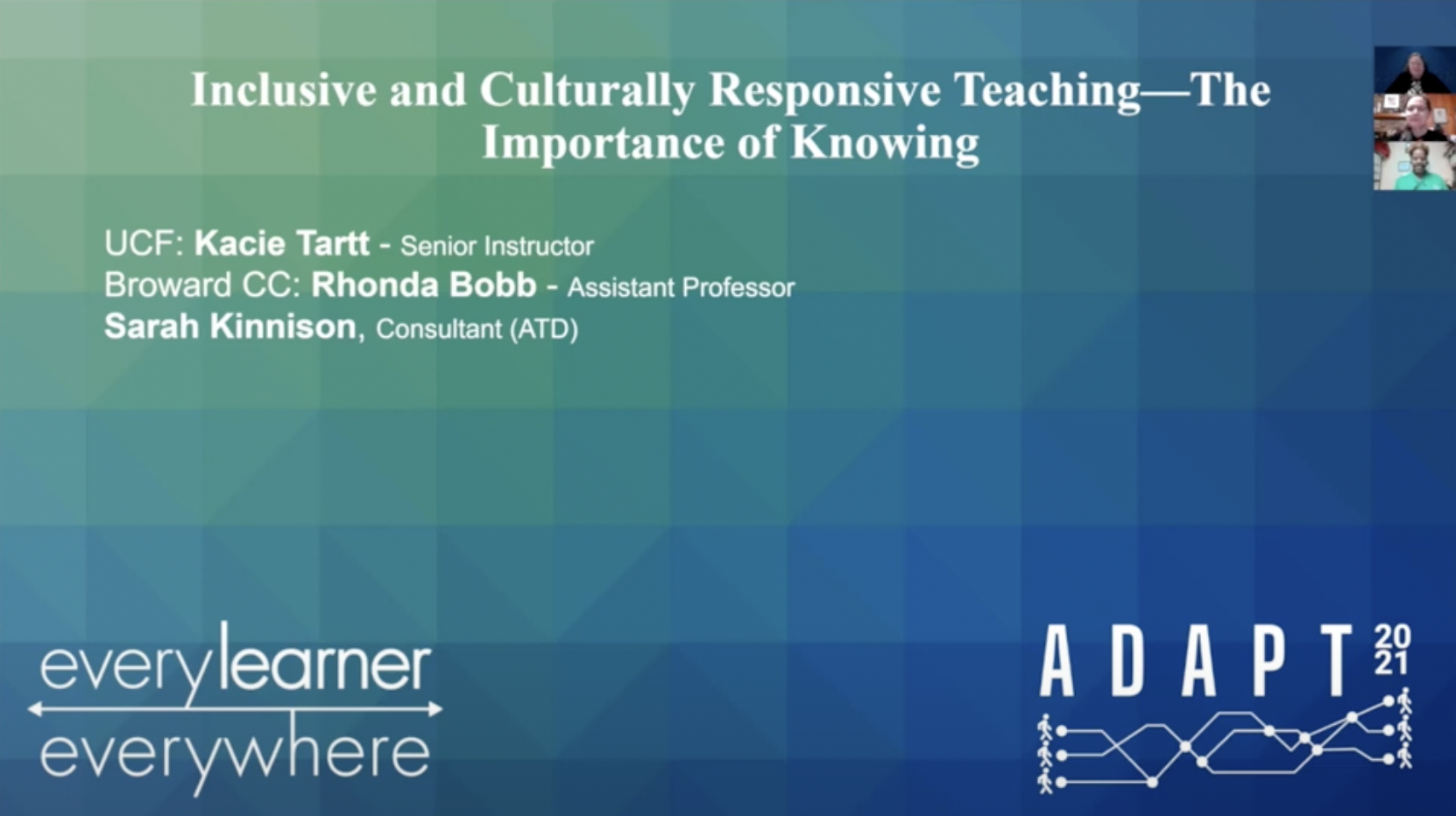
Faculty describe inclusive teaching strategies, alongside digital tools, to help connect the content to the student in meaningful and lasting ways.
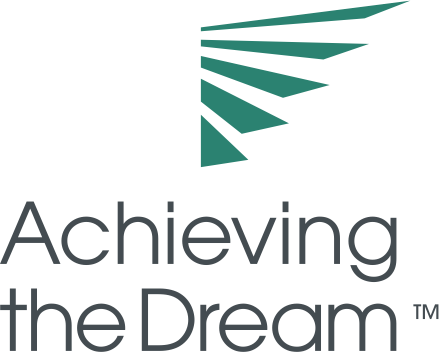
Instructional designers, technologists, and faculty developers practice consultation approaches by exploring a case study and applying course design strategies.

Align course instruction with adaptive content, analyze data points on an adaptive courseware dashboard and effectively onboard students.
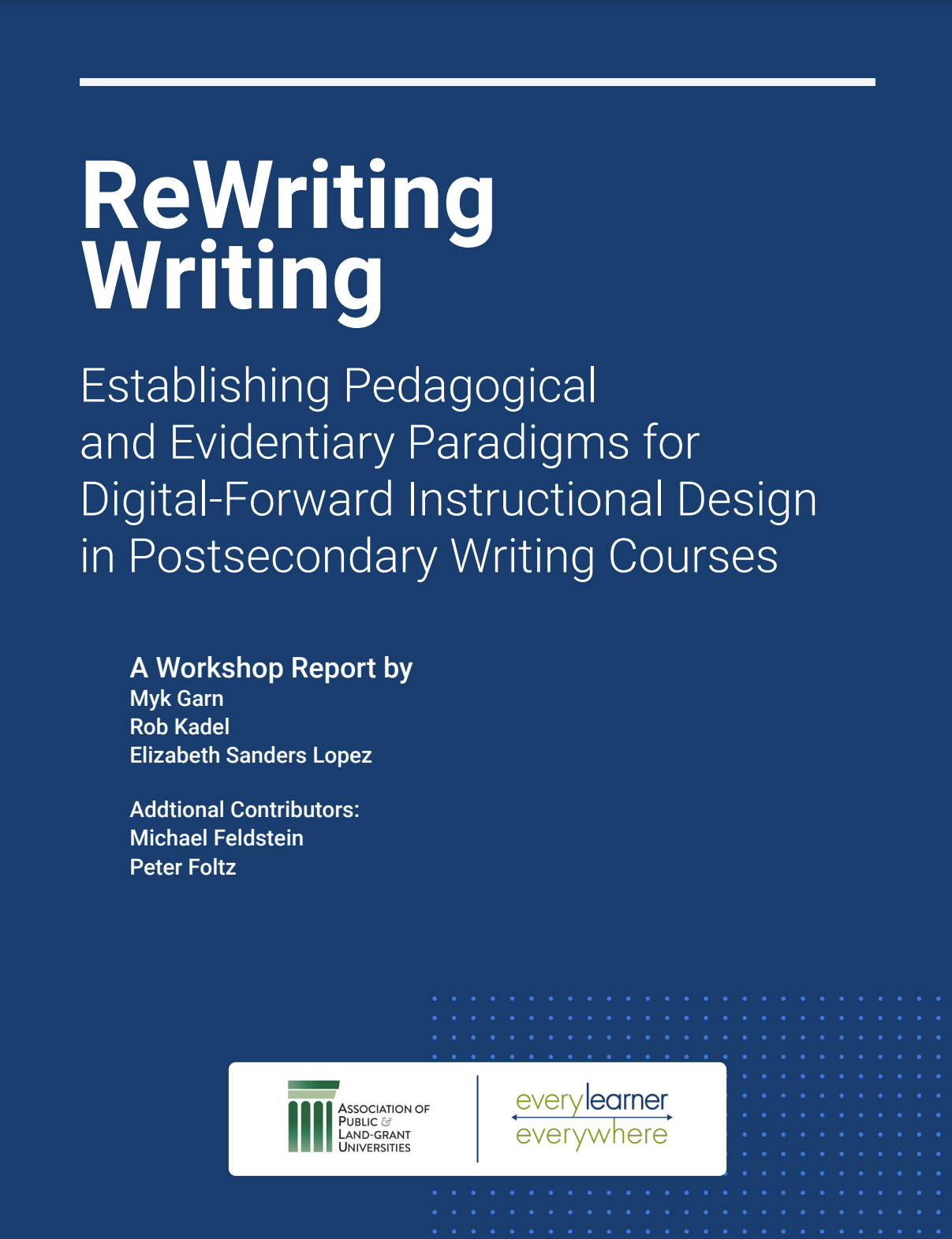
This report summarizes the work of the Re-Writing Writing workshop where we invited a diverse range of digital learning experts to bring their distributed knowledge of digital tools to a four-session virtual workshop.
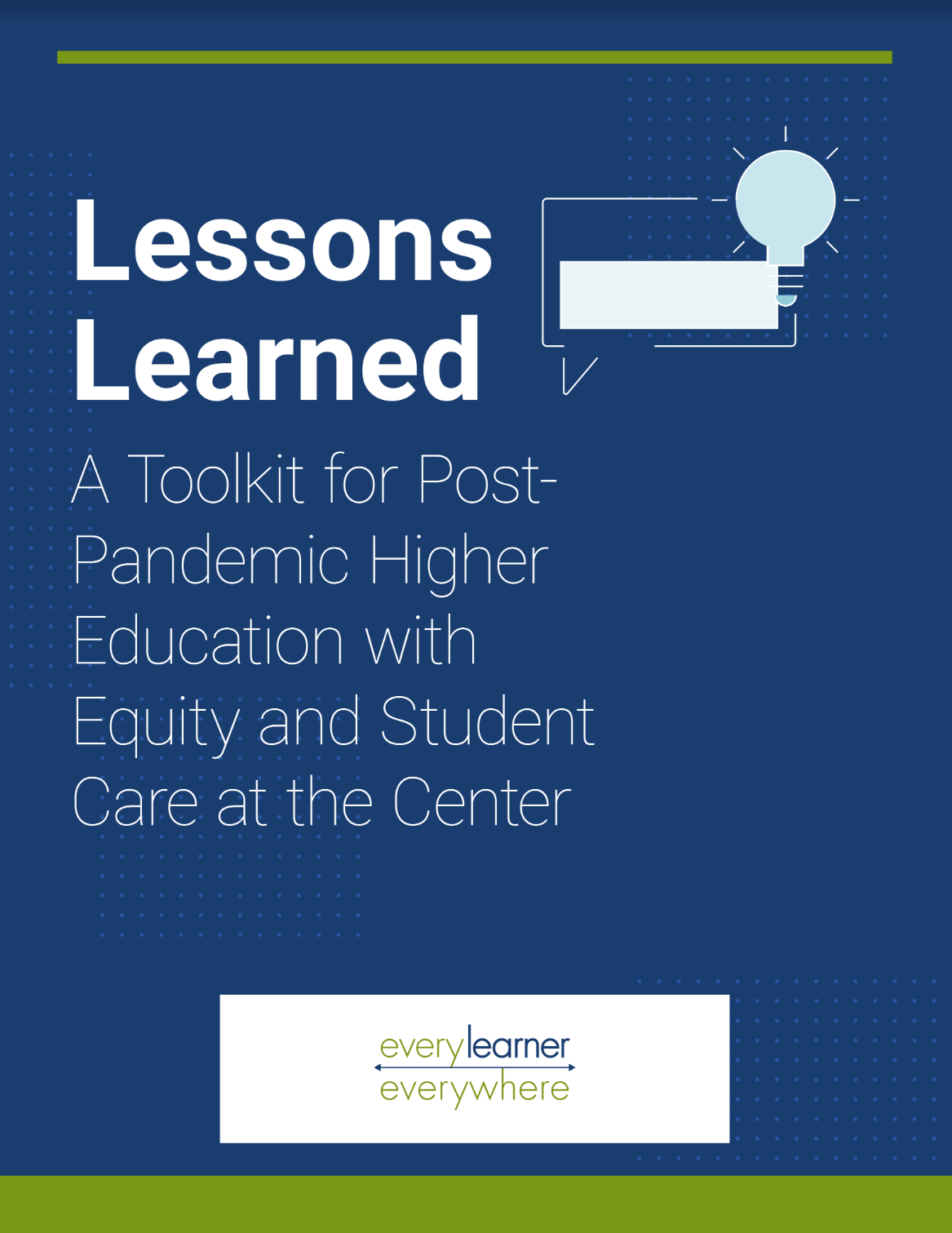
Lessons Learned is made up of over 30 recommendations for improving practices in higher education. It asks where unexpected benefits showed themselves among the forced necessity of emergency remote teaching, and it encourages faculty, administrators, and academic and student support colleagues to continue collaborating to remove barriers, improve access, and update methods and tools.
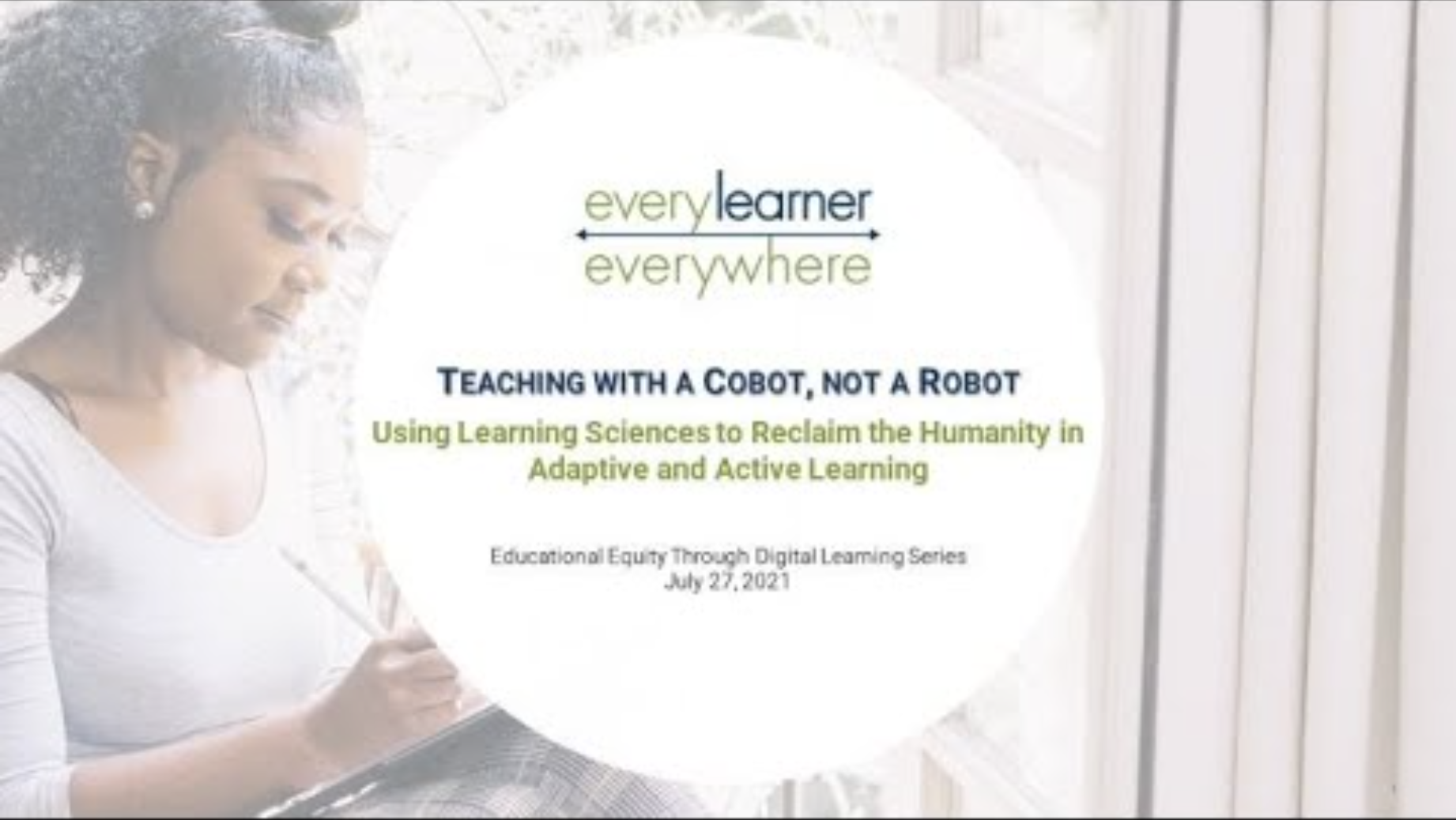
This presentation explores four dimensions of motivation and feedback, two learning science pillars that engage students in the learning process and fosters long-term memories with active and adaptive learning.
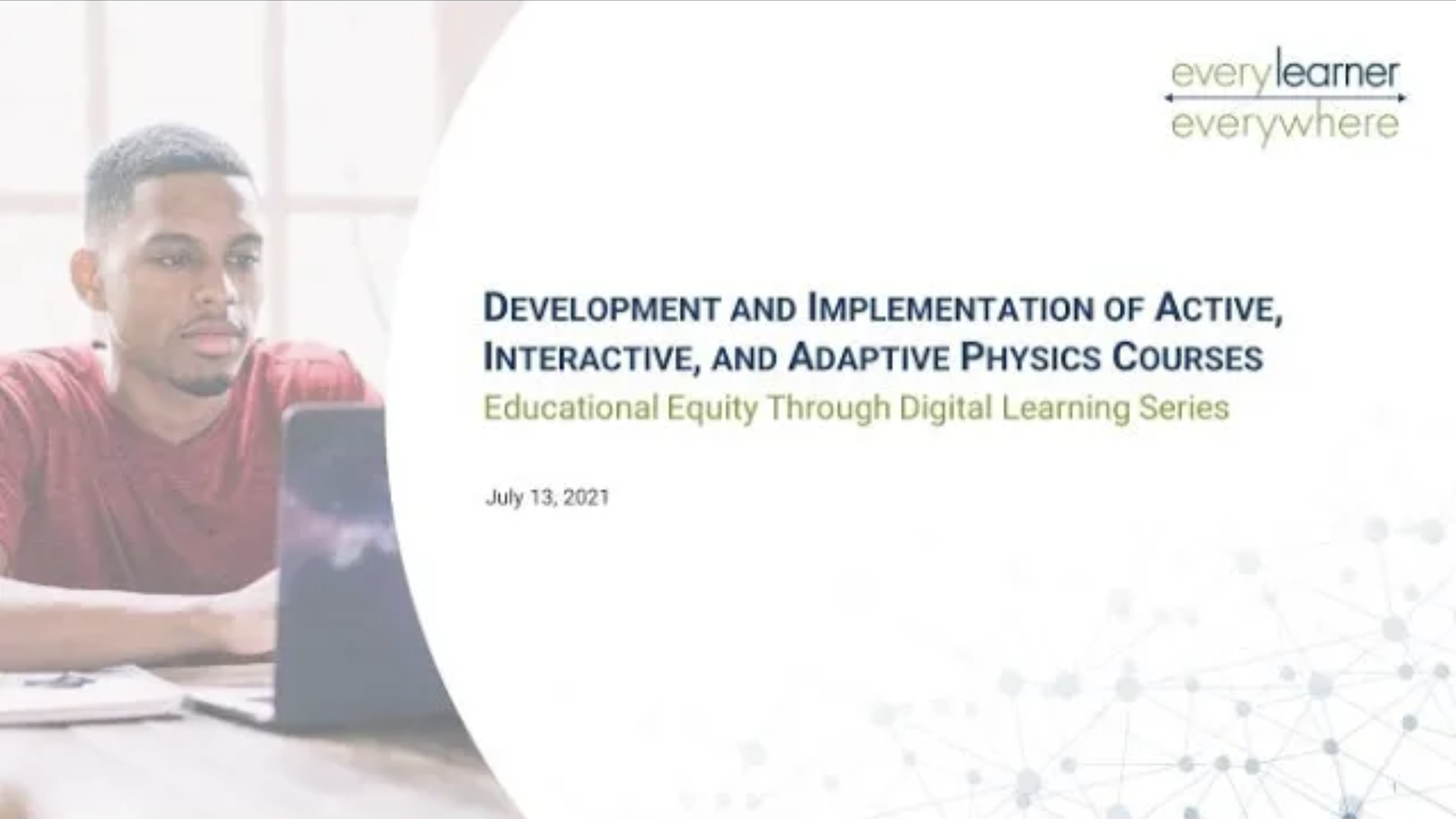
Faculty share experiences of developing and implementing active, interactive, and adaptive introductory physics courses. The design allows students to work at their own pace, choosing support items presented to them via the adaptive feature of the course, and explore concepts through simulations with activities.
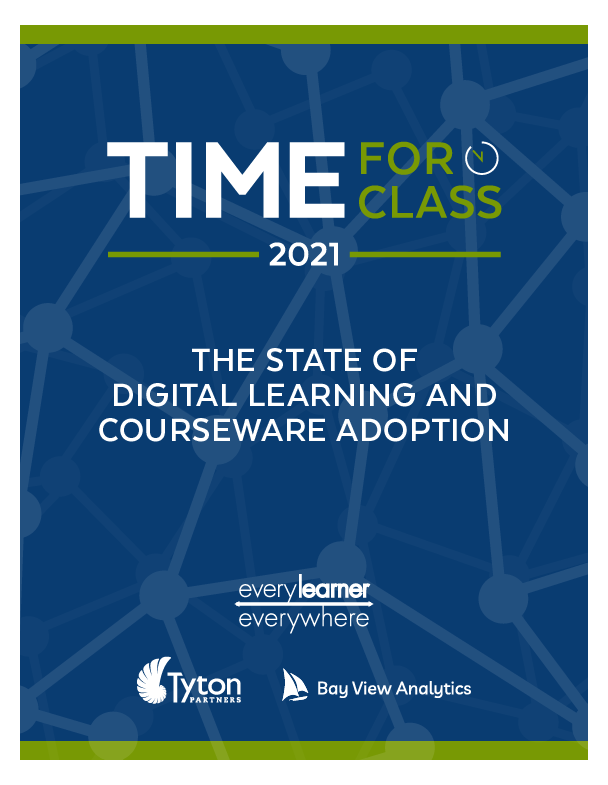
Time for Class is a comprehensive longitudinal survey of 4,000+ higher education faculty and administrators, fielded since 2014 by Tyton Partners.
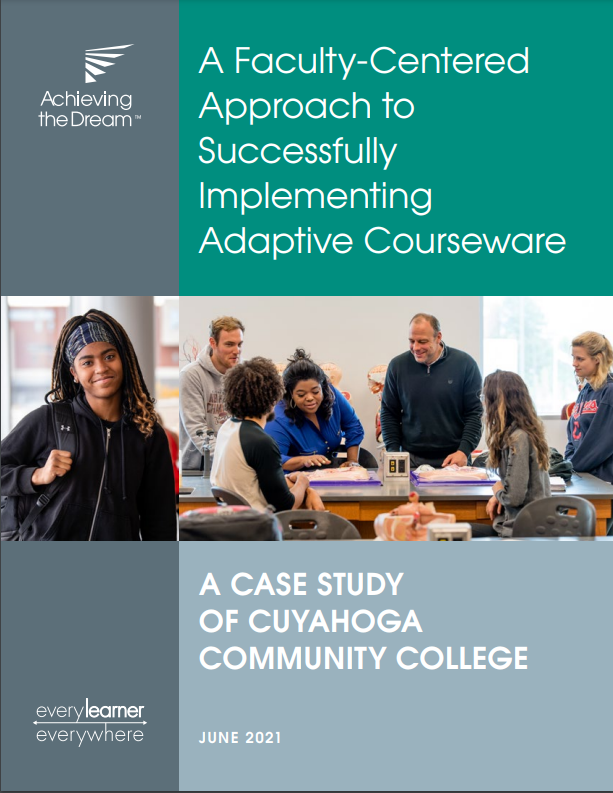
Faculty at Cuyahoga Community College led efforts to implement and then scale adaptive courseware for gateway courses in more than a half-dozen disciplines.
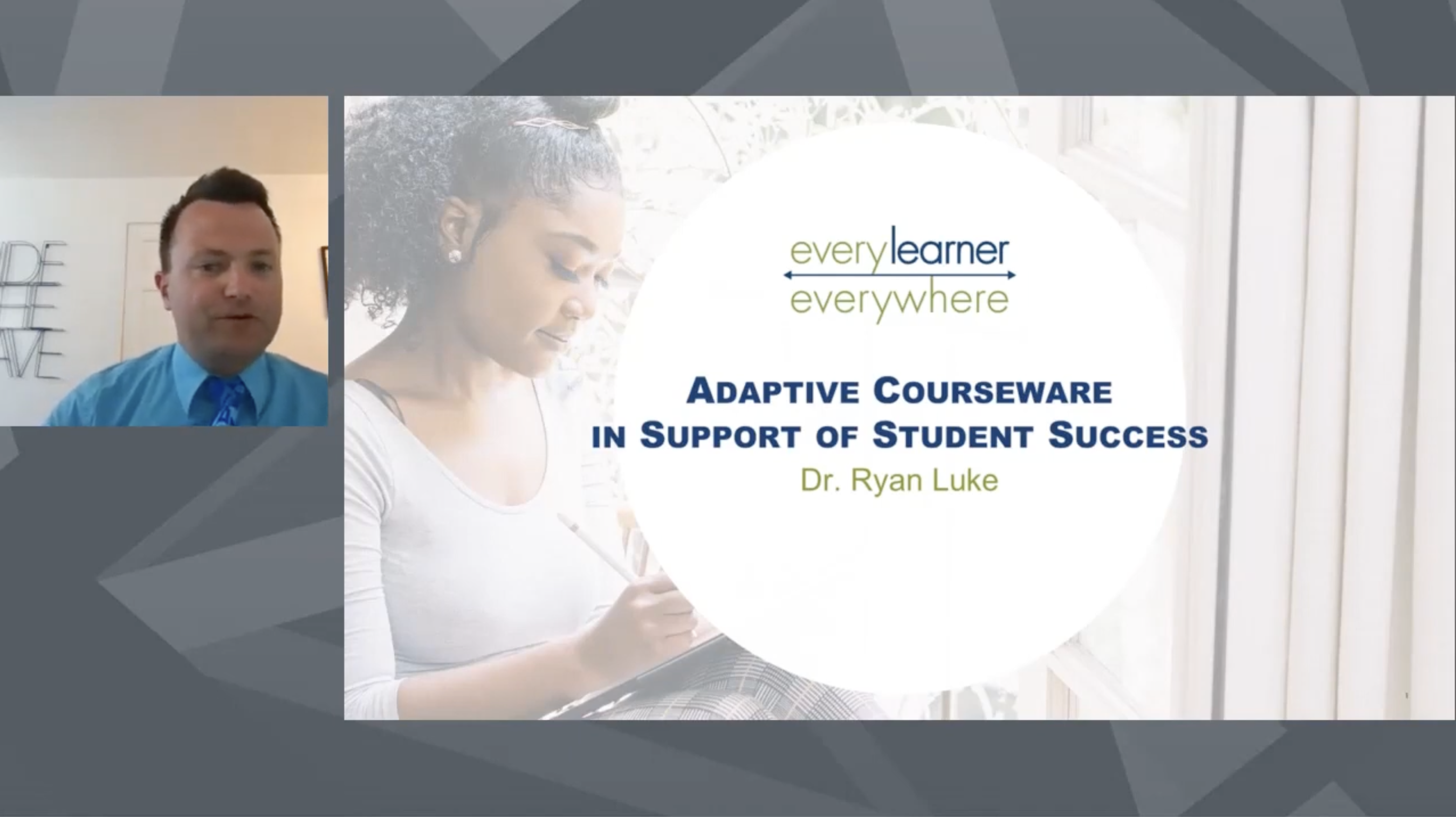
How personalized digital learning technology can support evidence-based teaching.
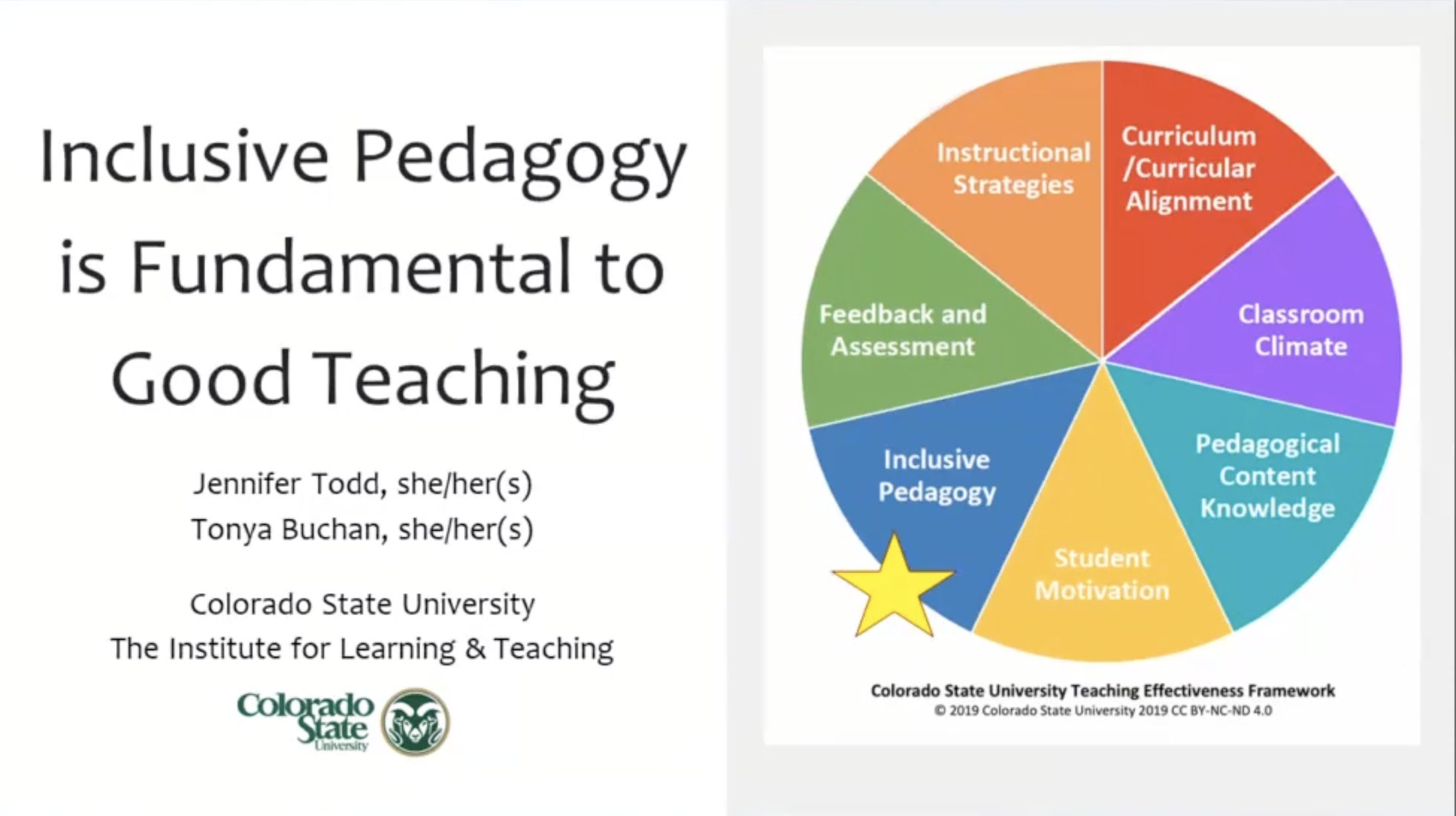
An overview of inclusive pedagogy with Colorado State University’s Teaching Effectiveness Framework and its implications during the shift to remote learning in 2020.
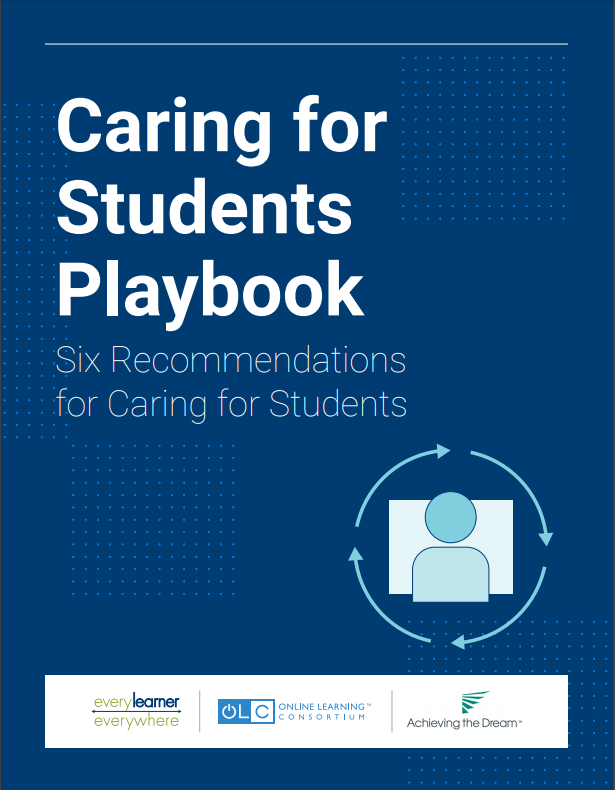
This playbook offers authentic and easily implementable strategies to help instructors to care for their students and ensure their success in the classroom and beyond.
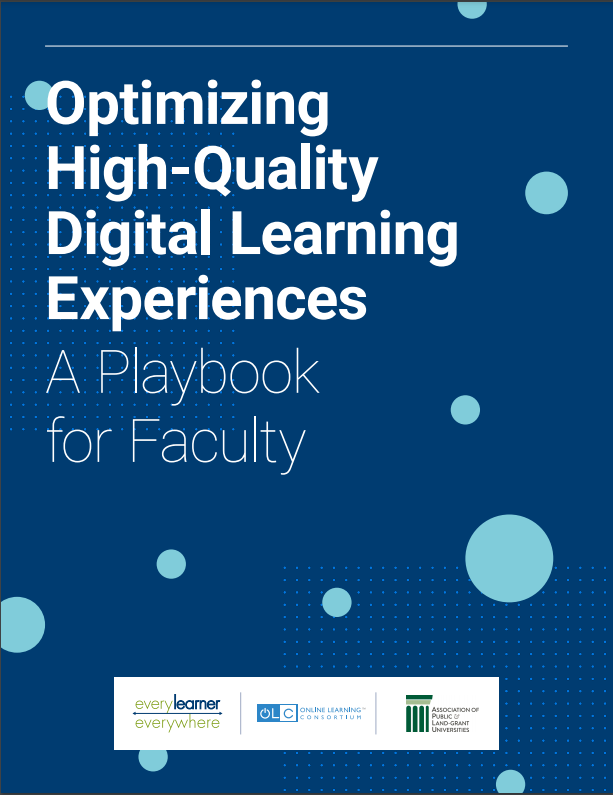
By integrating teaching and design principles, this guide assists faculty in positively impacting student learning, especially for students who are minoritized because of race, gender, disability, or socioeconomic status.
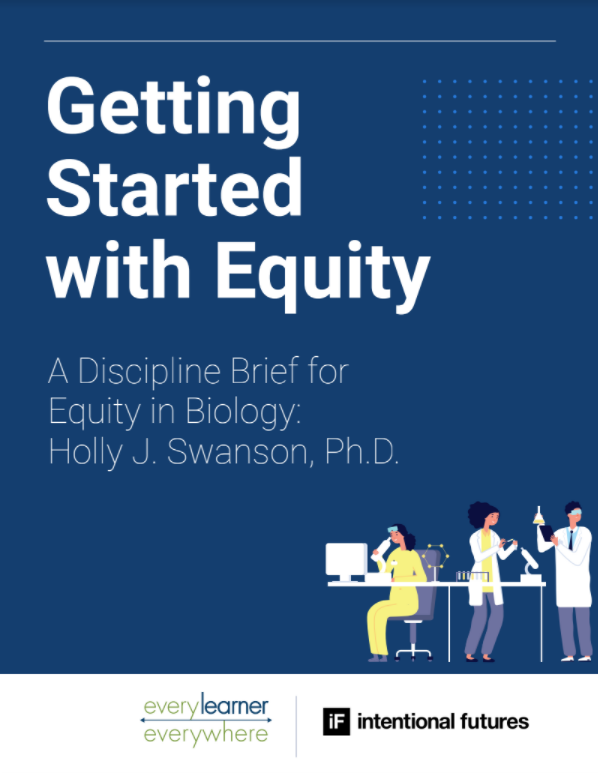
This brief explores how pedagogical, content, and mindset changes can reduce obstacles for minoritized students and support equity in biology.
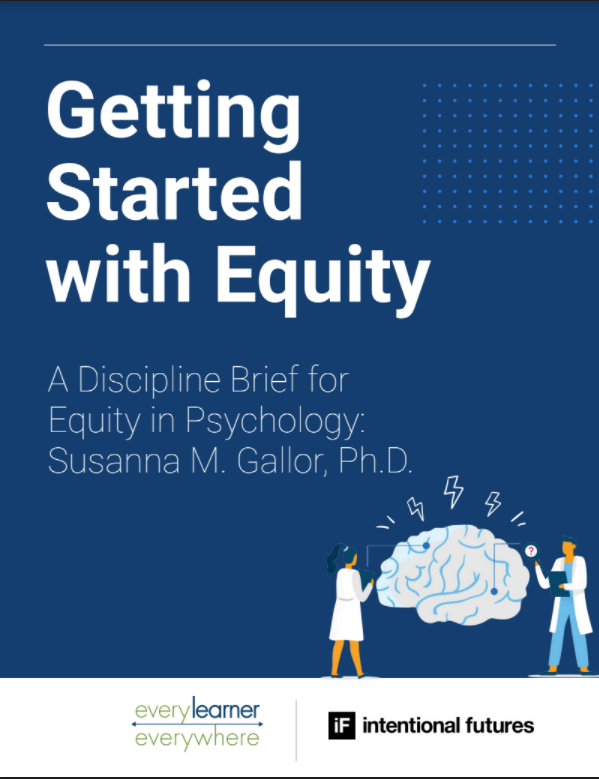
This brief provides an overview of equity issues and solutions in psychology courses.

This brief shares how asset-based instruction, fostering student belonging, active learning, and flexible and differentiated coursework can reduce equity gaps in chemistry.
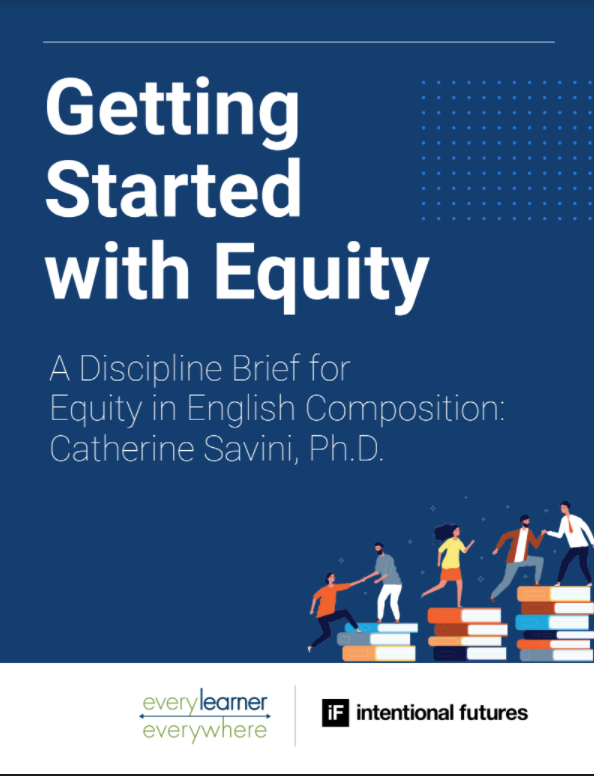
This brief explores how adjusting pedagogy, and eliminating linguistic bias can support equity in English composition courses.

This brief recommends resources to inform teaching to account for linguistic diversity and ability and promote a more equitable academic environment for students in English composition courses.
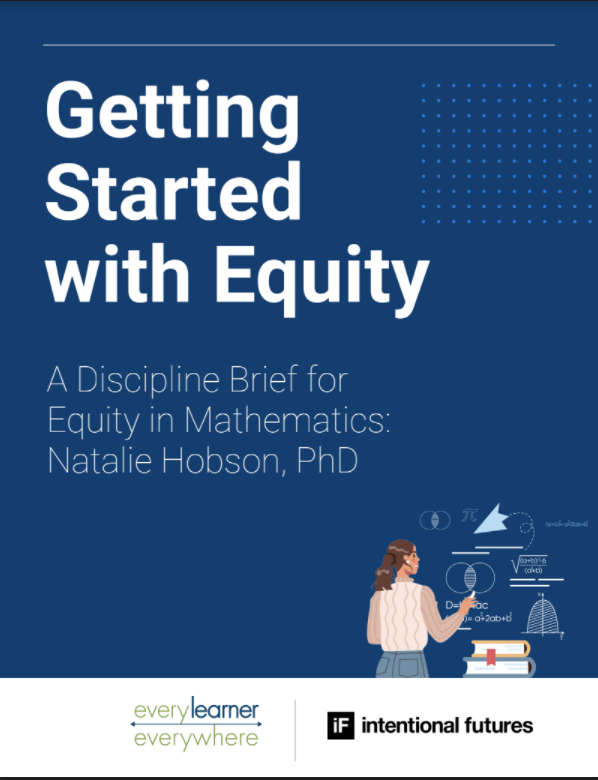
This brief suggests diverse pathways, student-centeredness, and bias training to close equity gaps in mathematics courses.
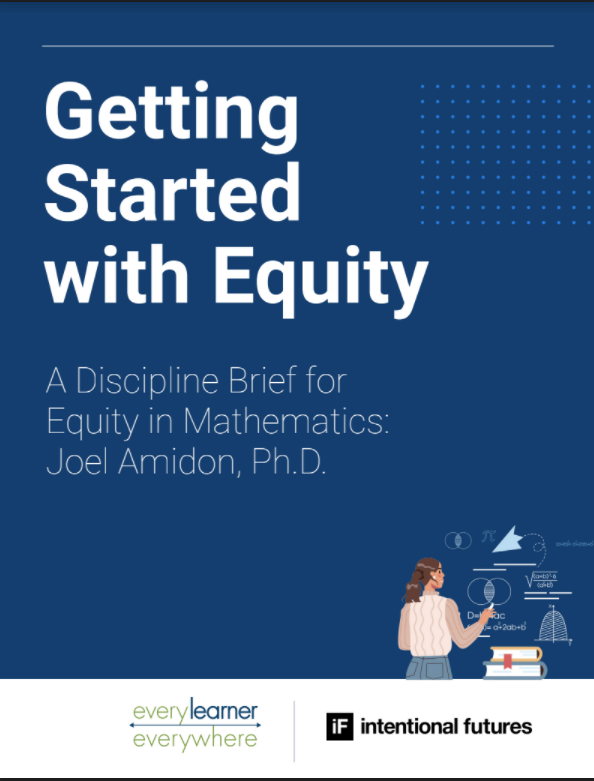
Joel Amidon is on a mission is to lead people to love others through teaching, providing solutions for equity in math courses.
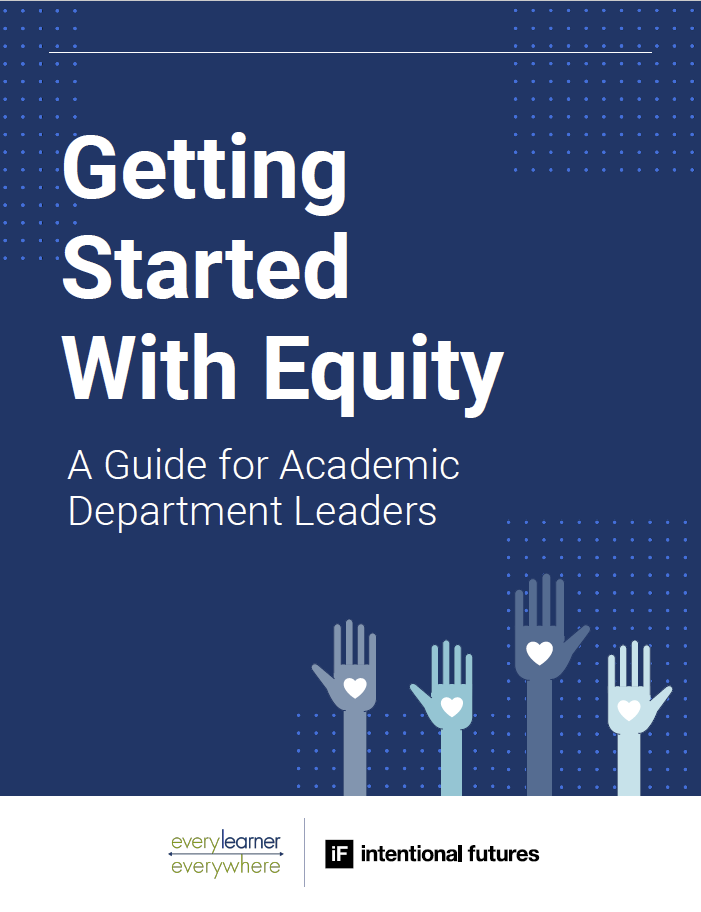
Getting Started With Equity: A Guide for Academic Department Leaders has a very specific purpose, which is to serve as a first step for department chairs to develop and curate an educational environment that is simultaneously justice-centered and equity-advancing.
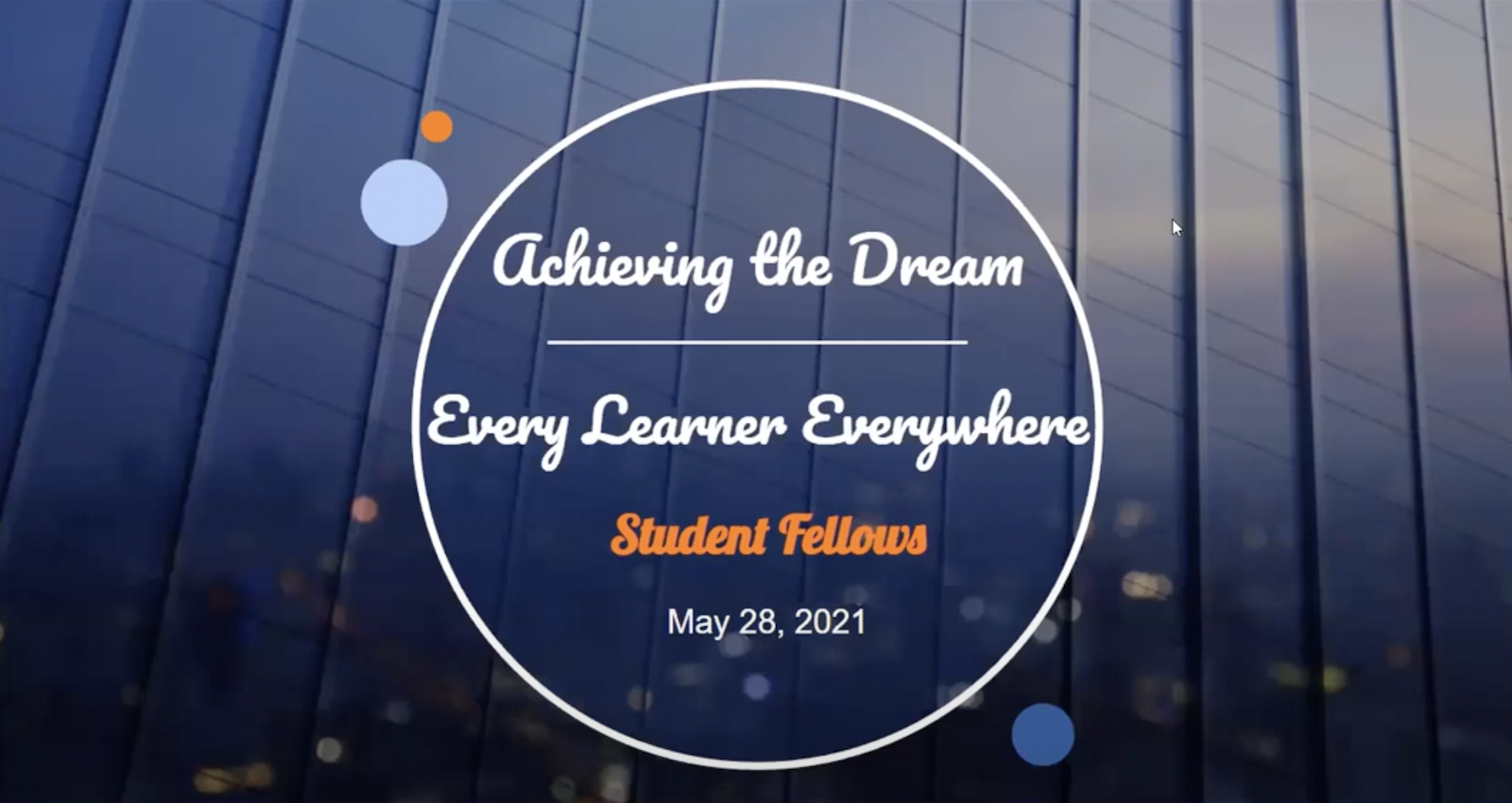
Every Learner Student Fellows provide an overview of their internship with ATD and ways leaders can more intentionally center student voice.
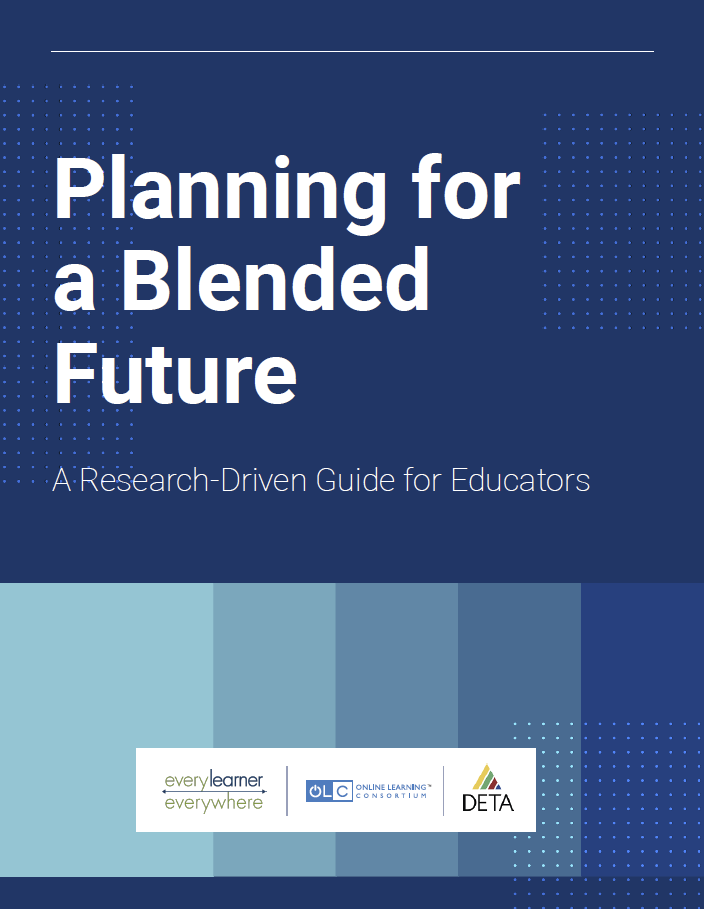
This guide moves beyond getting started with blended learning to help educators realize the best of online and onsite instruction and implement research-driven techniques to positively influence student outcomes.
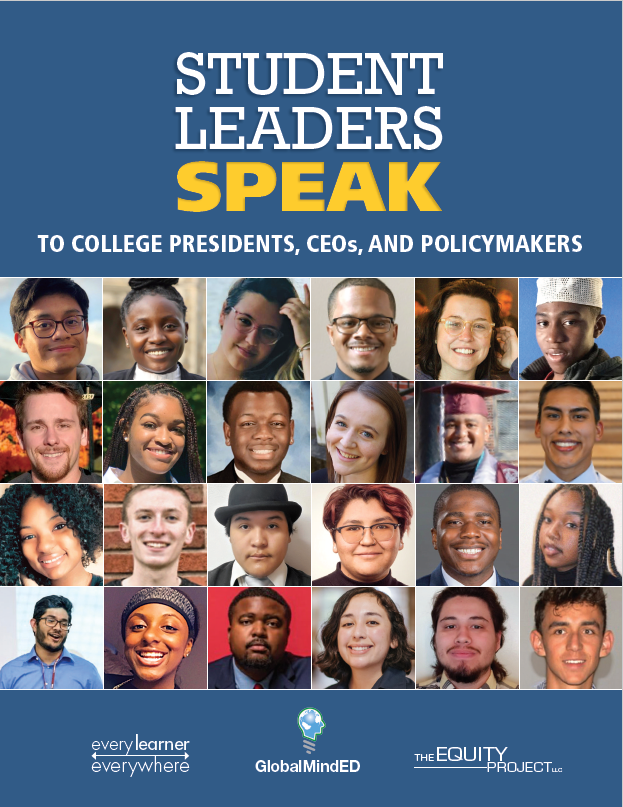
Student Leaders Speak documents a national snapshot of diverse college students, including many who are first-generation as they reflect on their lives, their learning, their digital experiences, their challenges, their setbacks and their triumphs.
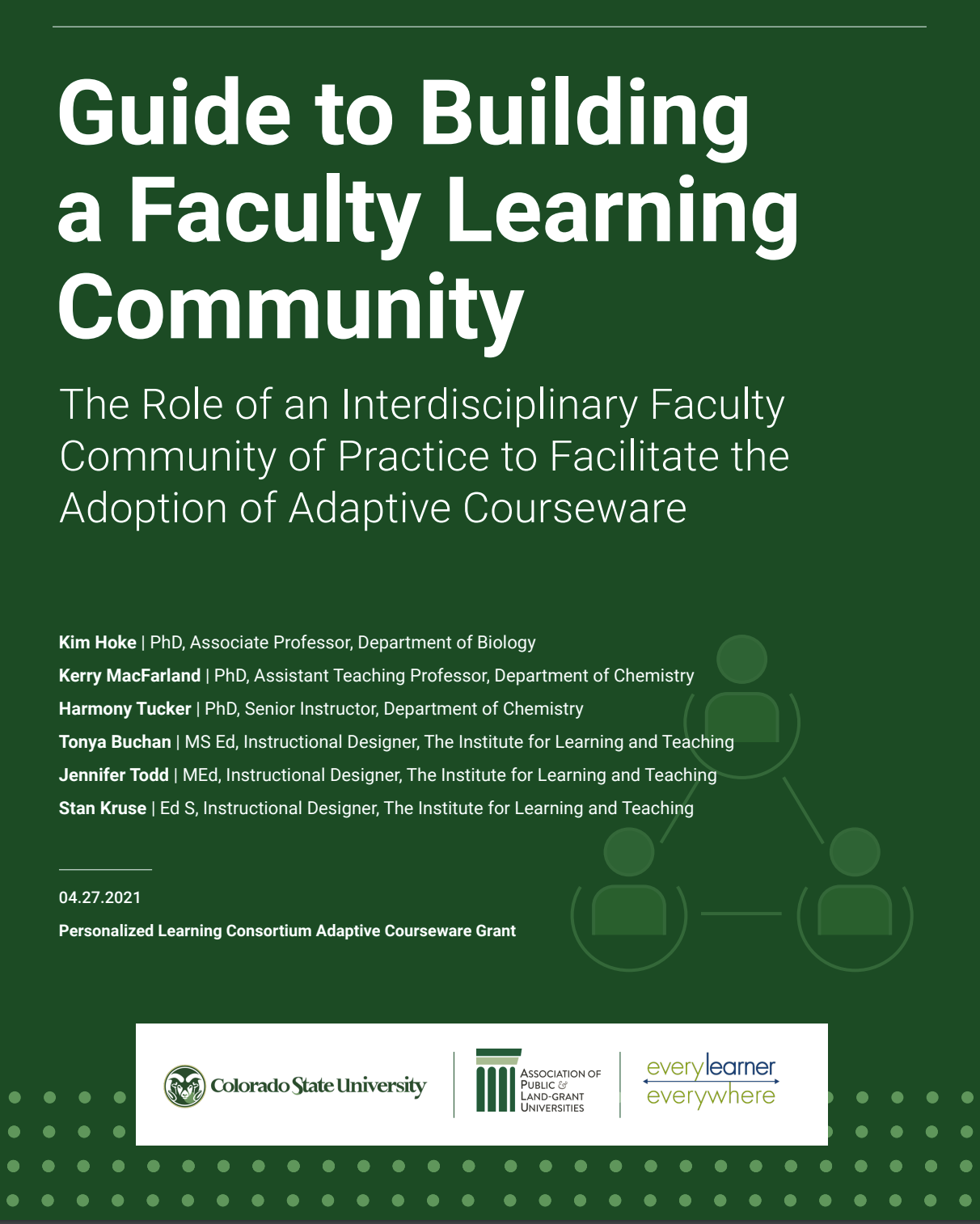
This resource describes how to build and maintain faculty learning communities, details some logistics, and provides a case study from Colorado State University along with testimonials from instructors.
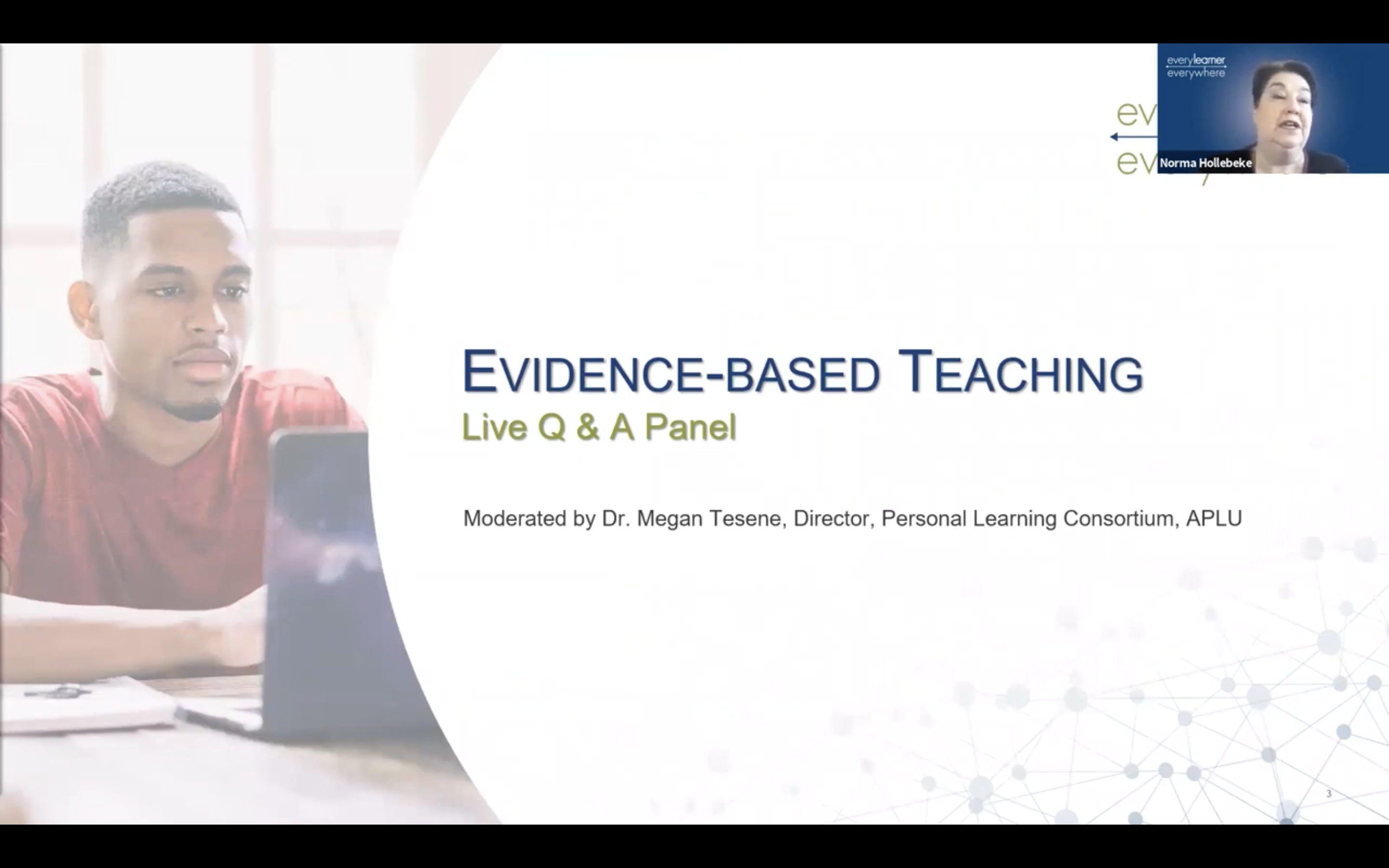
A panel discussion about Evidence-based teaching strategies that center equity in online and hybrid modalities.
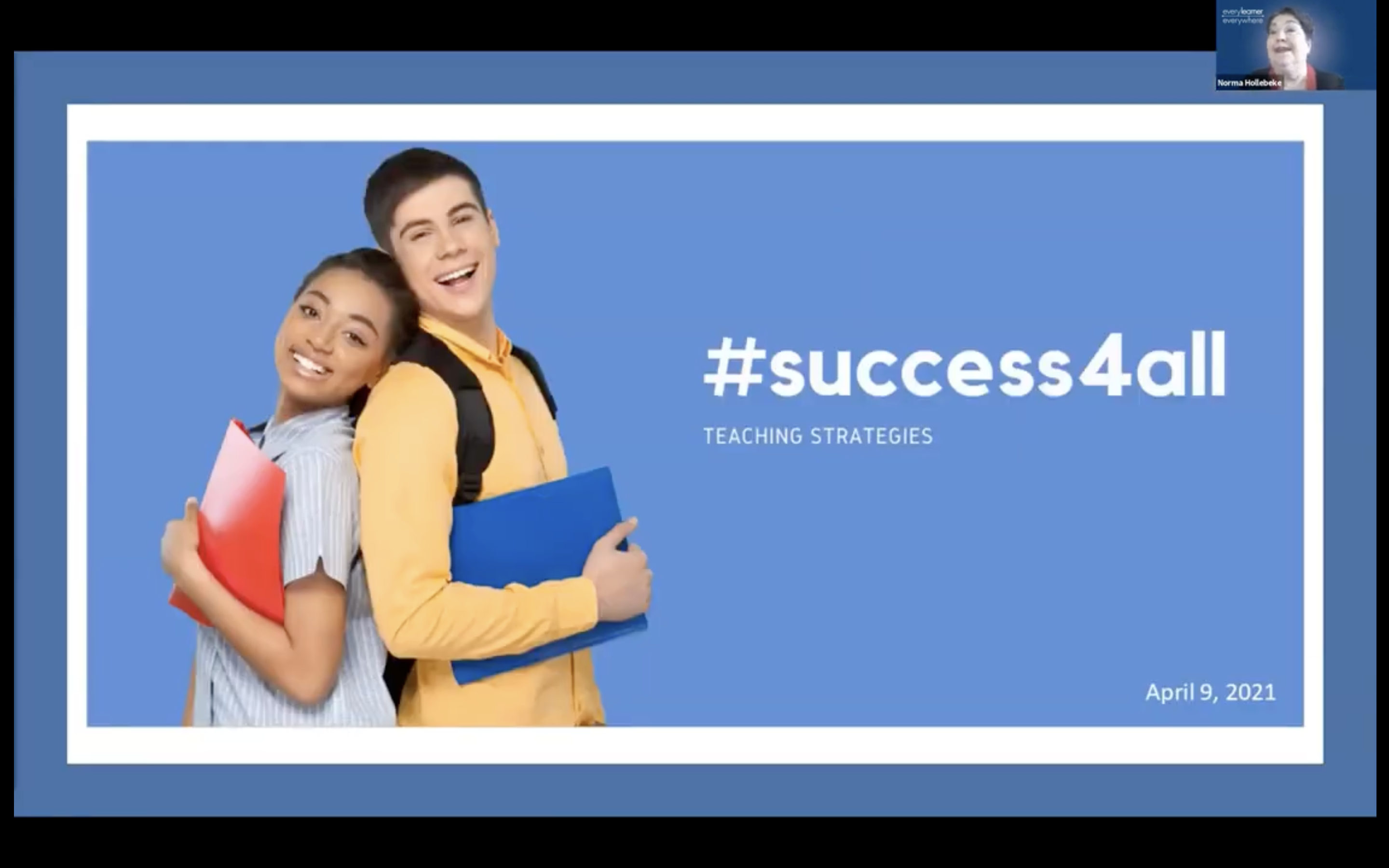
In this webinar, learn simple teaching strategies to help students take charge of their learning and ensure all students master content.
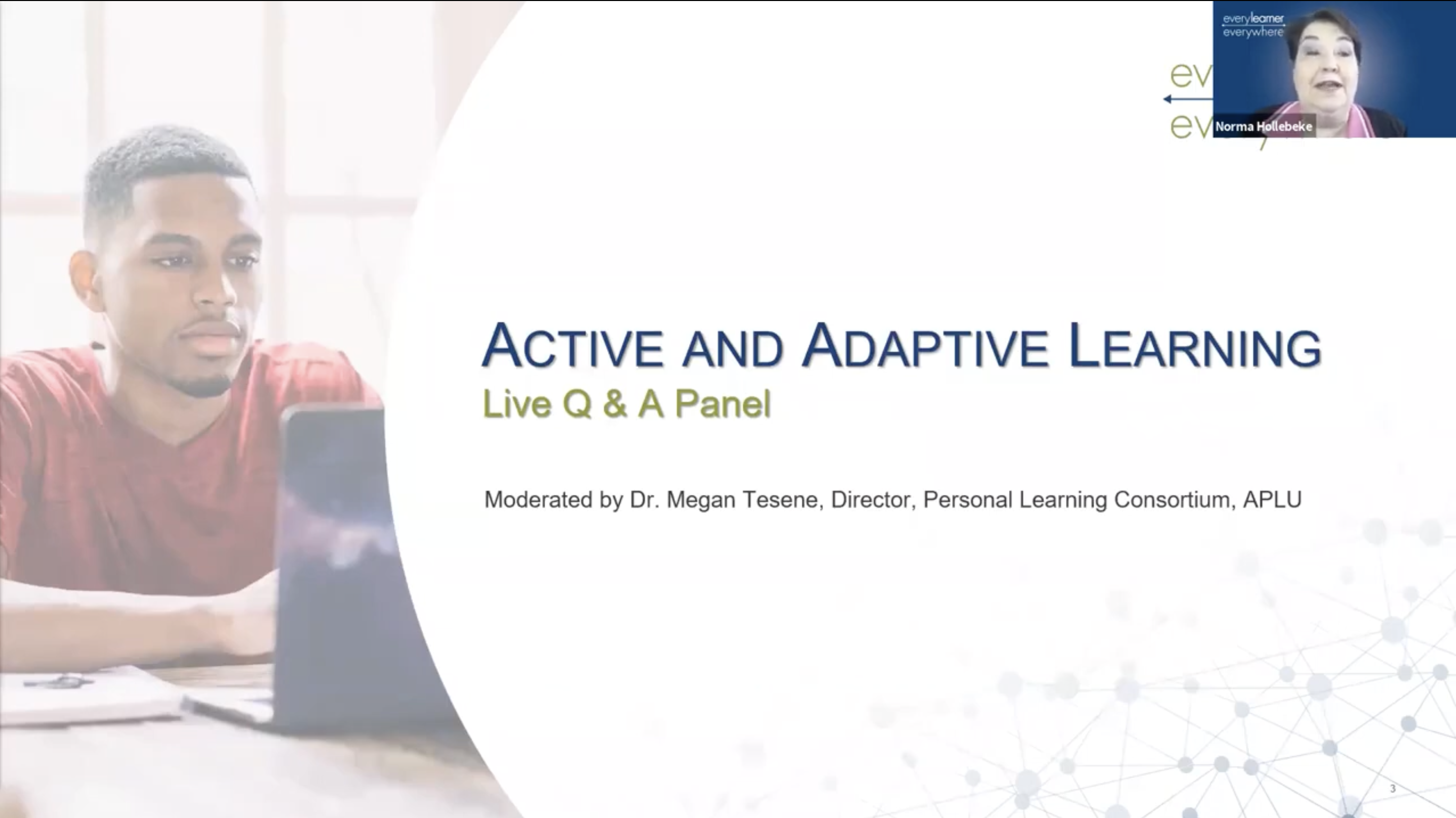
Active and adaptive learning strategies can engage students in blended and online environments, resulting in improved student outcomes and success.
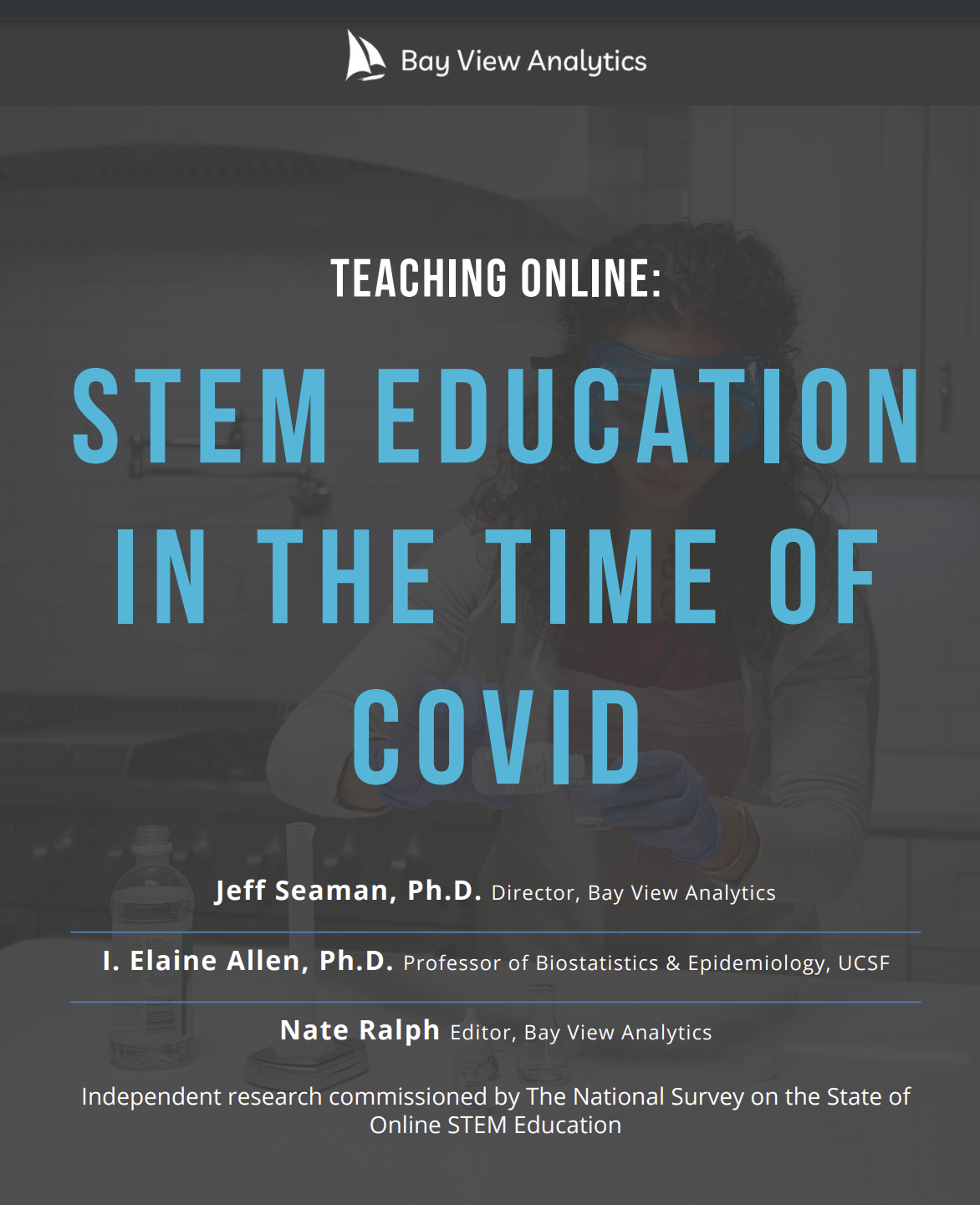
This fall 2020 survey explores the impact COVID had on higher education faculty in STEM fields and how that experience informed their opinions of online education’s effectiveness..
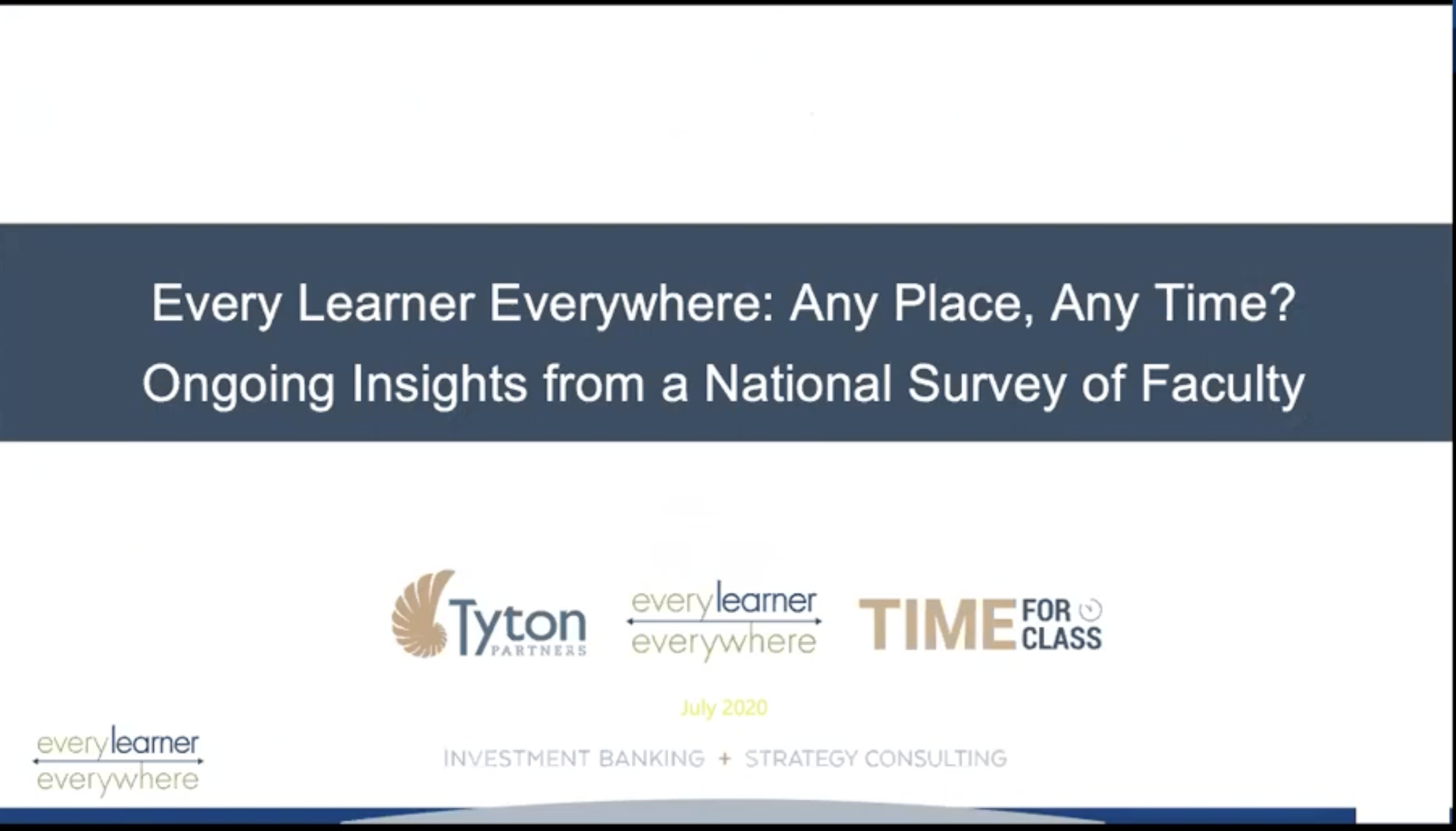
In this session we address key learnings about instructional practices and student learning outcomes, usage of digital tools and impact on faculty time, and share key challenges we must continue to confront as well as the strategies faculty and institutions are deploying to better ensure that every learner everywhere is able to learn.
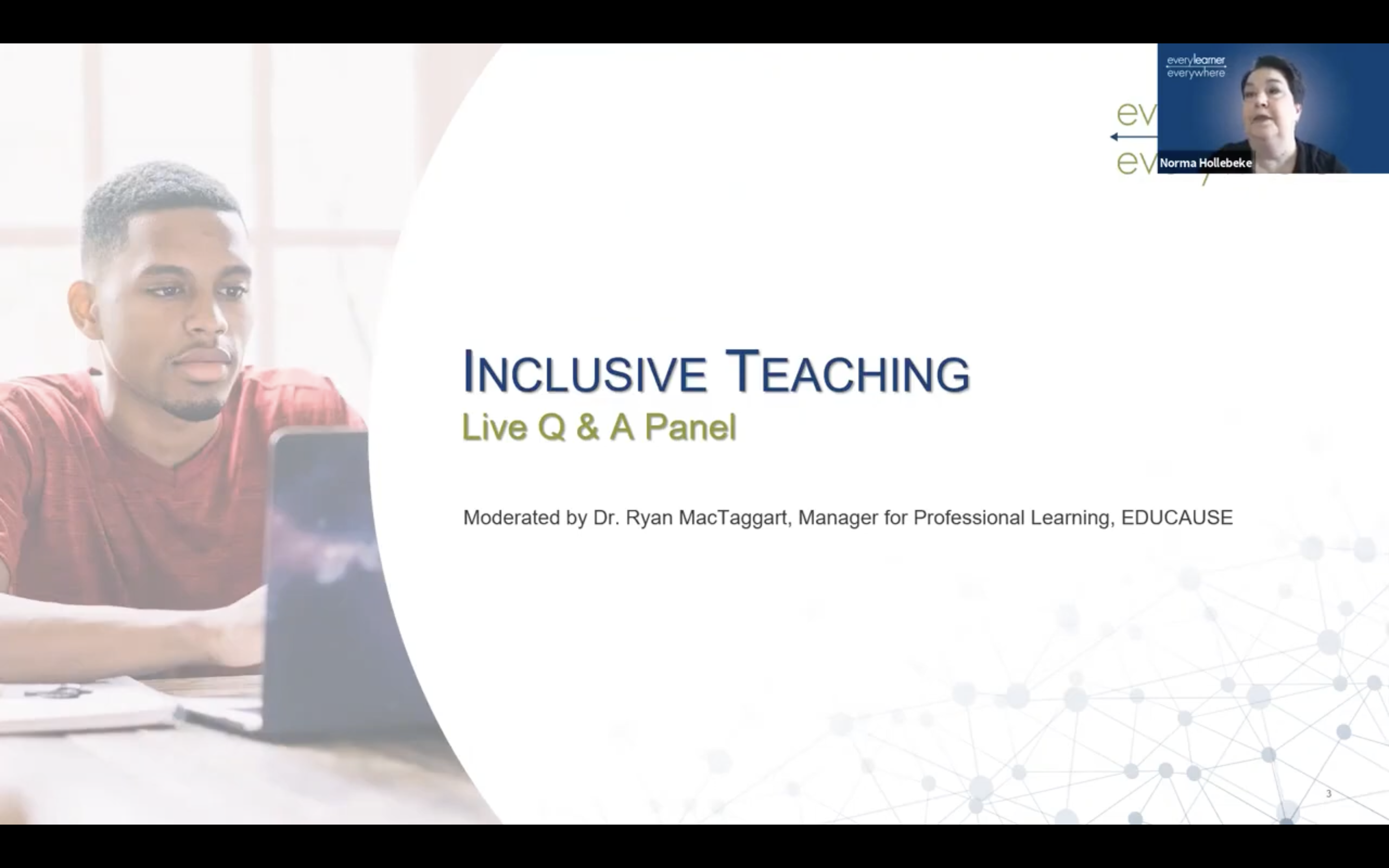
In this live Q&A panel, participants engage with Every Learner Everywhere Expert Network professionals to discuss equitable and inclusive teaching practices and digital learning to foster student-centered learning.
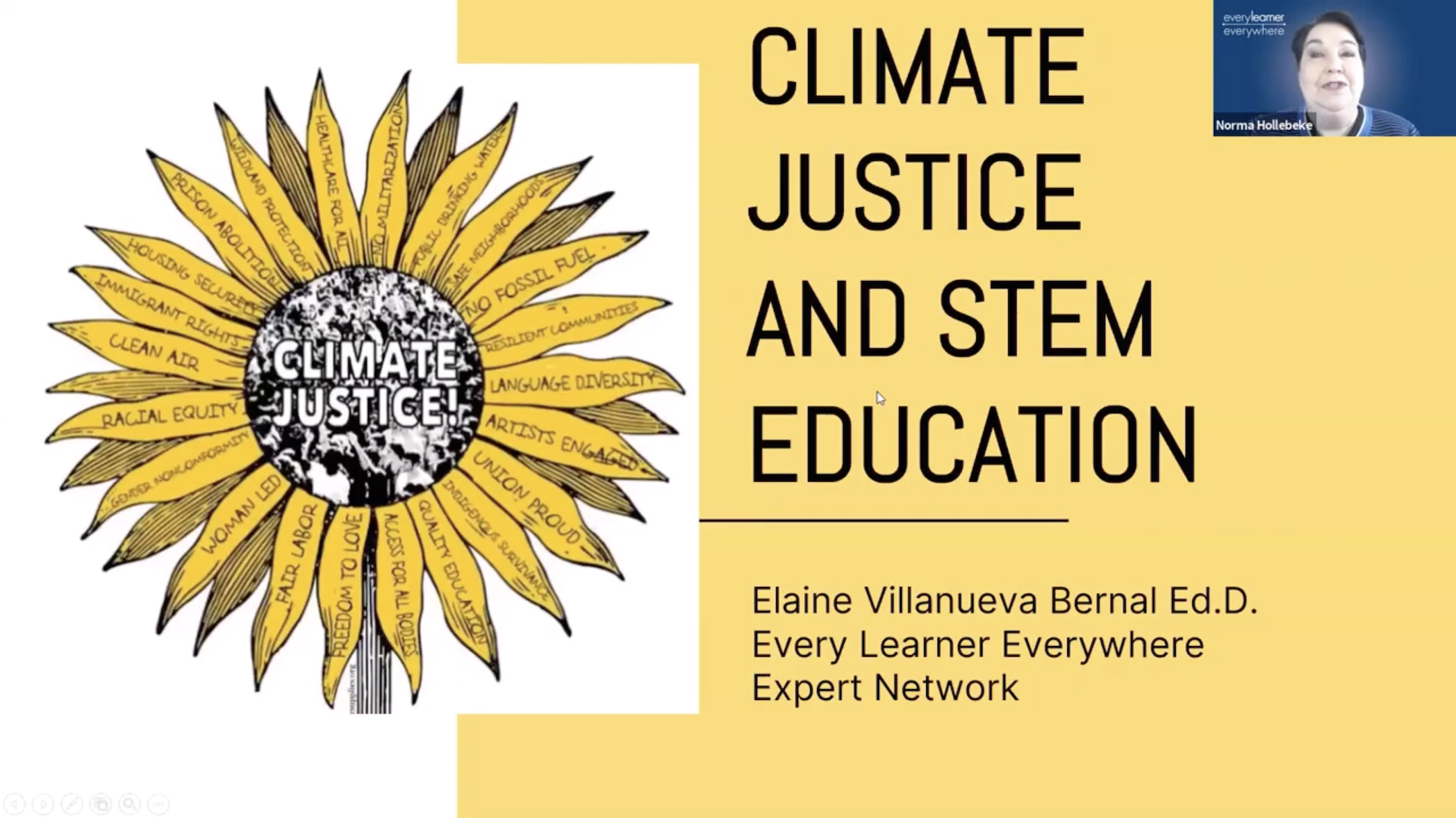
This session facilitates participant discussion on how to connect local environmental and climate justice issues to STEM concepts.
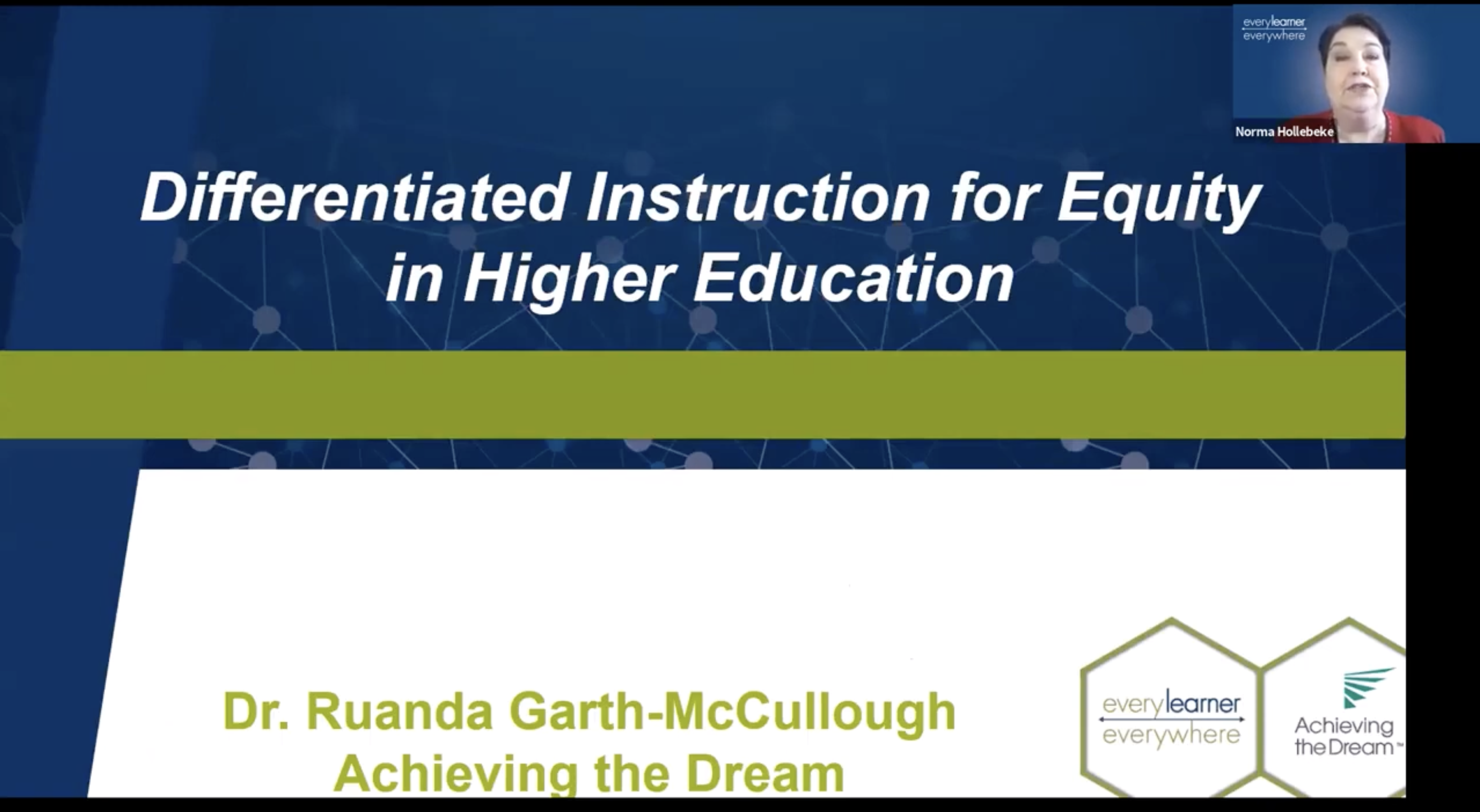
An overview of strategies and tools that engage students’ prior knowledge and supports their performance by differentiating the content, process and assessments.
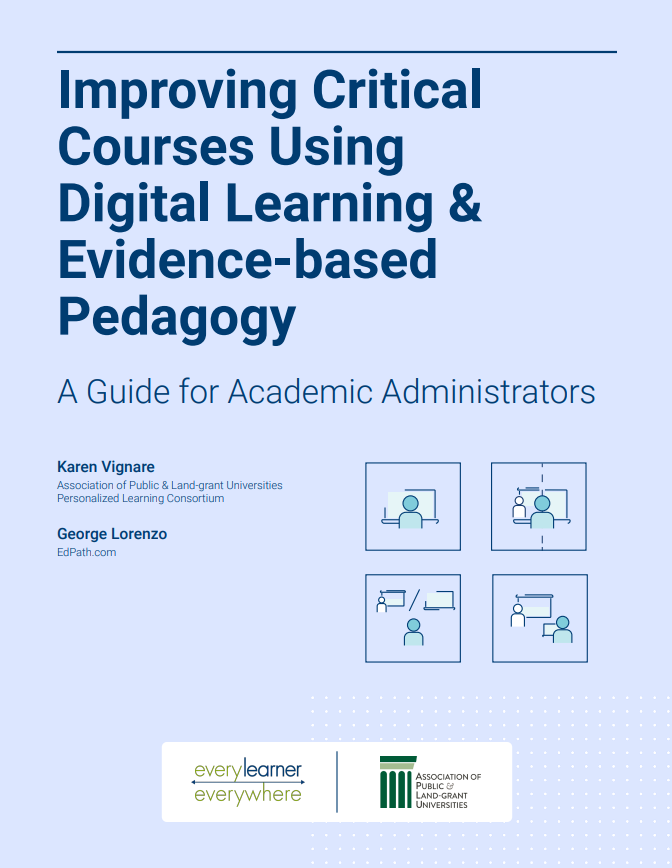
This guide features numerous links to resources academic administrators can draw from to effectively support a continuously improved teaching and learning environment that is sustainable for years to come.
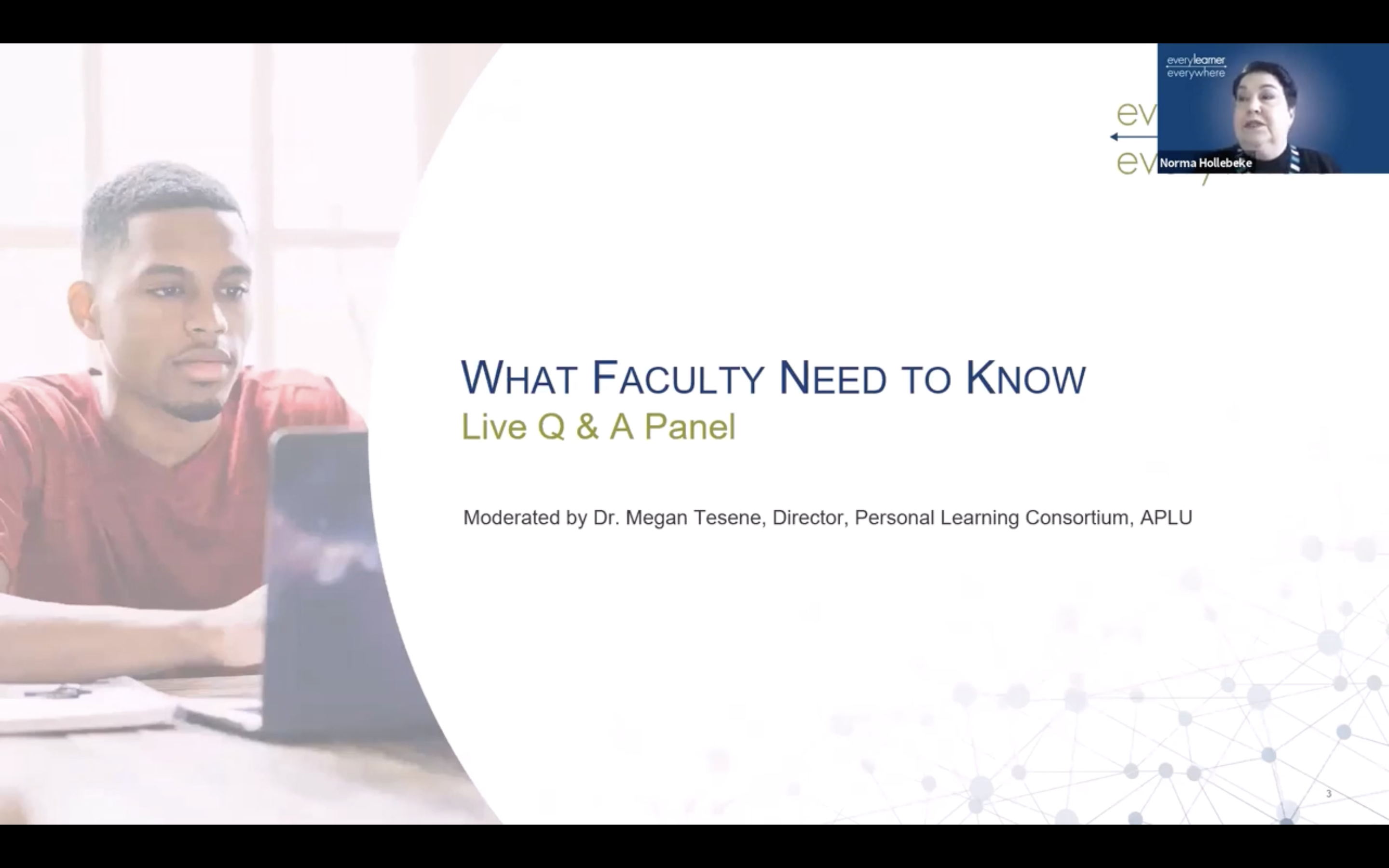
In this live Q&A panel, participants get answers to their remote teaching questions.
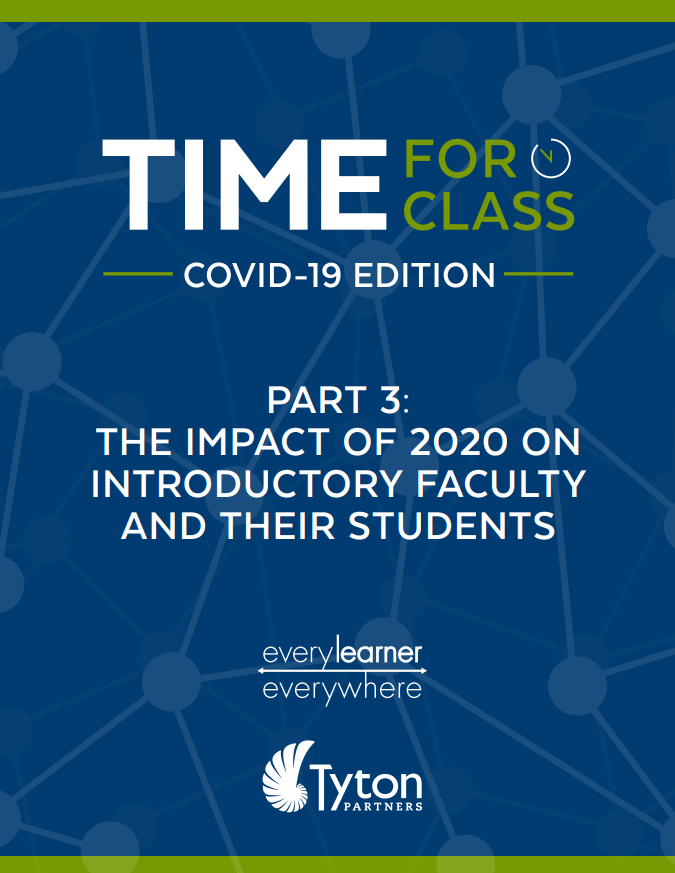
Three reports in a series designed to understand the ongoing impact of COVID-19 on teaching and learning in higher ed.
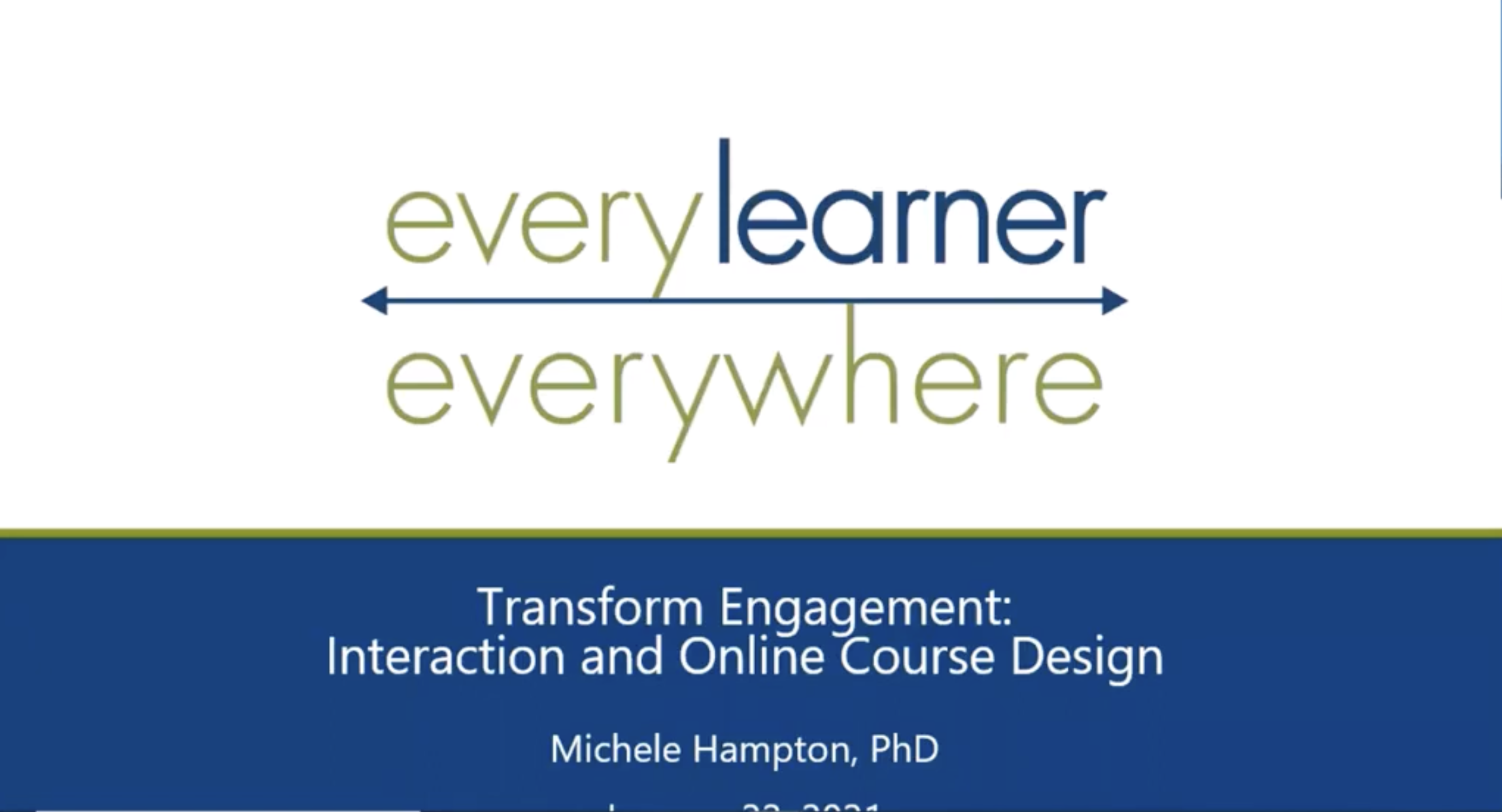
Rich media tools and thoughtful student-student, student-teacher, and student-content interactions can be powerful tools in online course design that inform “how we teach” and underpin successful use of technology in the online learning environment.
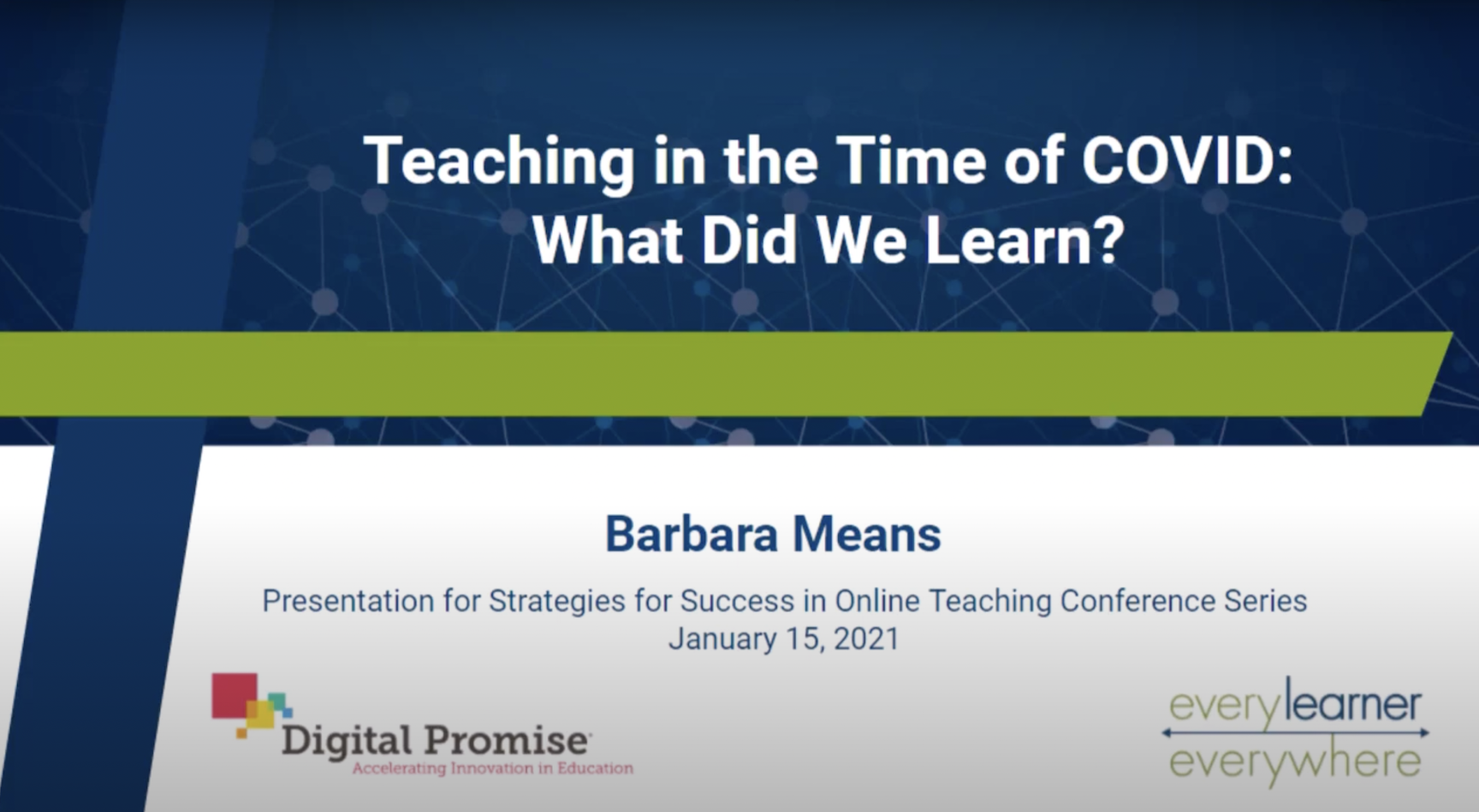
Insights on teaching in a time of Covid from Digital Promise’s Survey of Student Perceptions of Remote Teaching and Learning in May 2020.
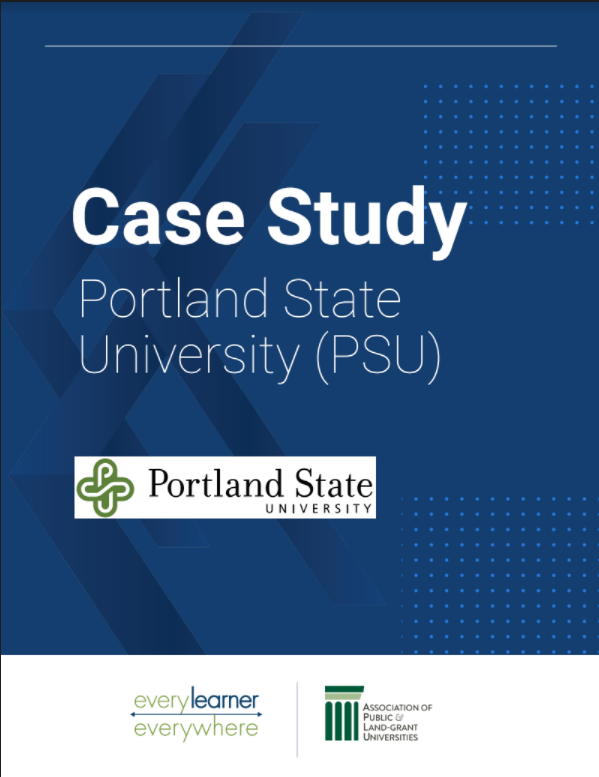
Combining active learning with adaptive courseware leads to a statistically significant reduction of DFW grades in foundational courses.
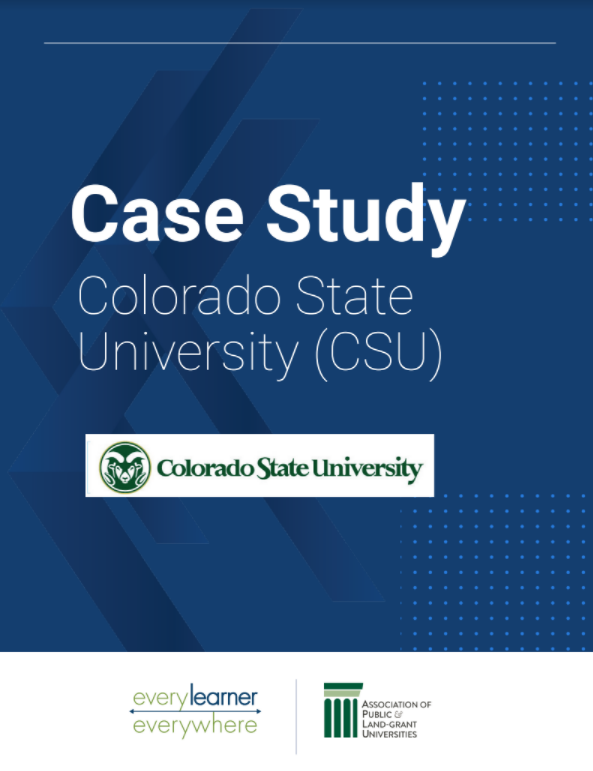
A case study at Colorado State University (CSU), found the use of active learning and adaptive courseware, along with an intentional faculty development program, are key in the implementation of adaptive courseware.
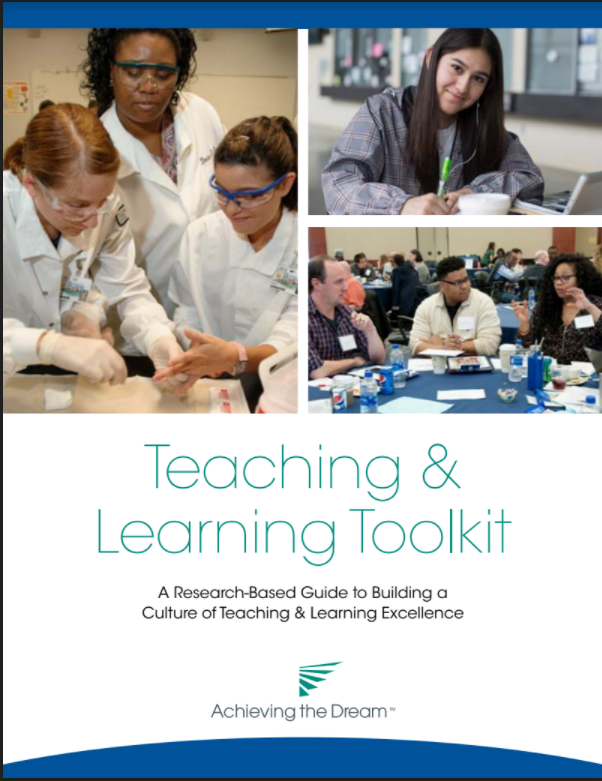
Grounded in research, this resource supports college teams in building institutional capacity in teaching and learning.
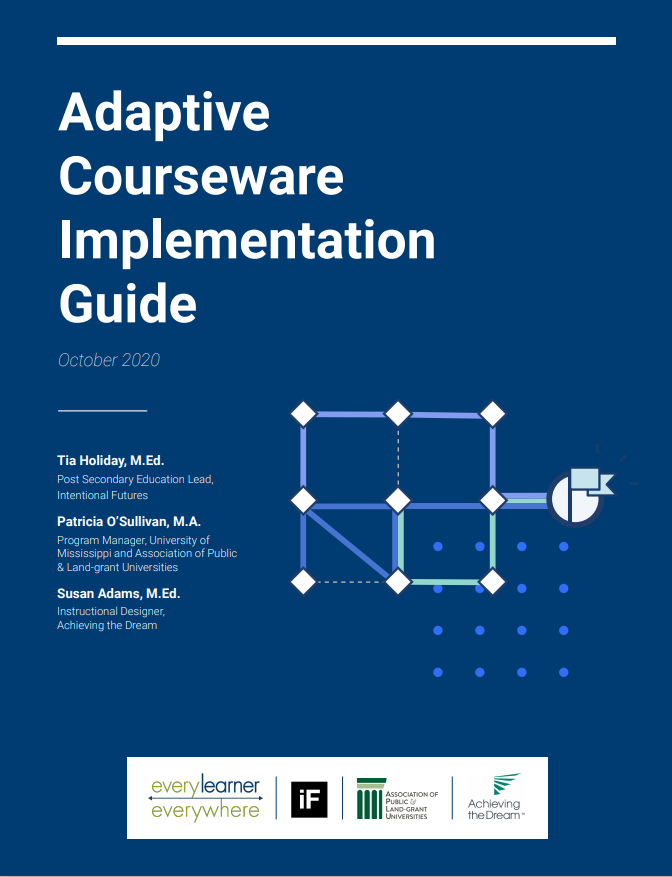
This extensive resource will provide you with practical strategies and resources to implement adaptive courseware with an equity-minded and student-centered approach.
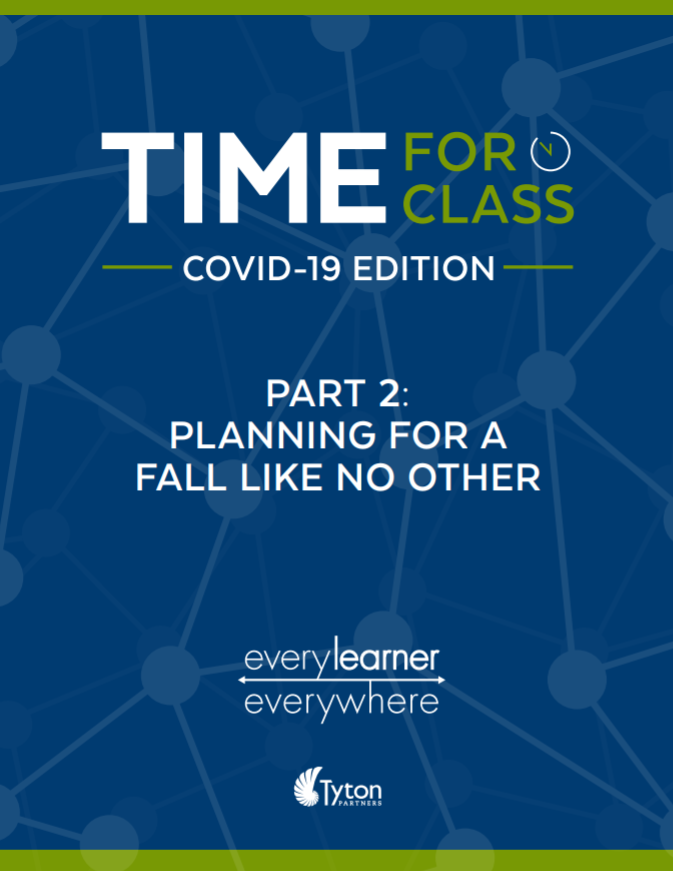
This is the second report in an ongoing series designed to understand the ongoing impact of the COVID-19 pandemic on teaching and learning in higher ed.
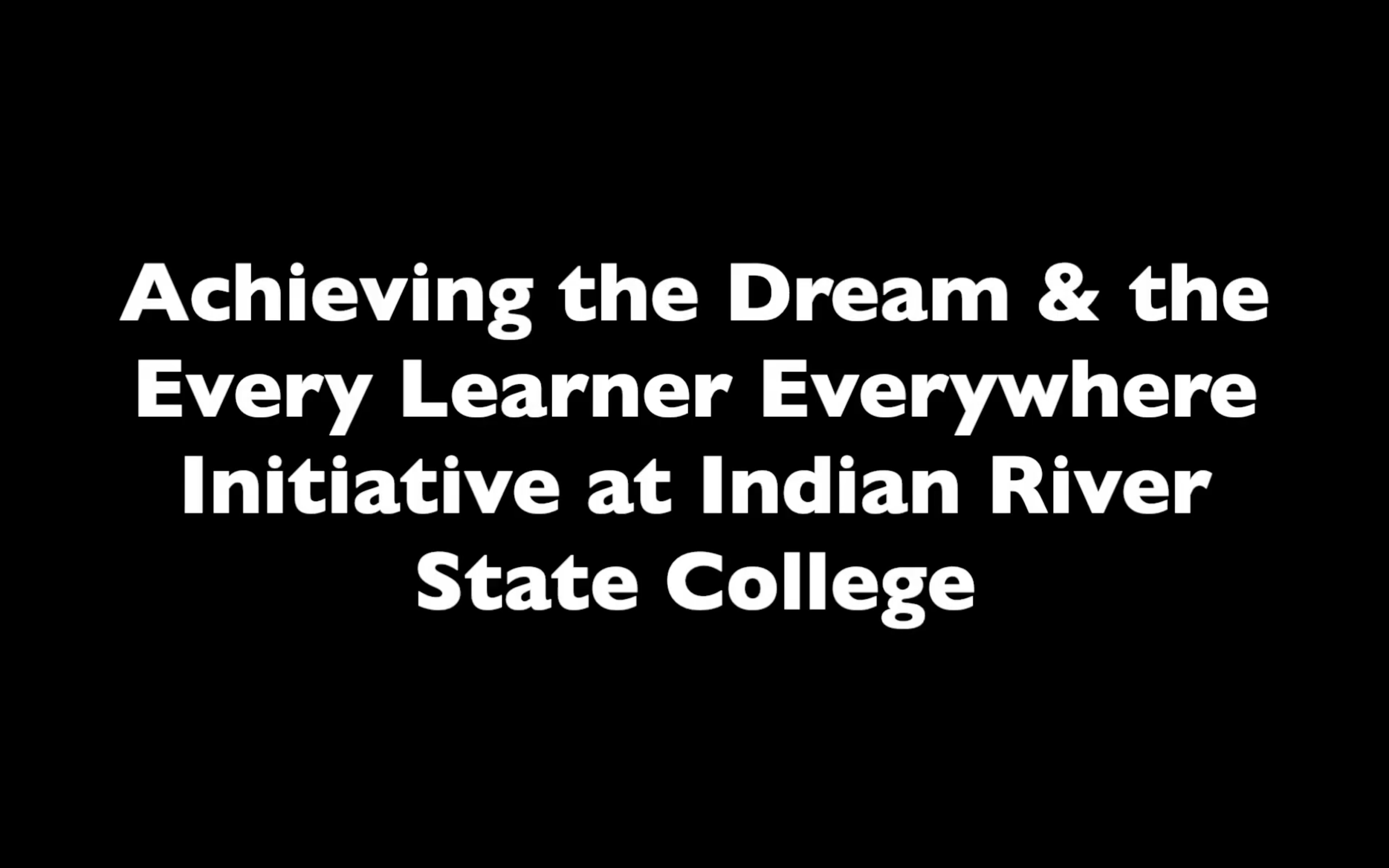
Faculty and administrators at Indian River State College discuss transitions to adaptive learning during the 2019-2020 school year.
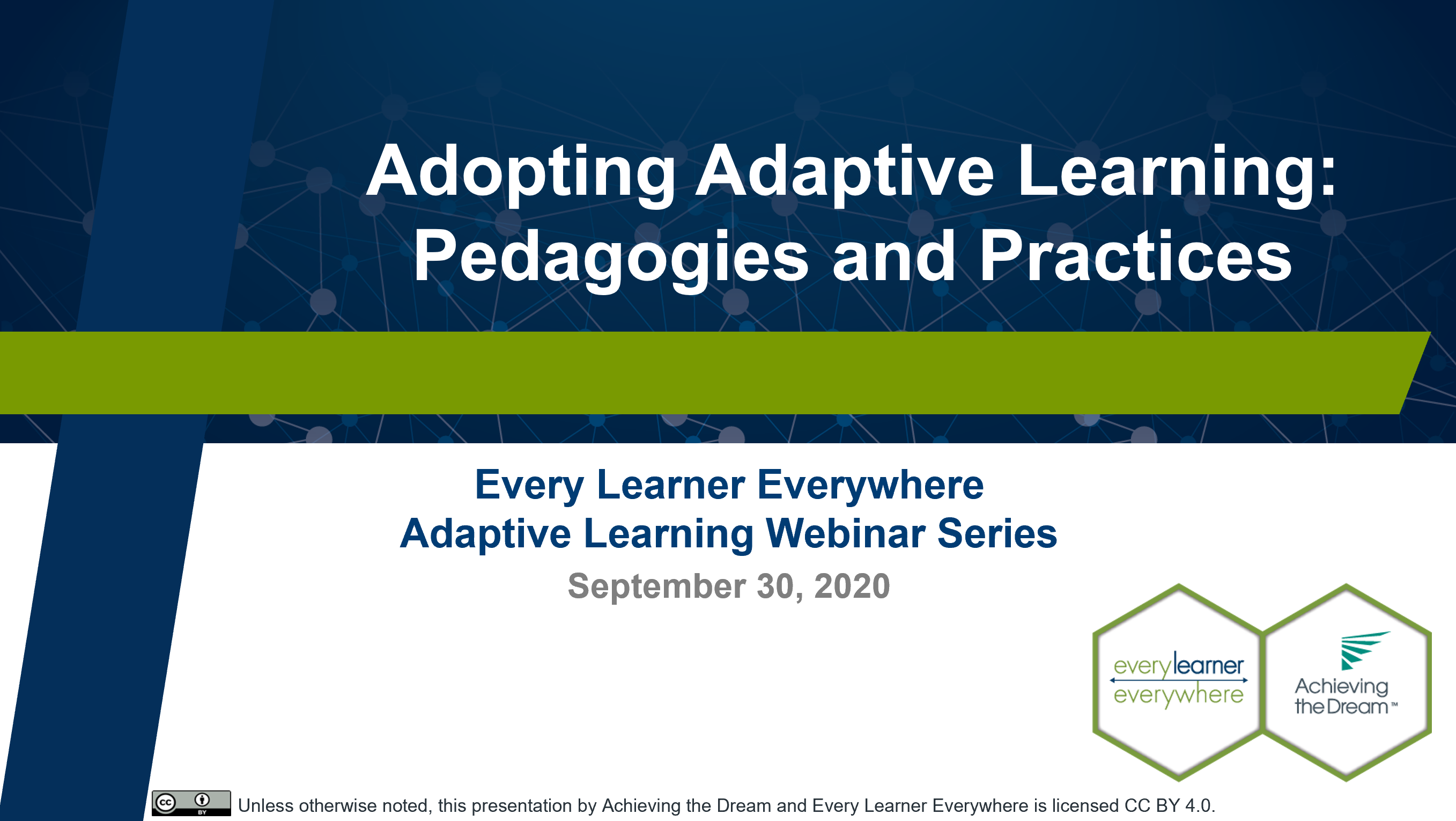
Faculty discuss how they’ve brought adaptive learning into their courses, and how it has altered teaching and learning for them and their students.

This resource provides suggestions for breaking down those barriers to support international students in online learning.
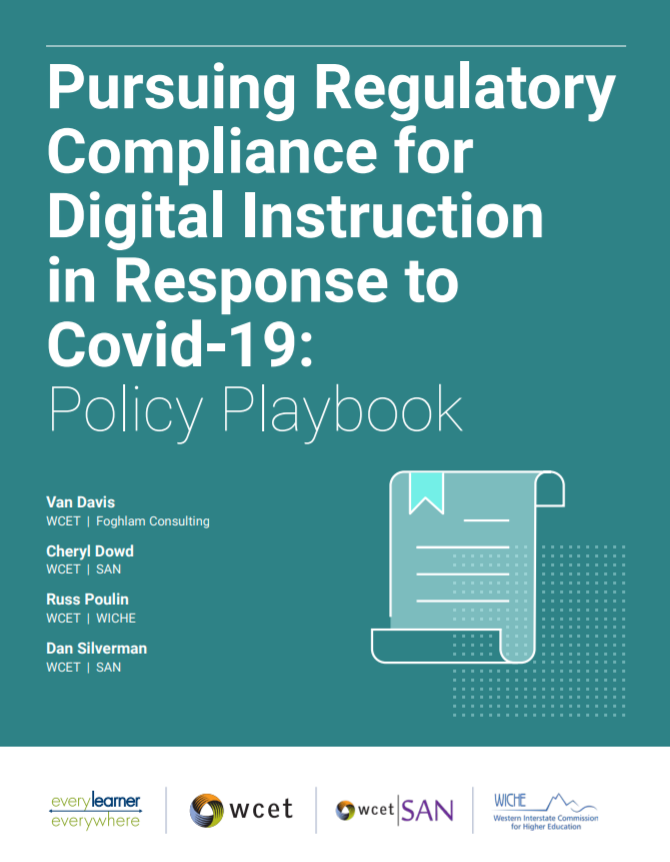
The spring 2020 term saw an unprecedented response to an unprecedented challenge as virtually every U.S. higher education institution offering face-to-face instruction rapidly switched to remote instruction, many in as …
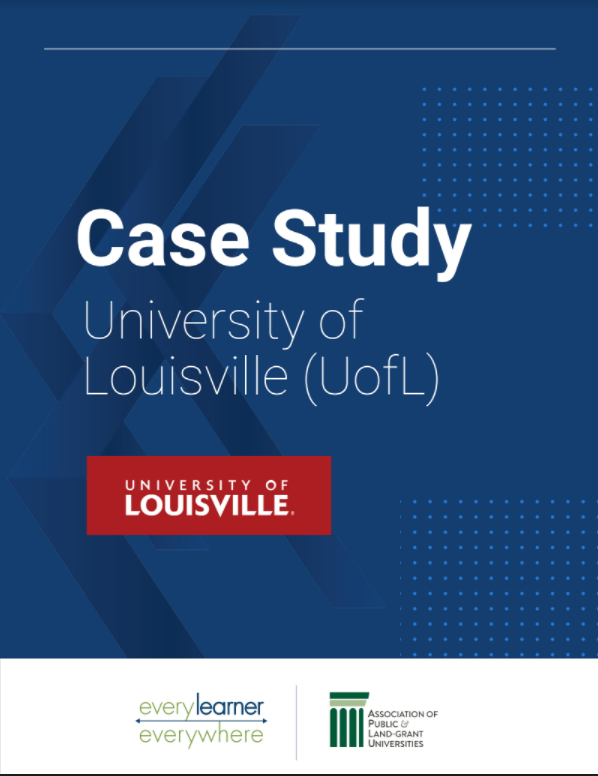
This case study from the University of Louisville demonstrates their approach to leveraging adaptive courseware to improve course design.
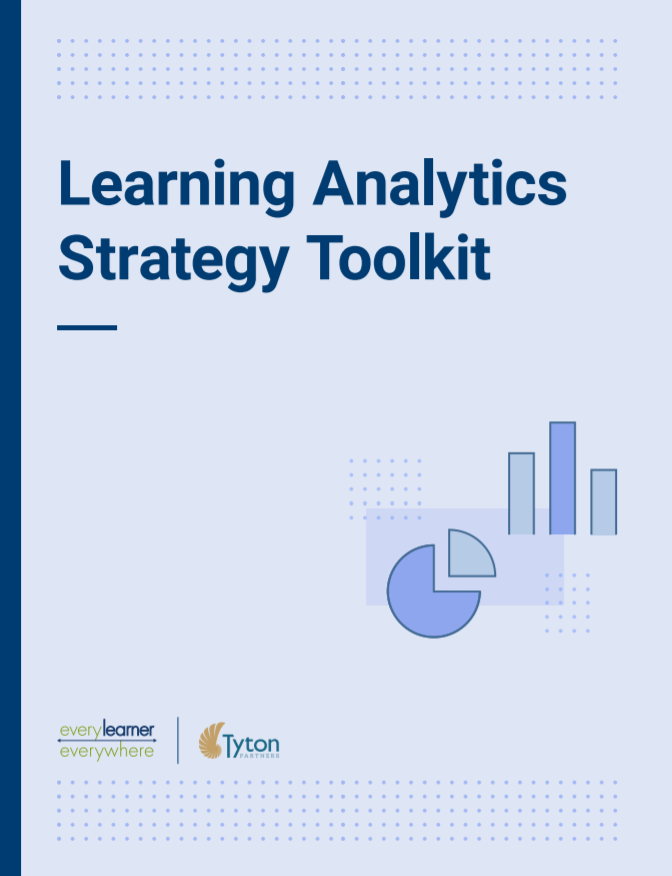
For all students to have an equal opportunity to succeed, instructors must personalize learning rather than teach to a fictional average student. Learning analytics has the potential to assist instructors …
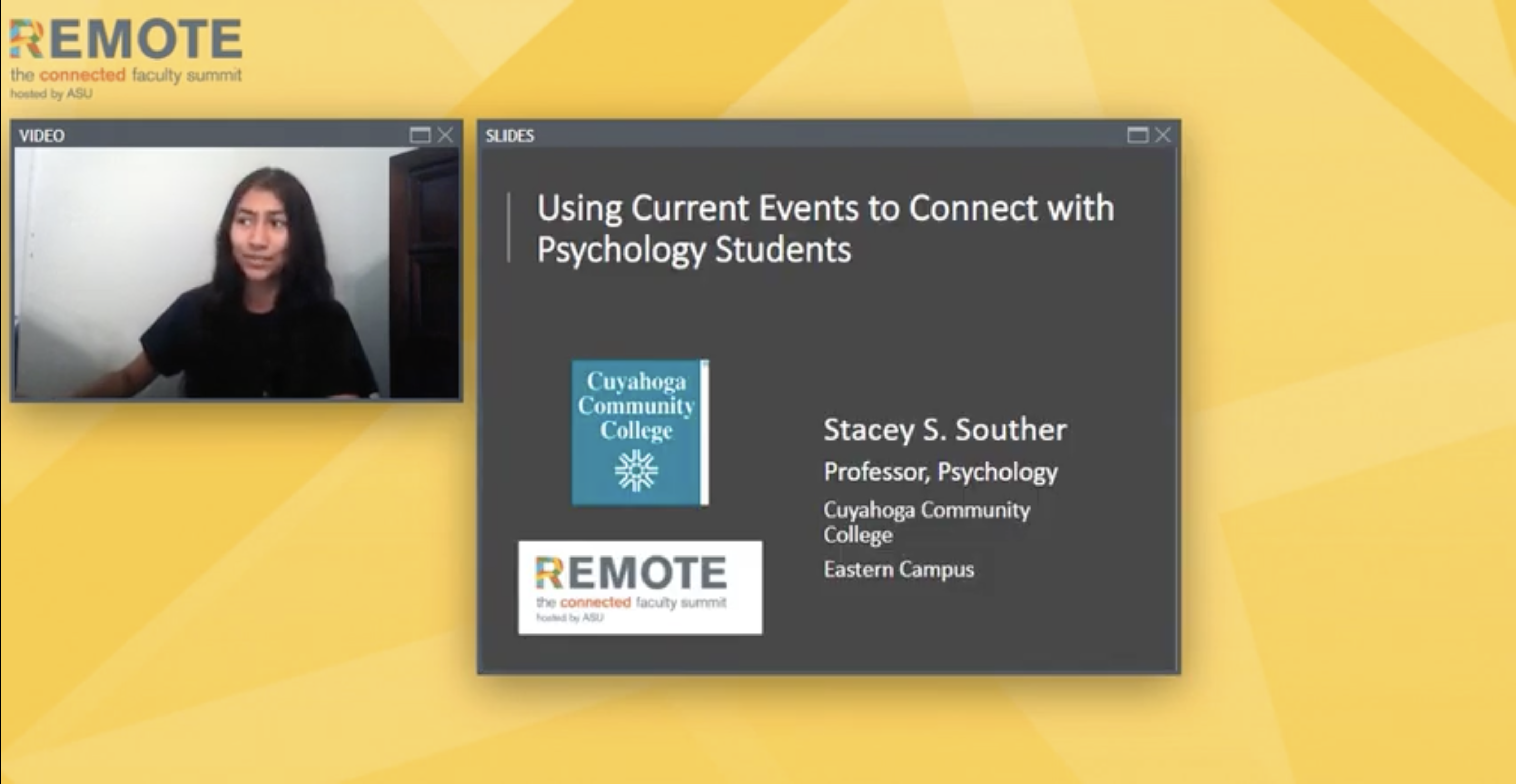
Introductory psychology faculty discuss how they utilize current events and Flip Grid to form relationships and apply content in remote teaching settings.
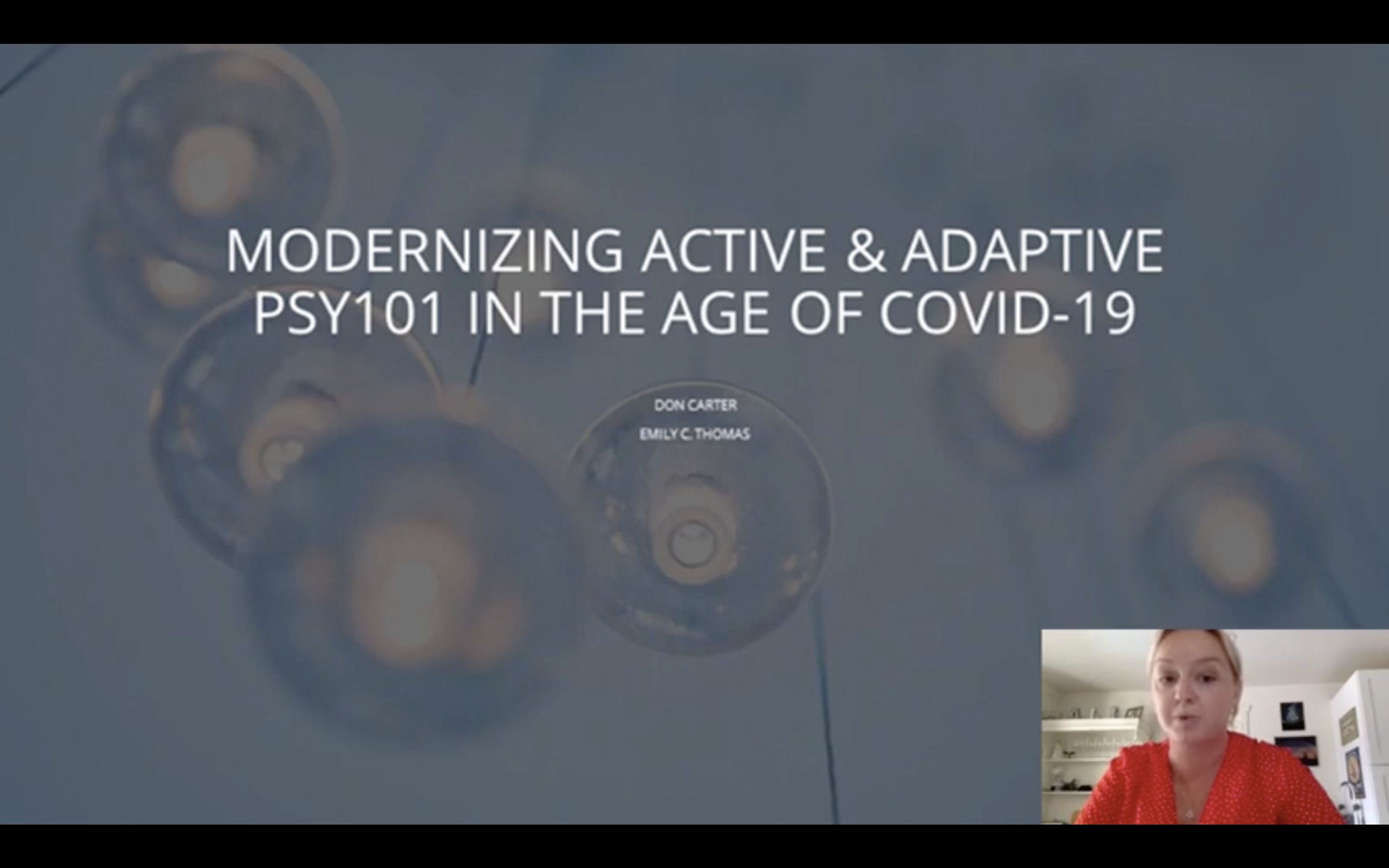
Digital learning specialists discuss the process of adopting and continuously improving courses with adaptive courseware.
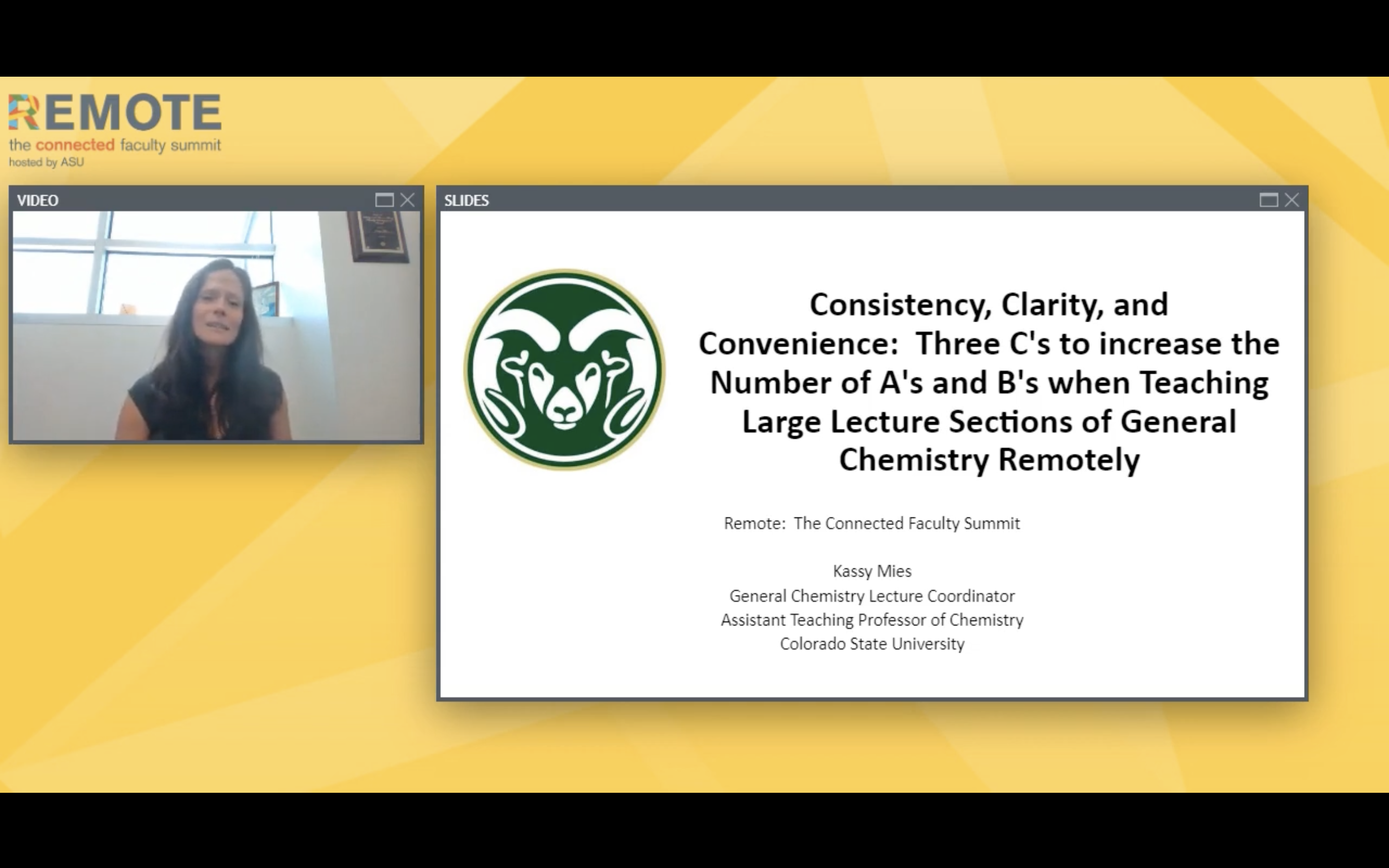
The three C’s to increase the Number of A’s and B’s when Teaching Large Lecture Sections of General Chemistry Remotely.
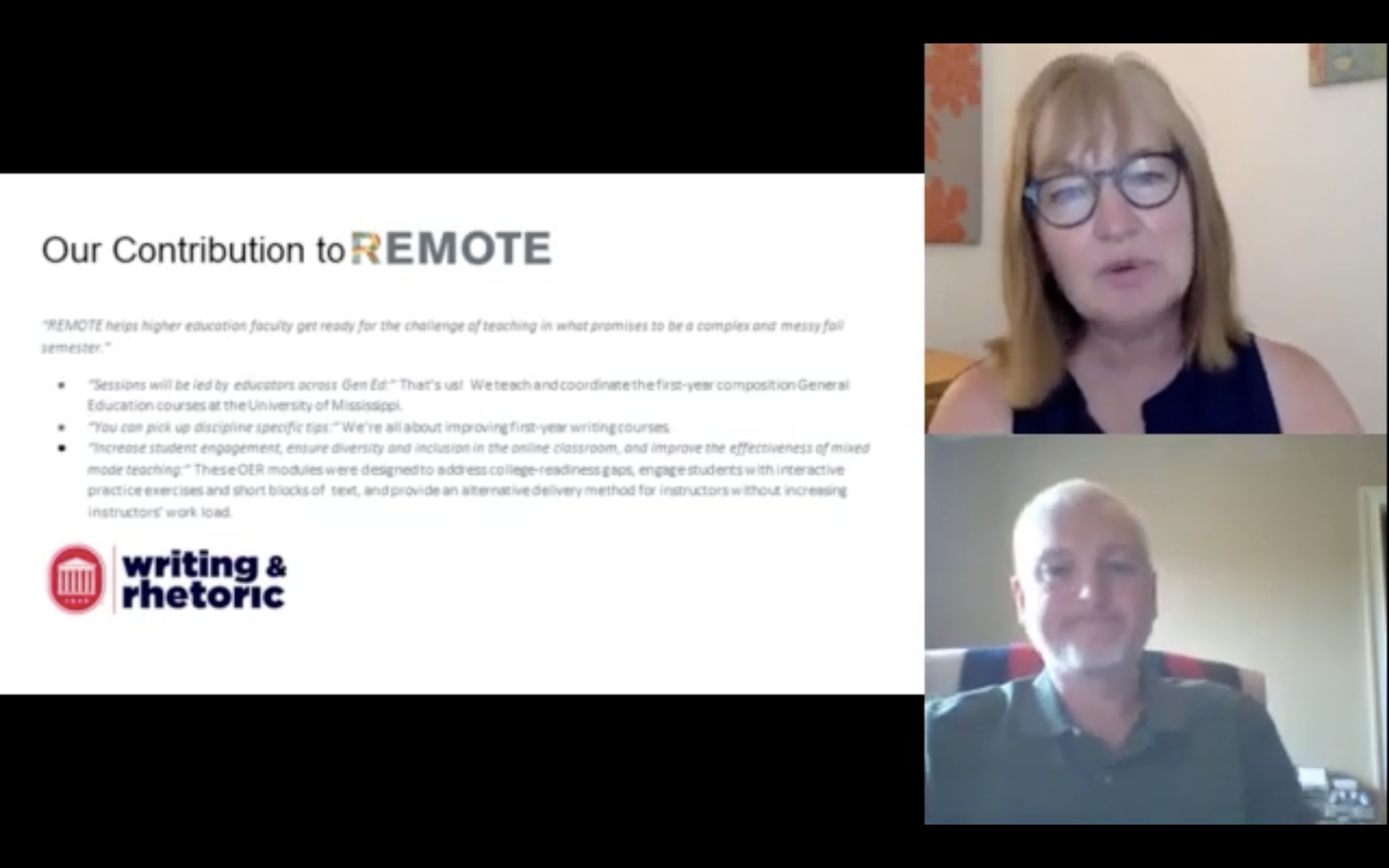
Faculty share how Lumen Waymaker was implemented in various classes, and how assessment data and workshops have enhanced learning material in first-year writing.
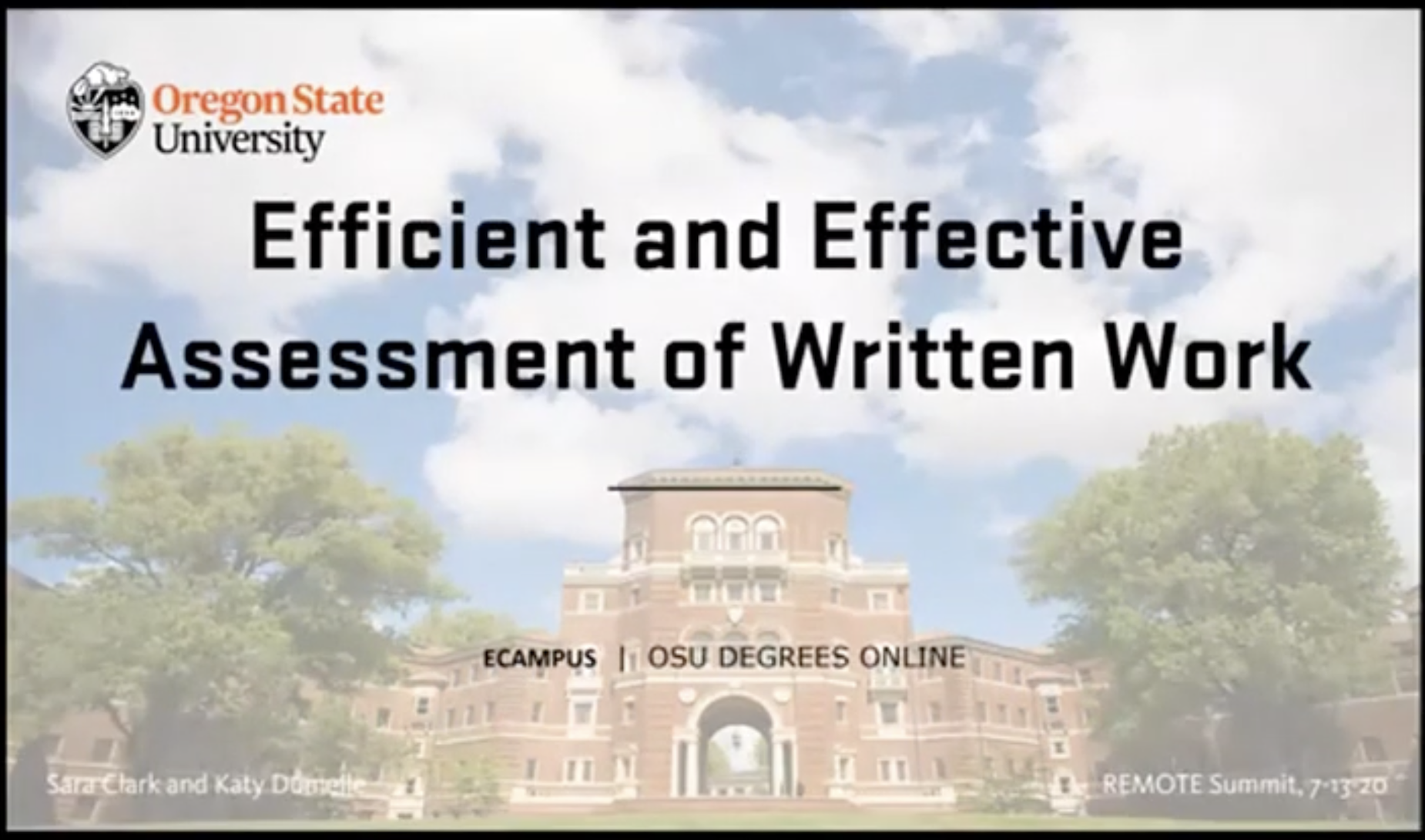
In this webinar, faculty provide tips and strategies for assessing written work in online or remote classes and discuss how that written work can promote student metacognition.































































































